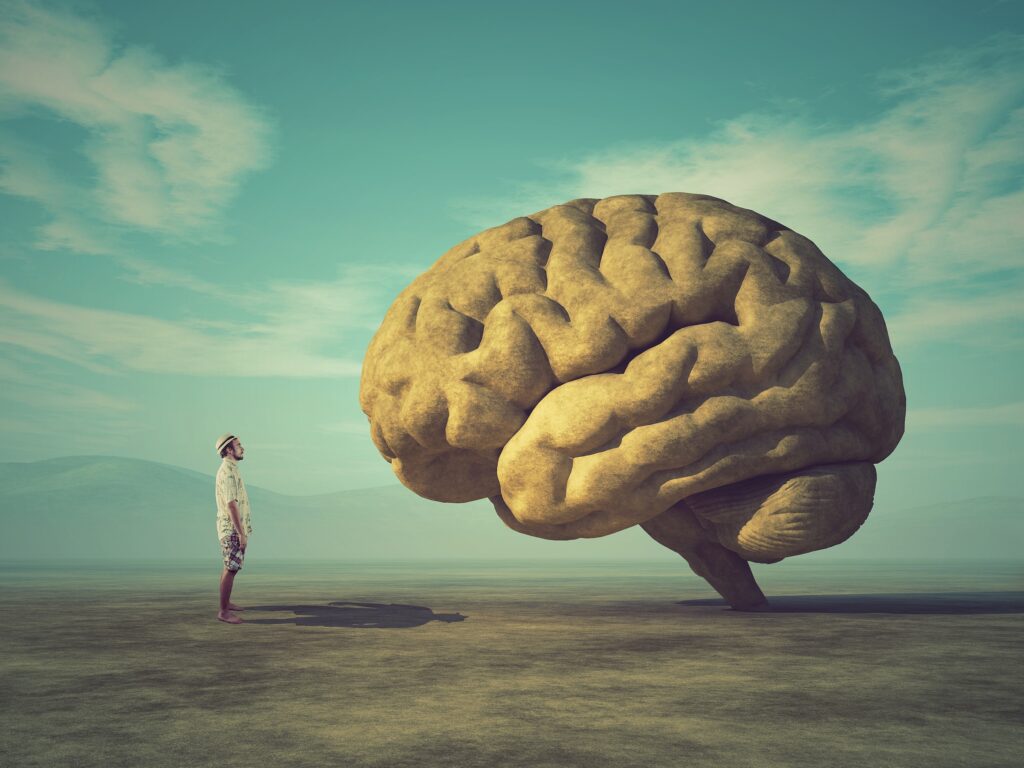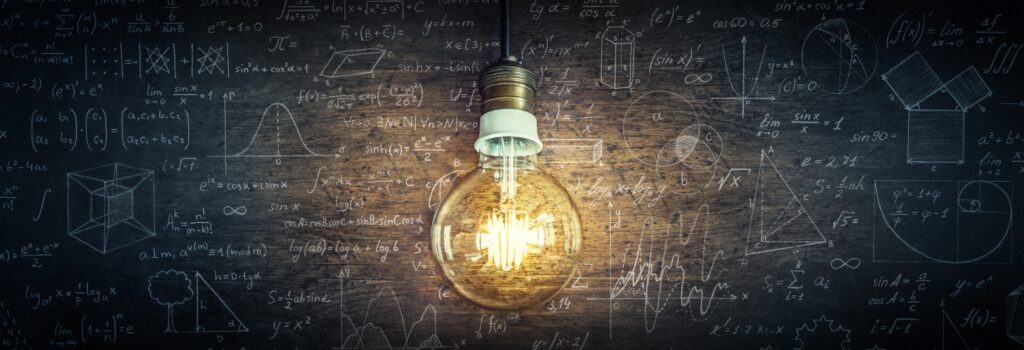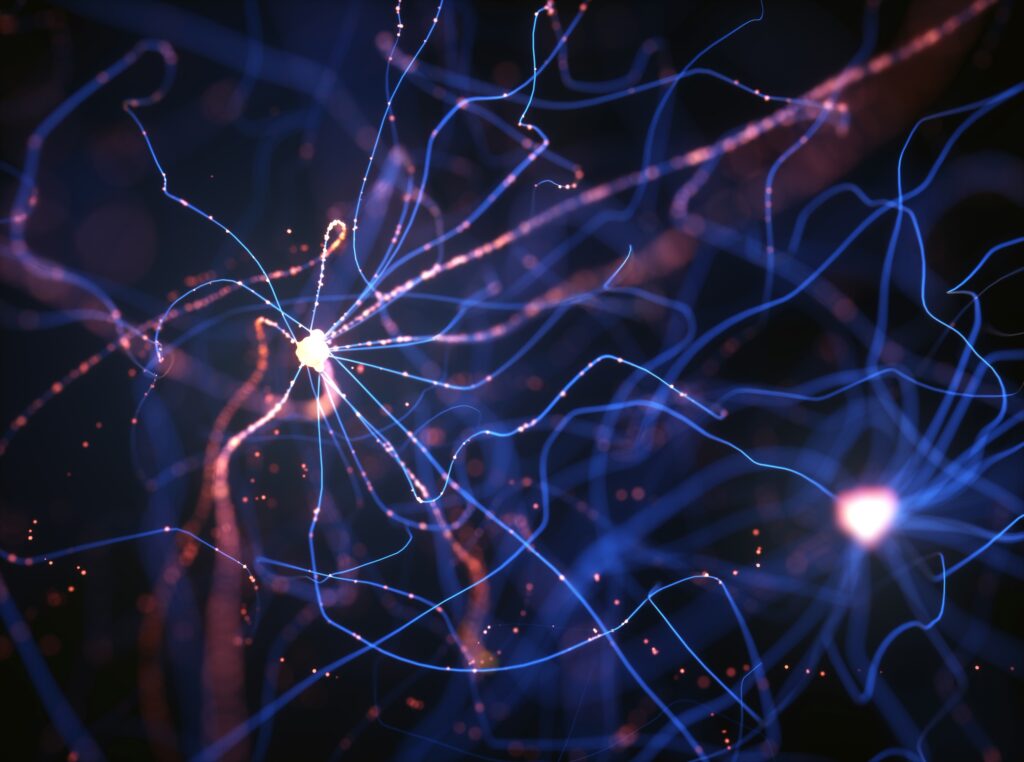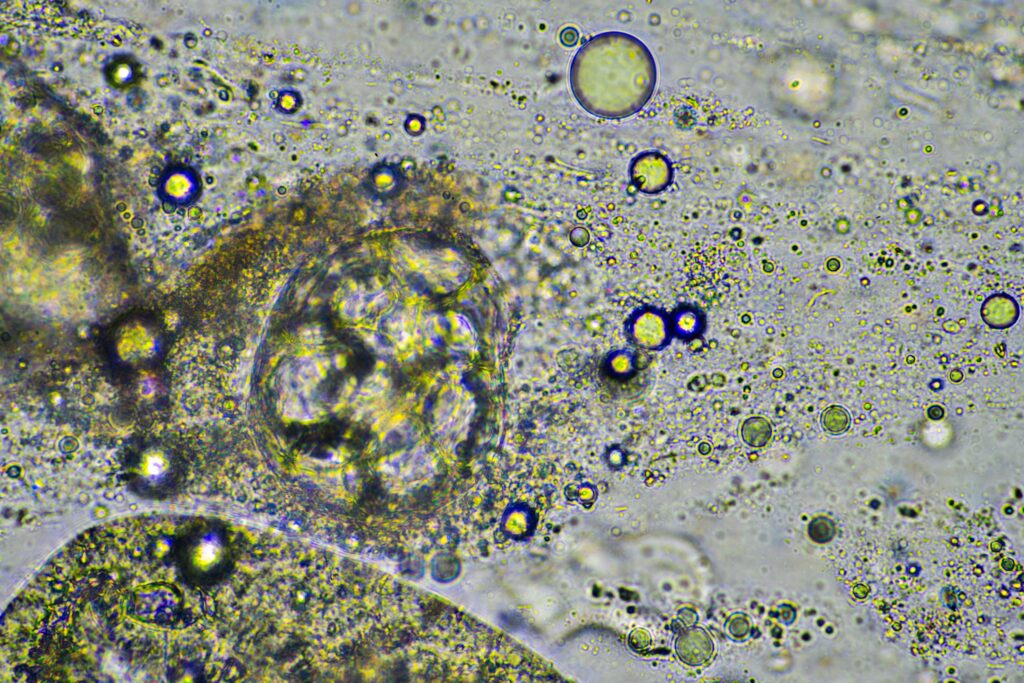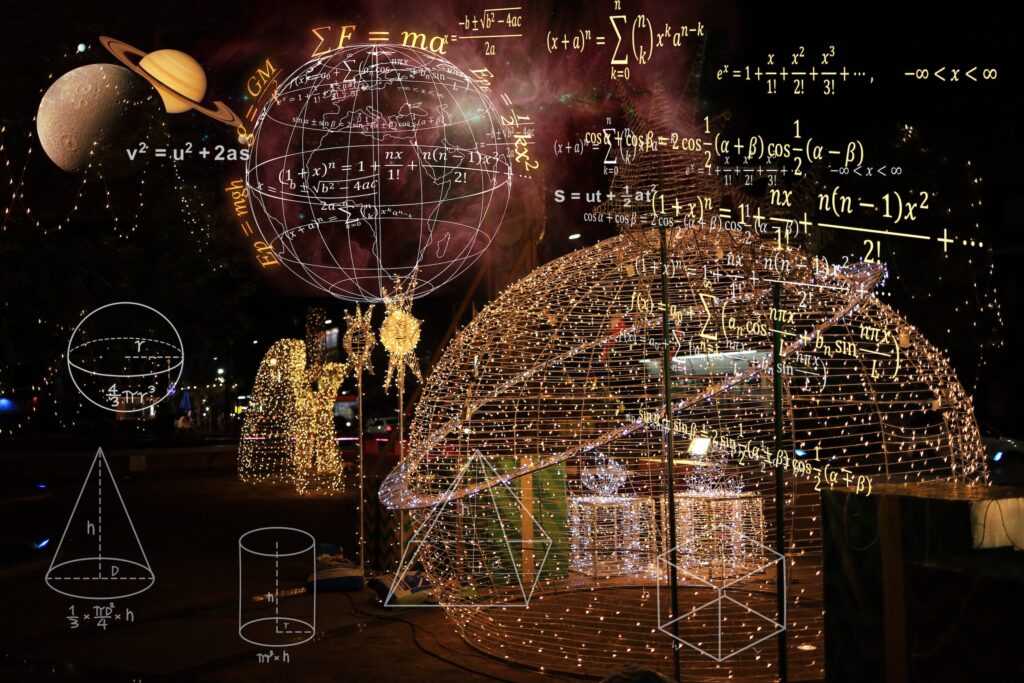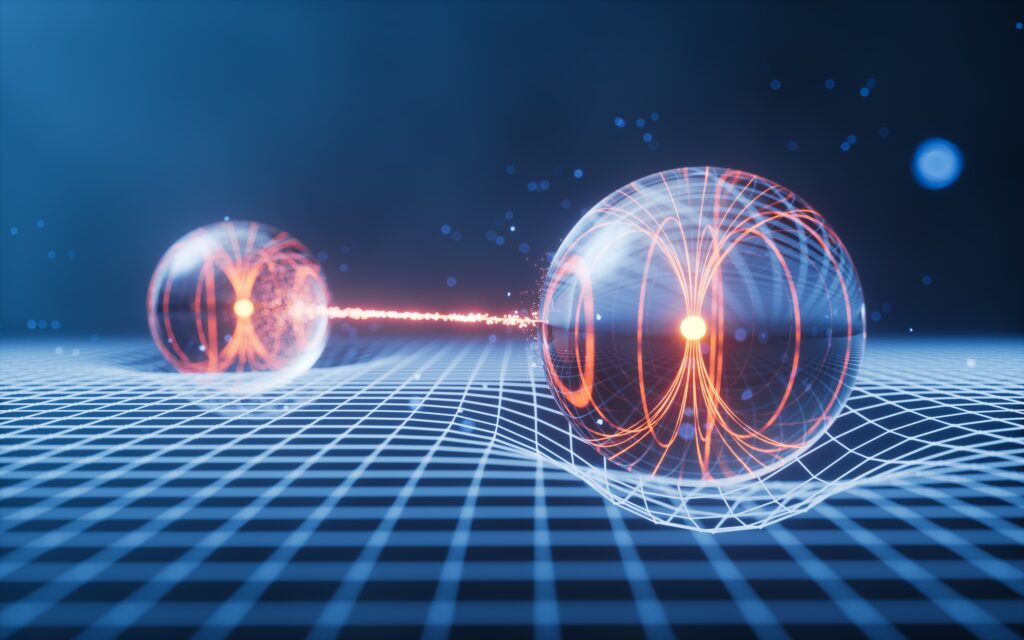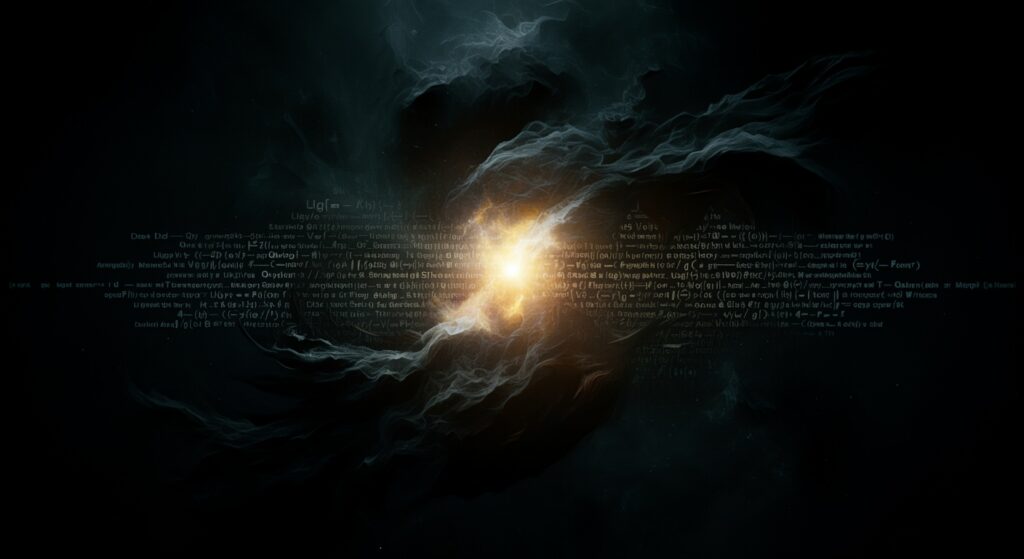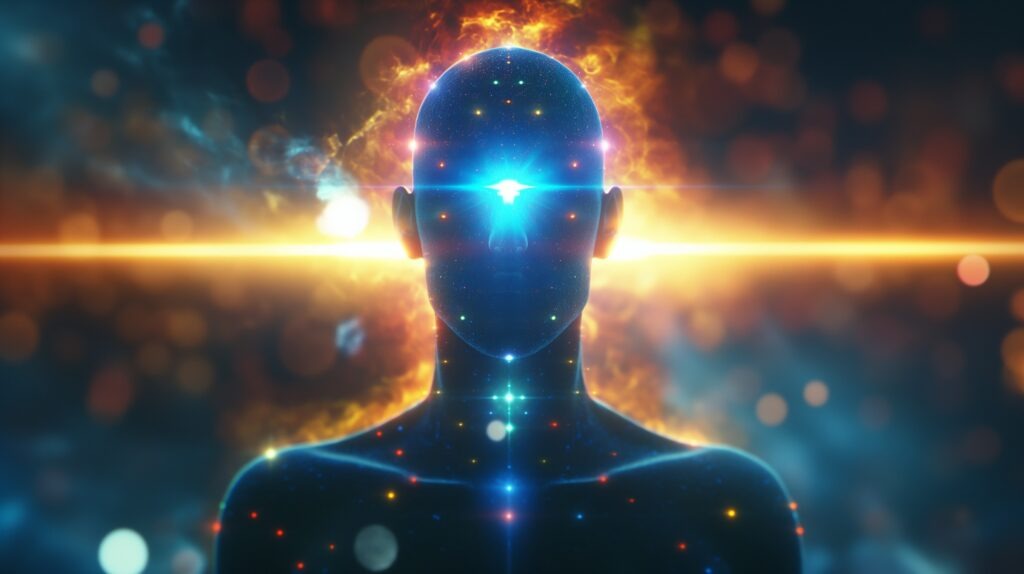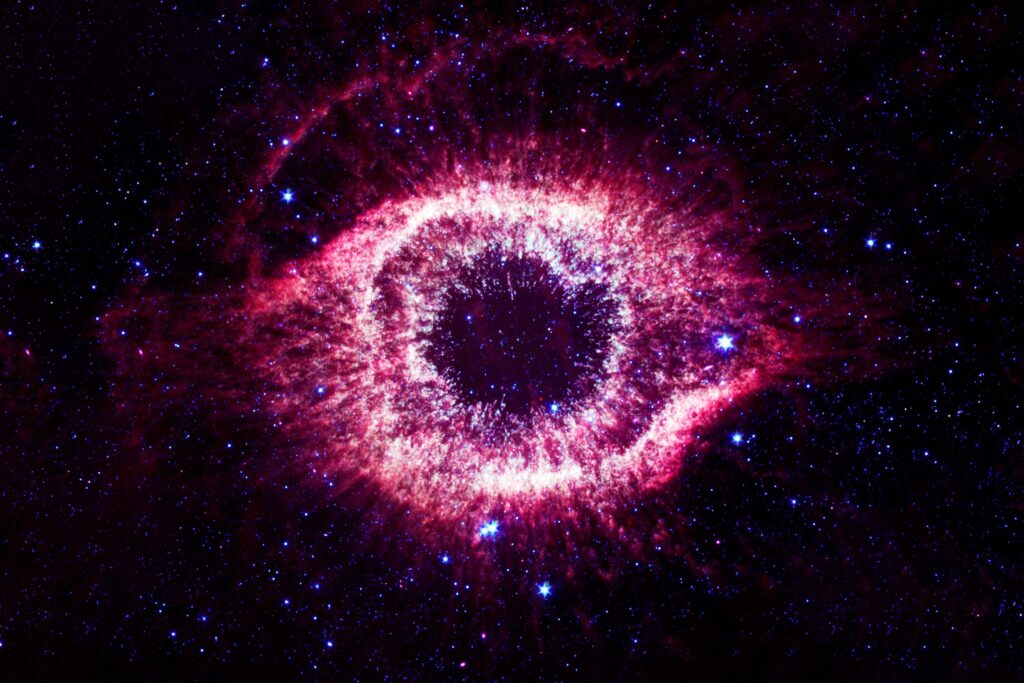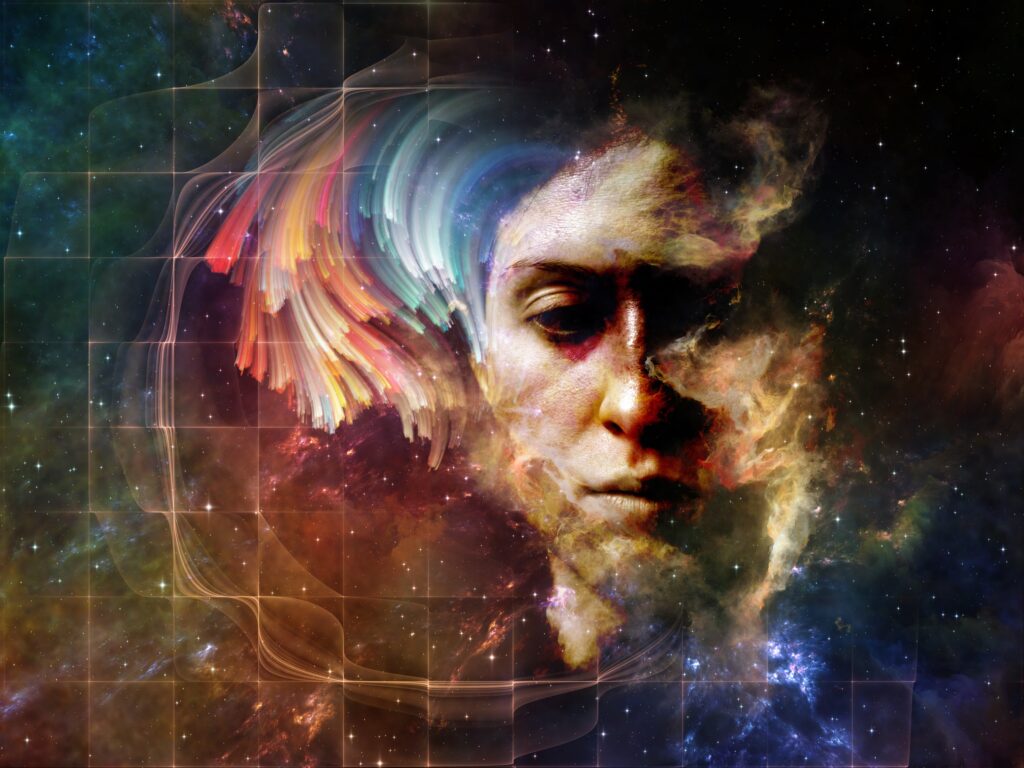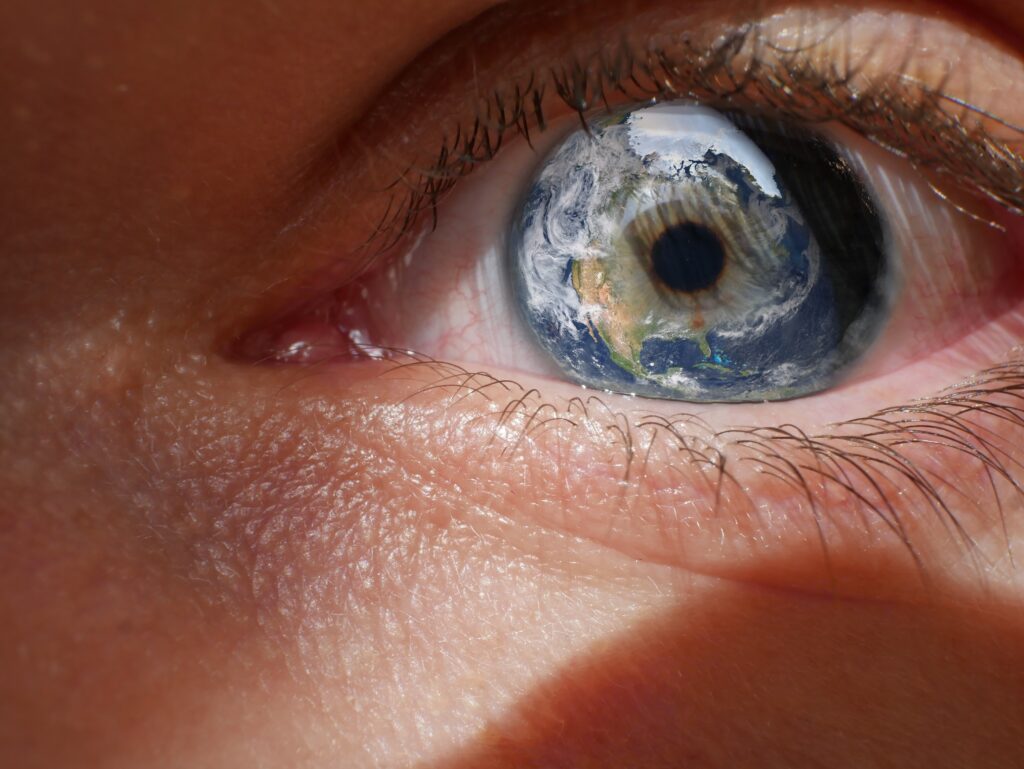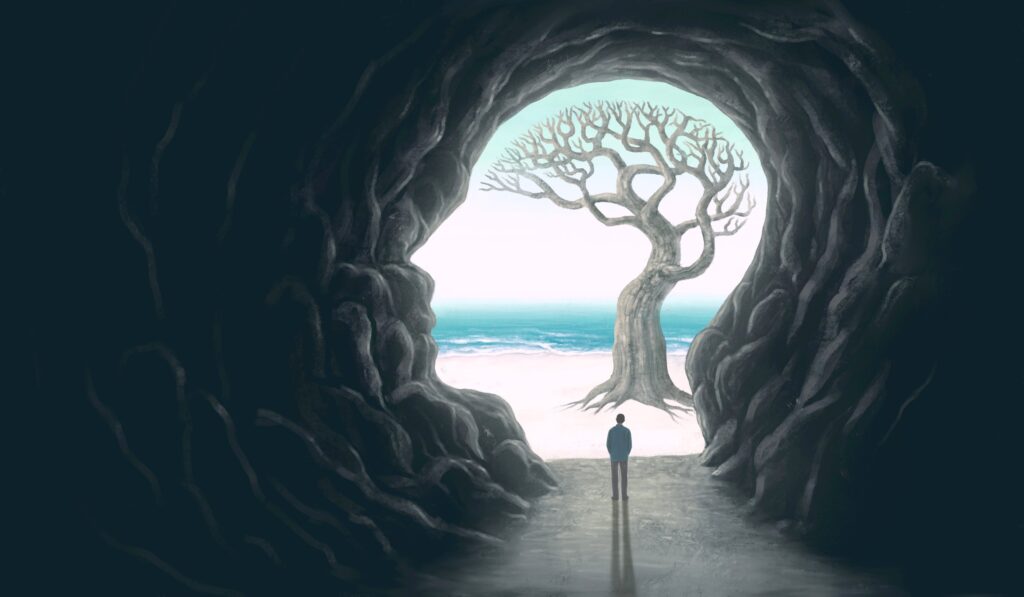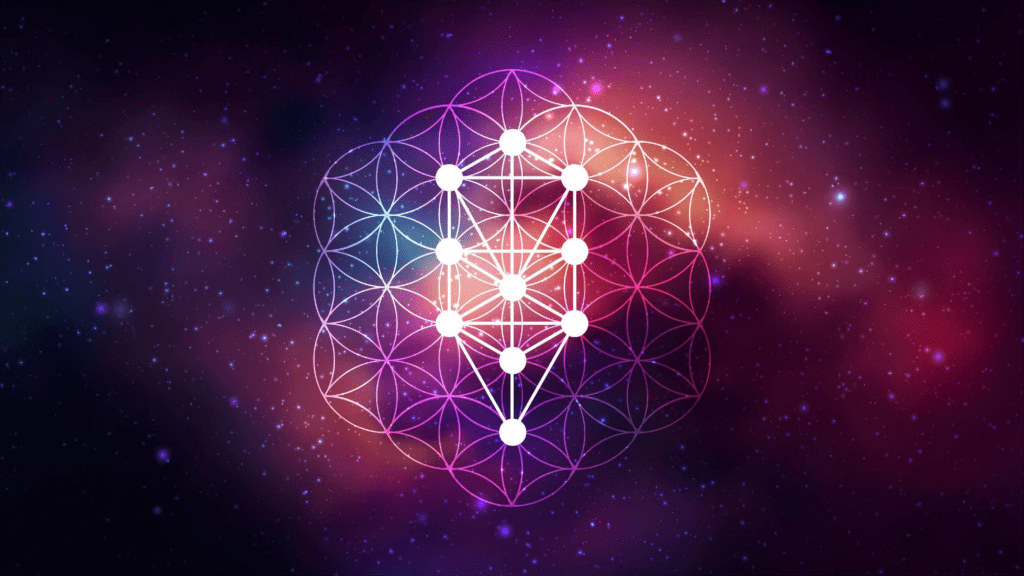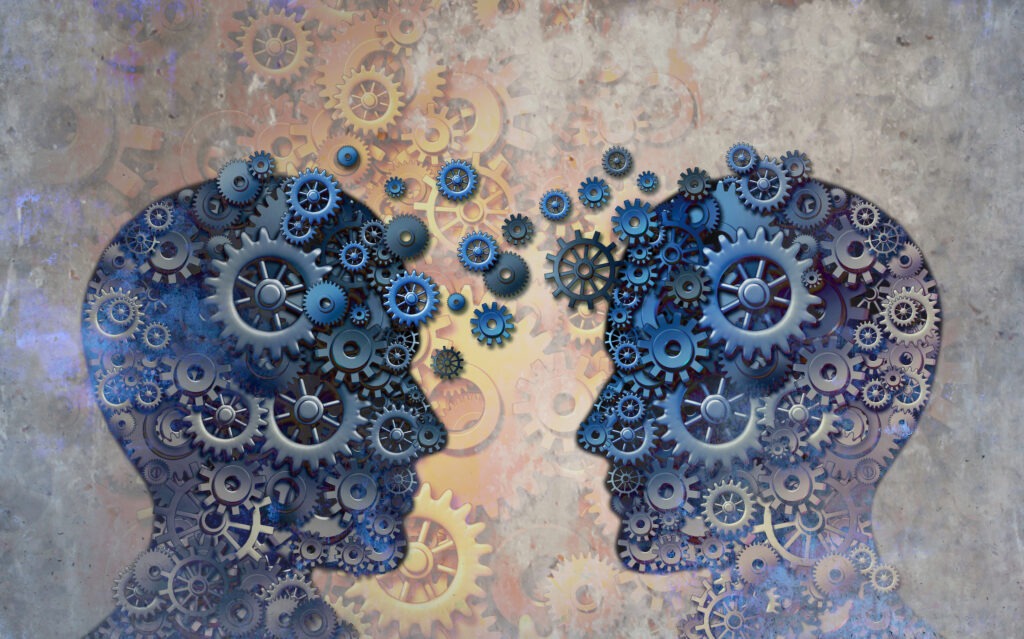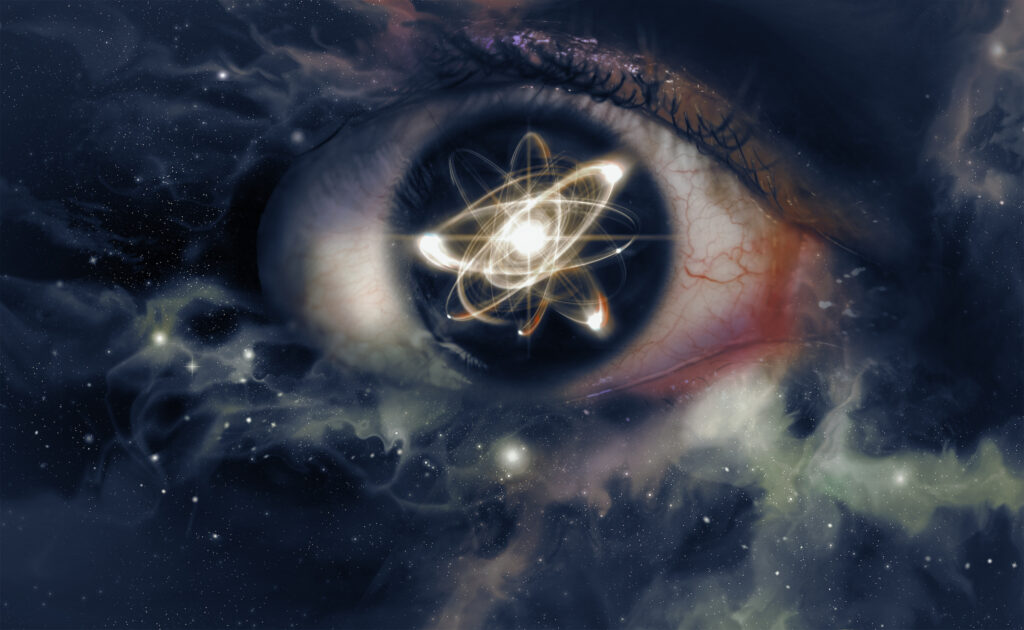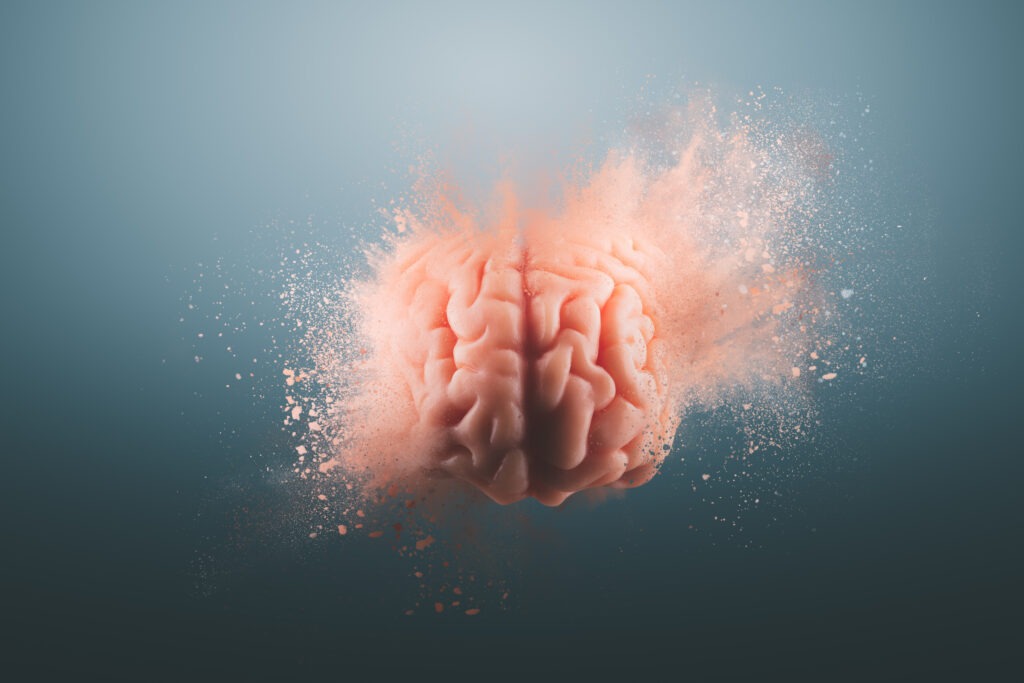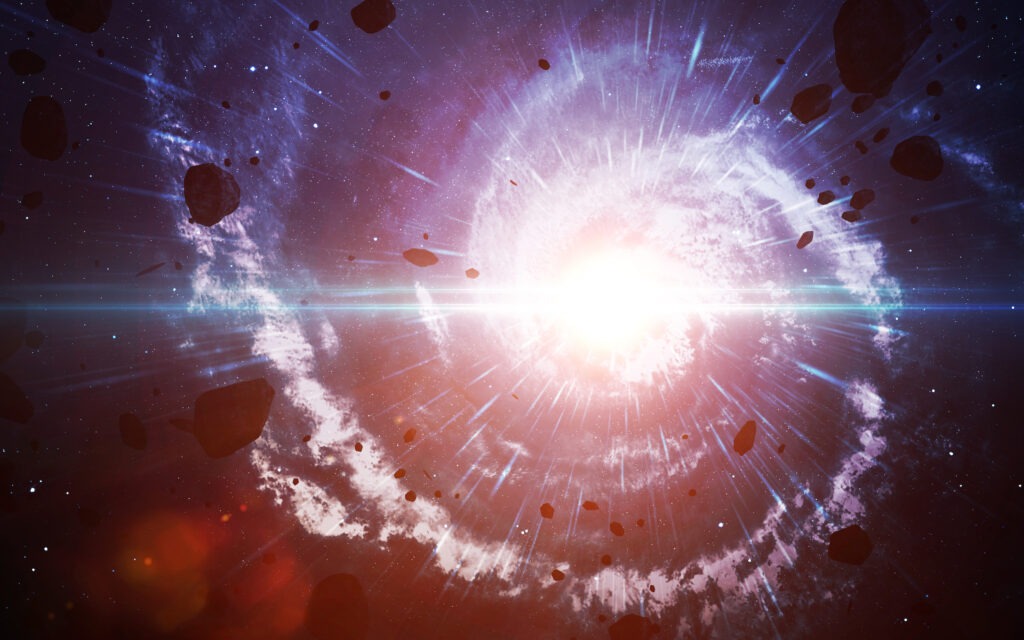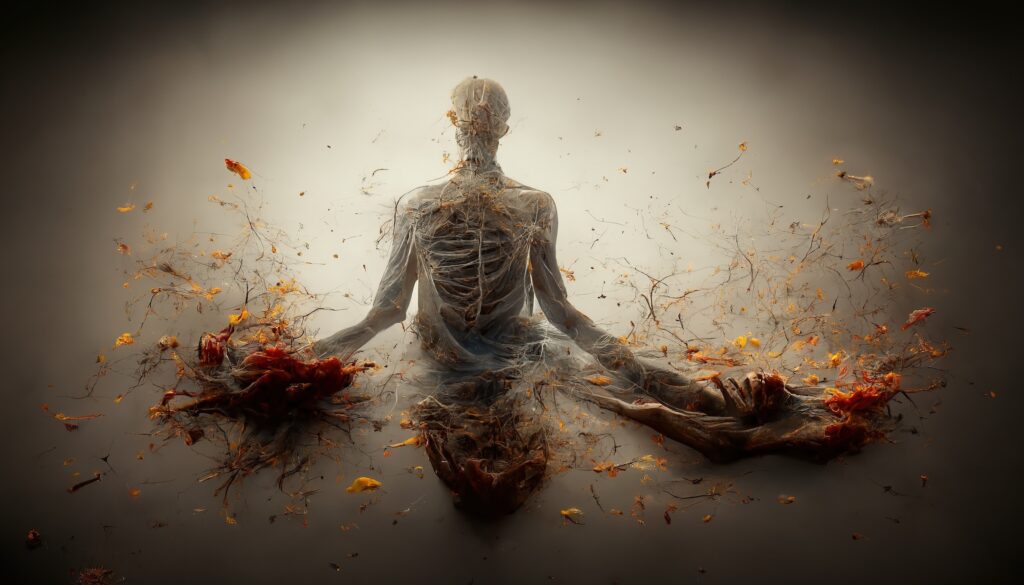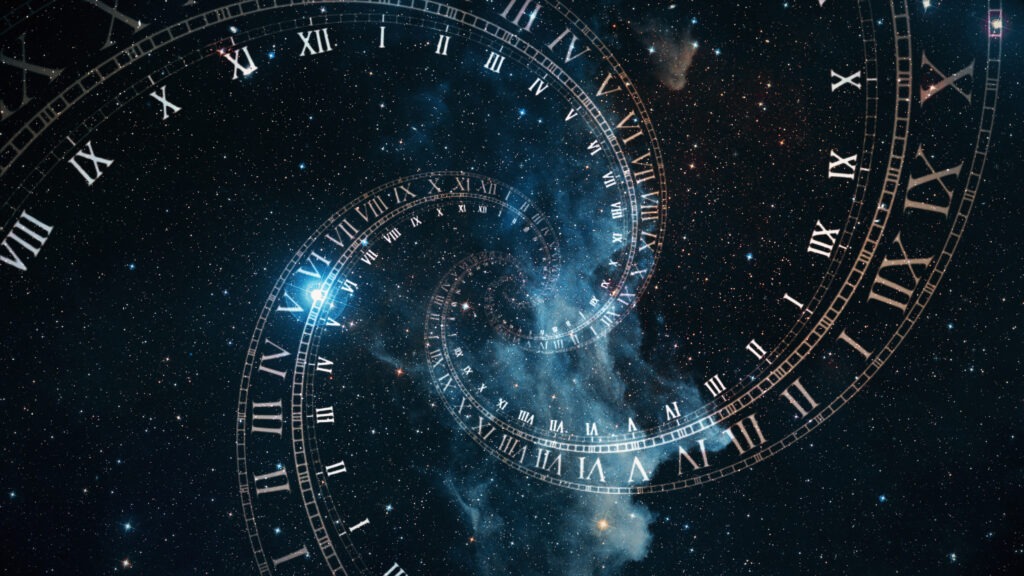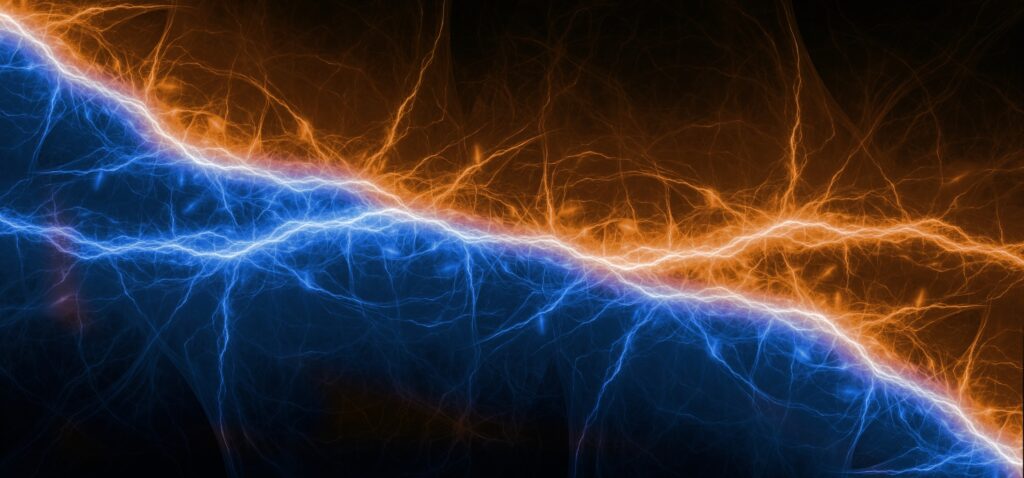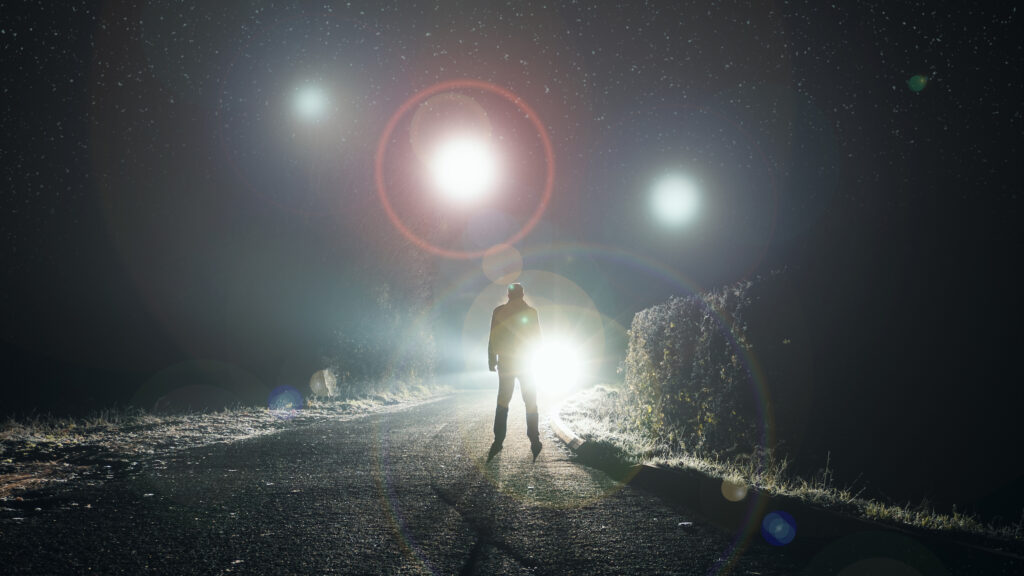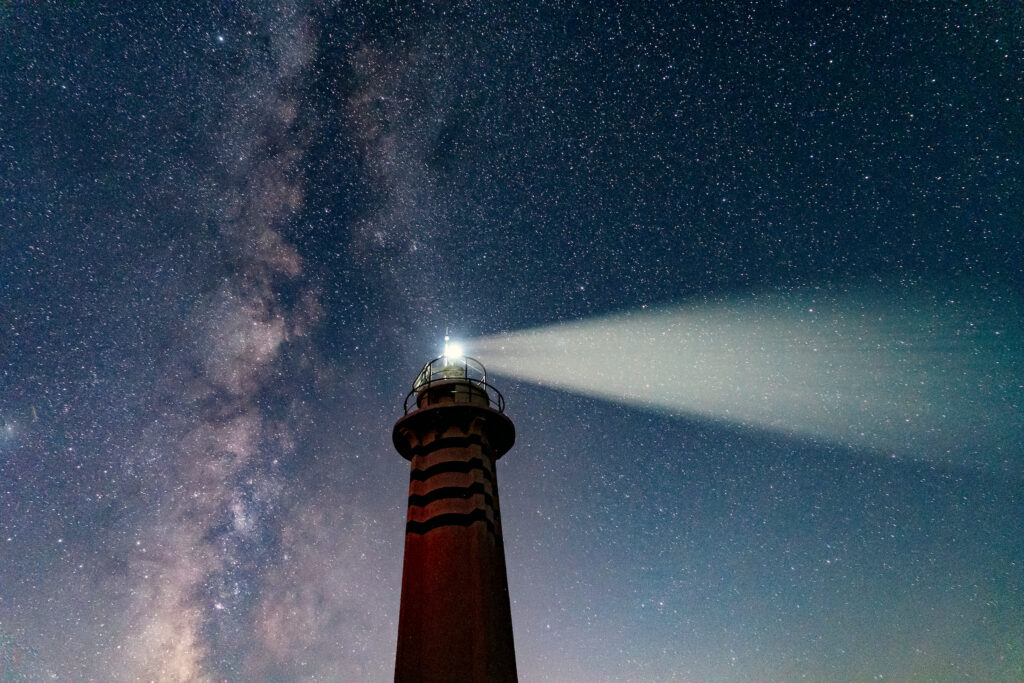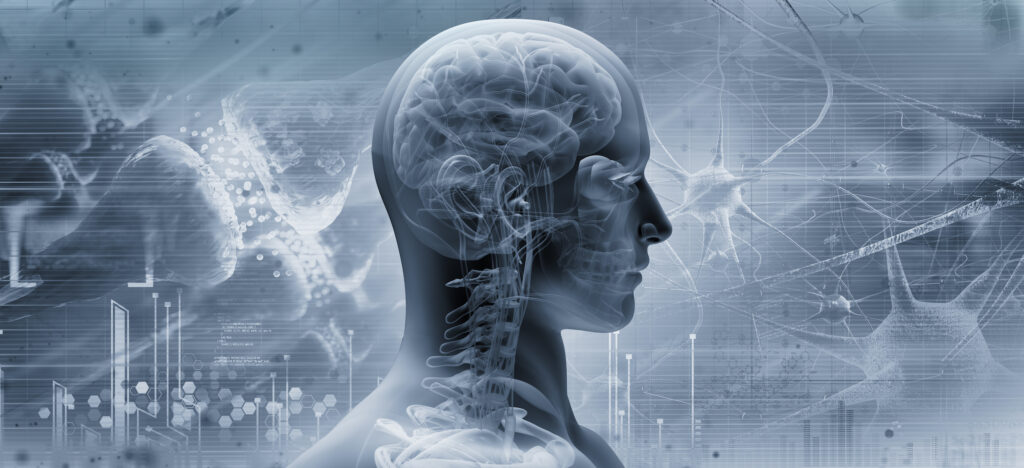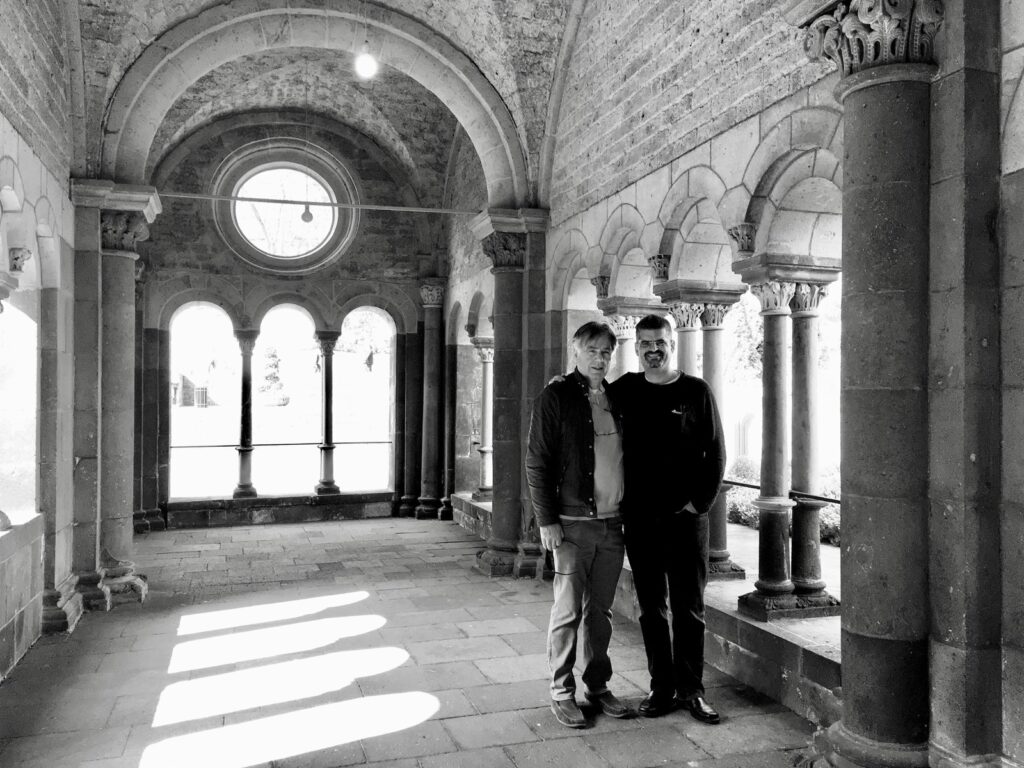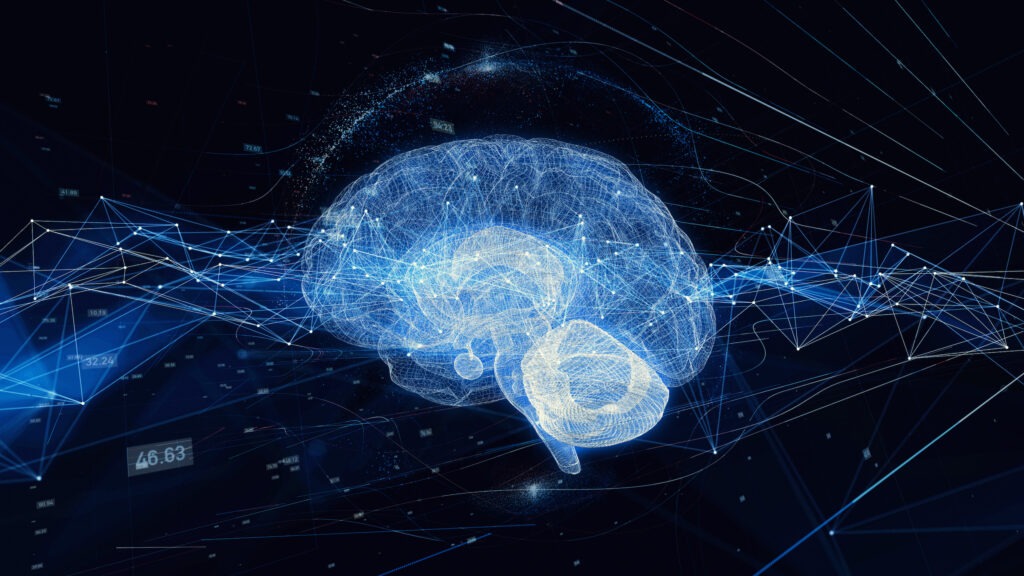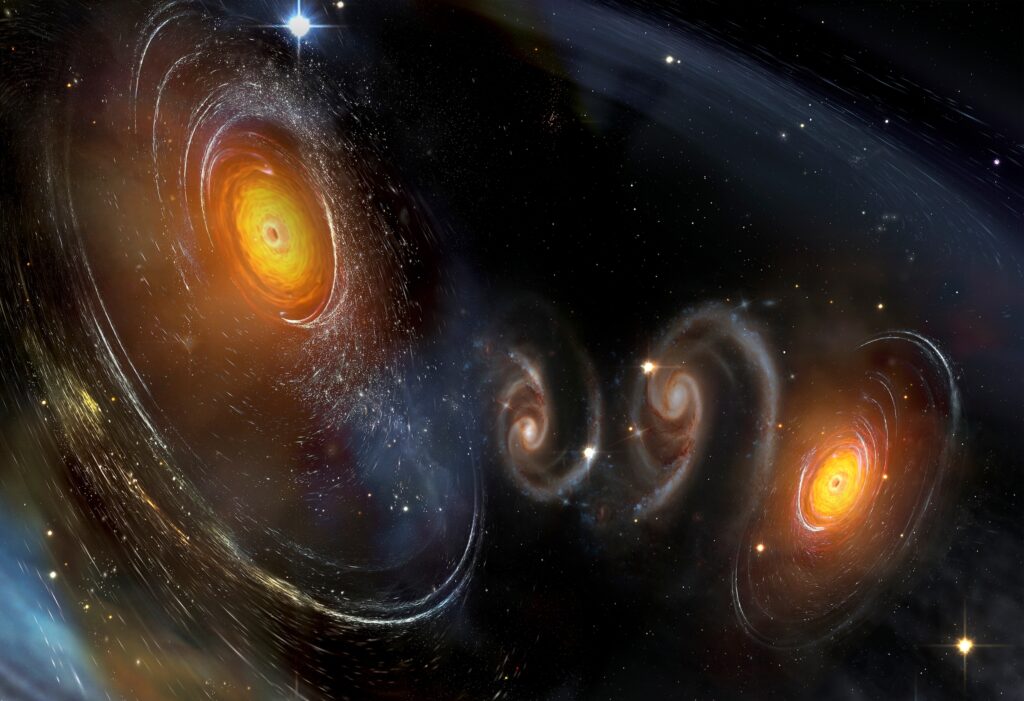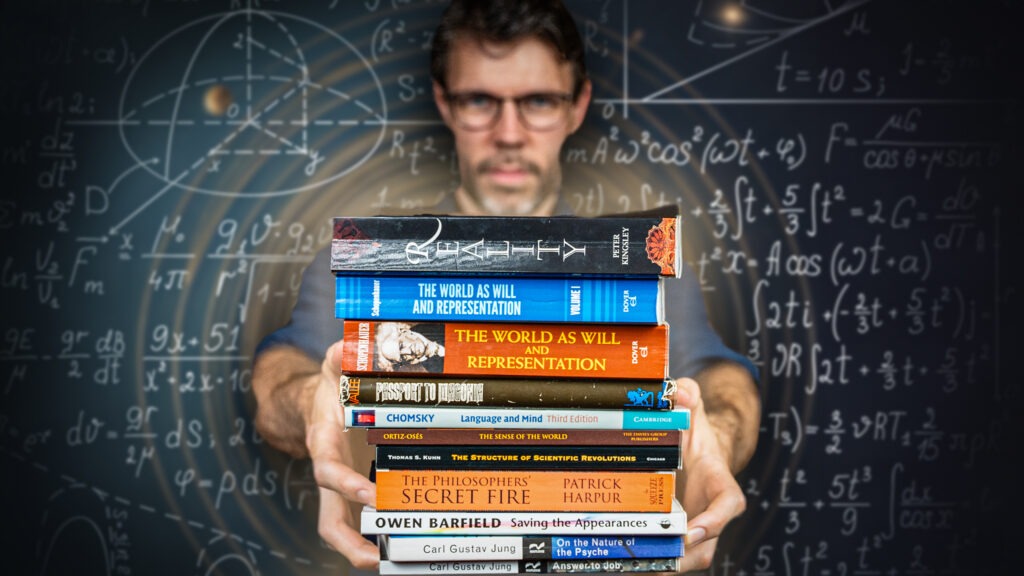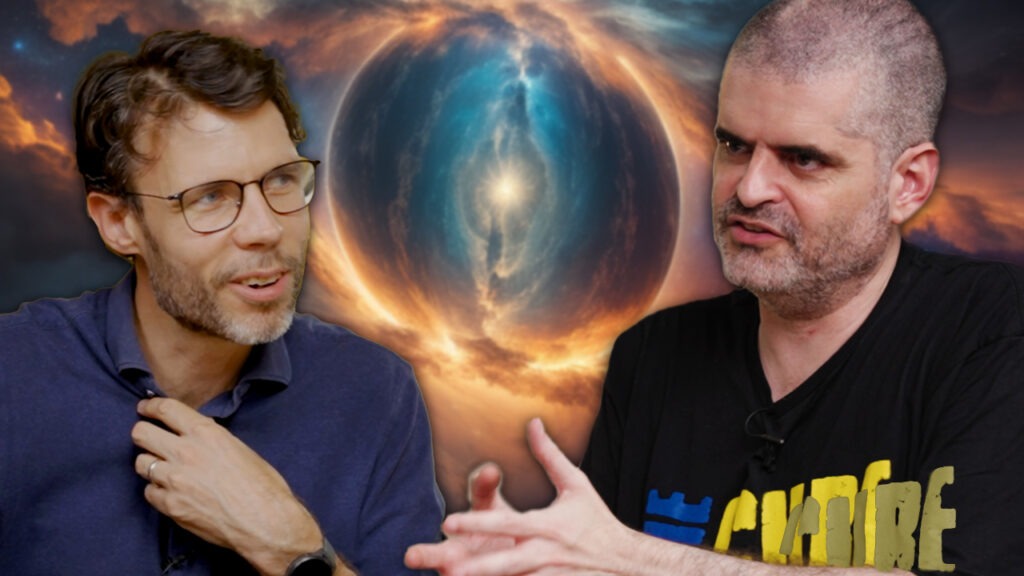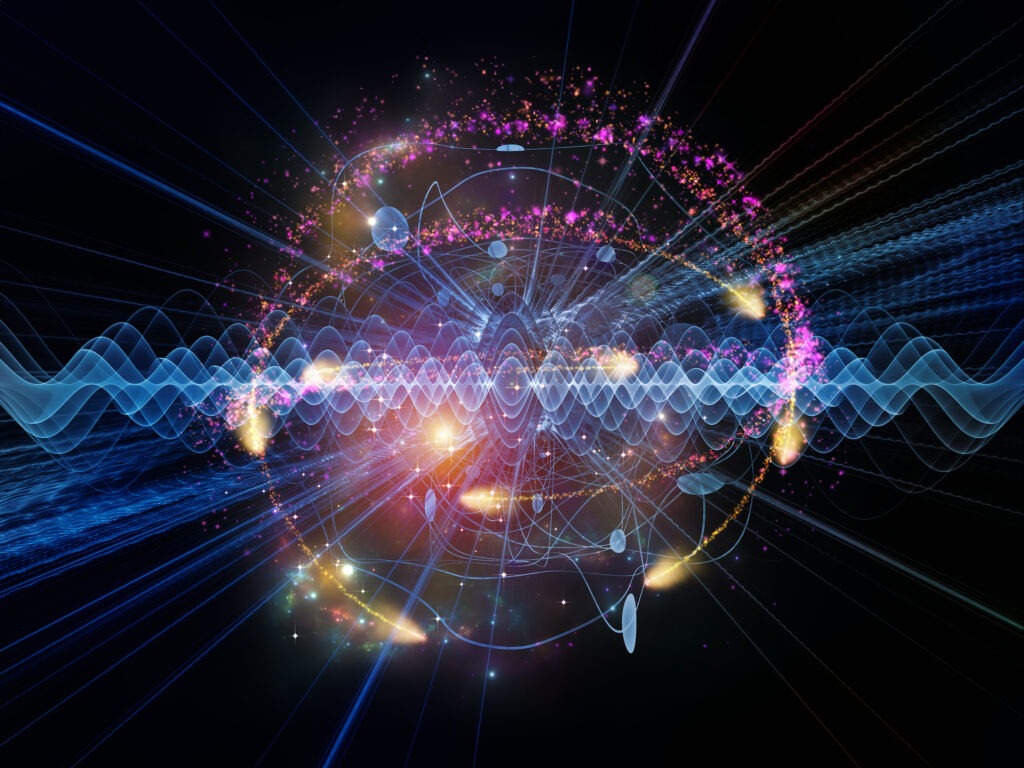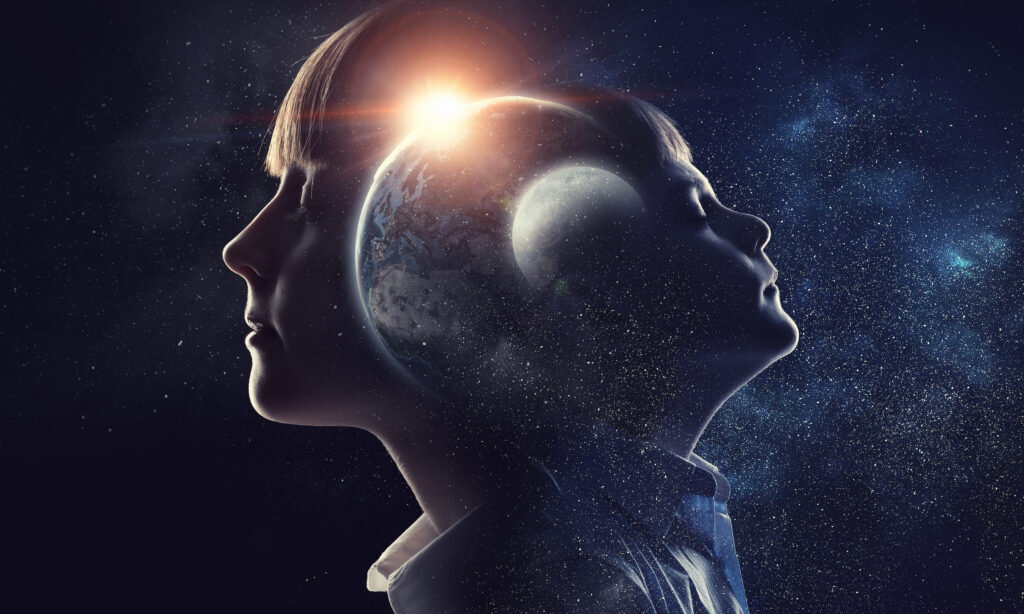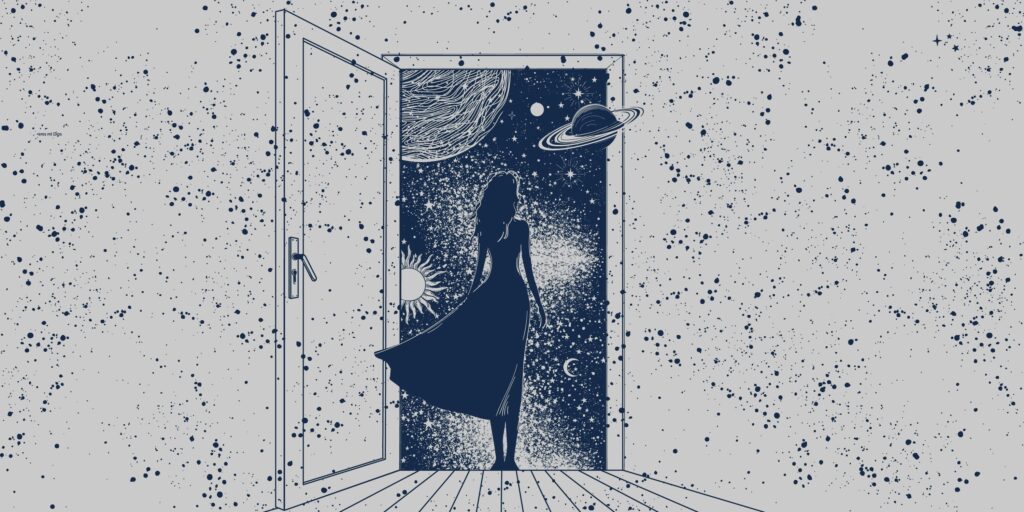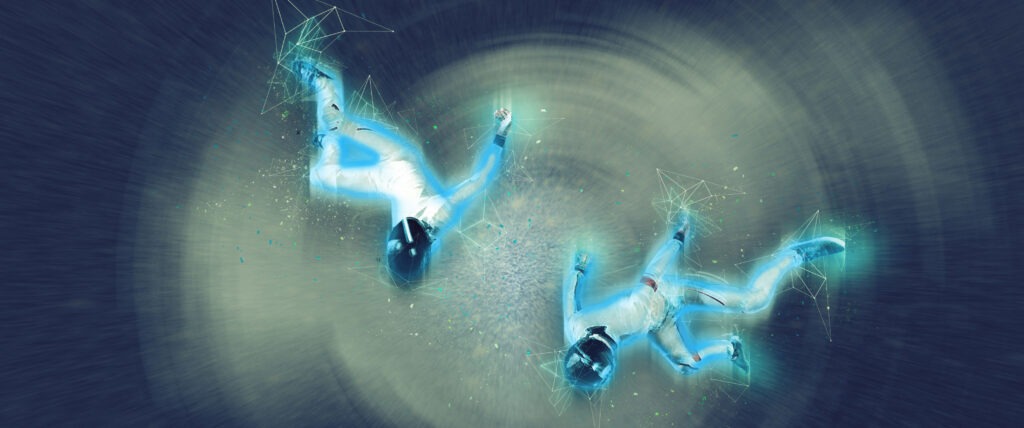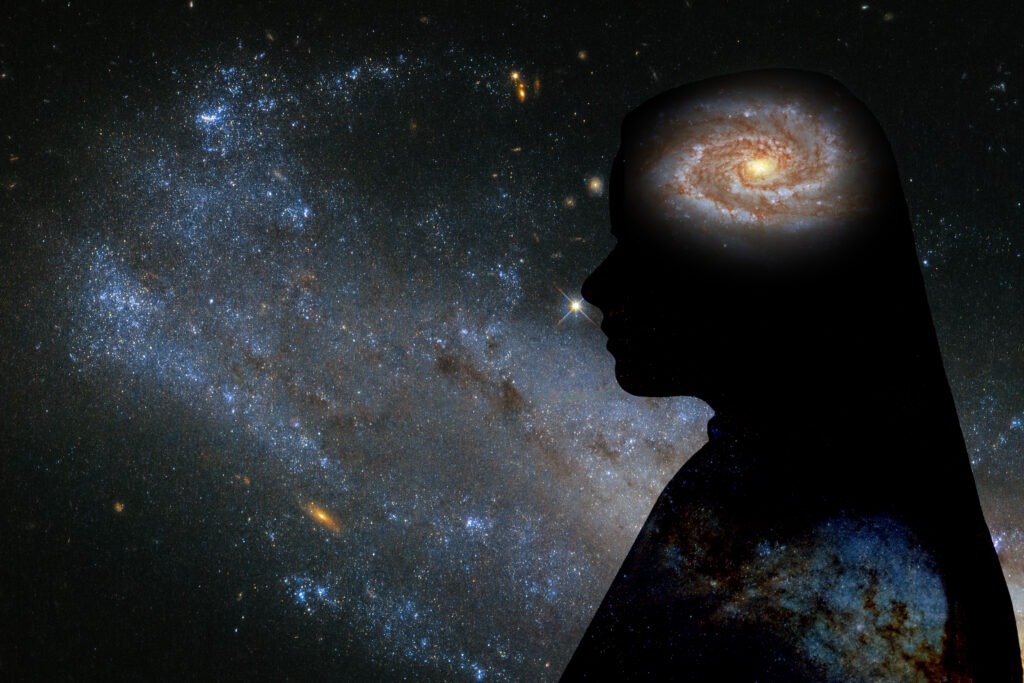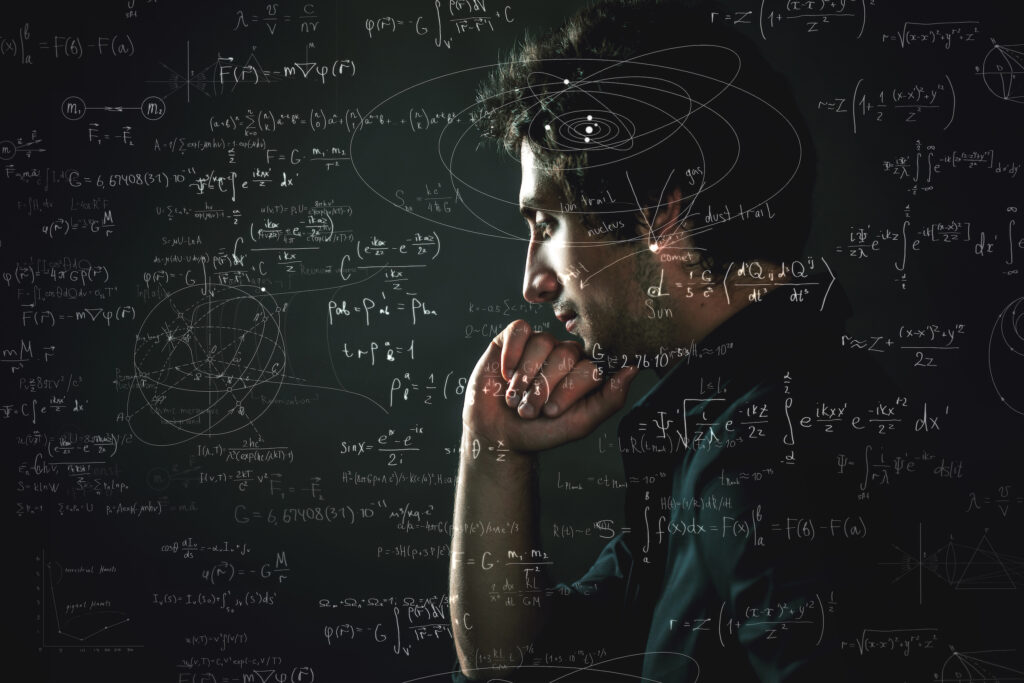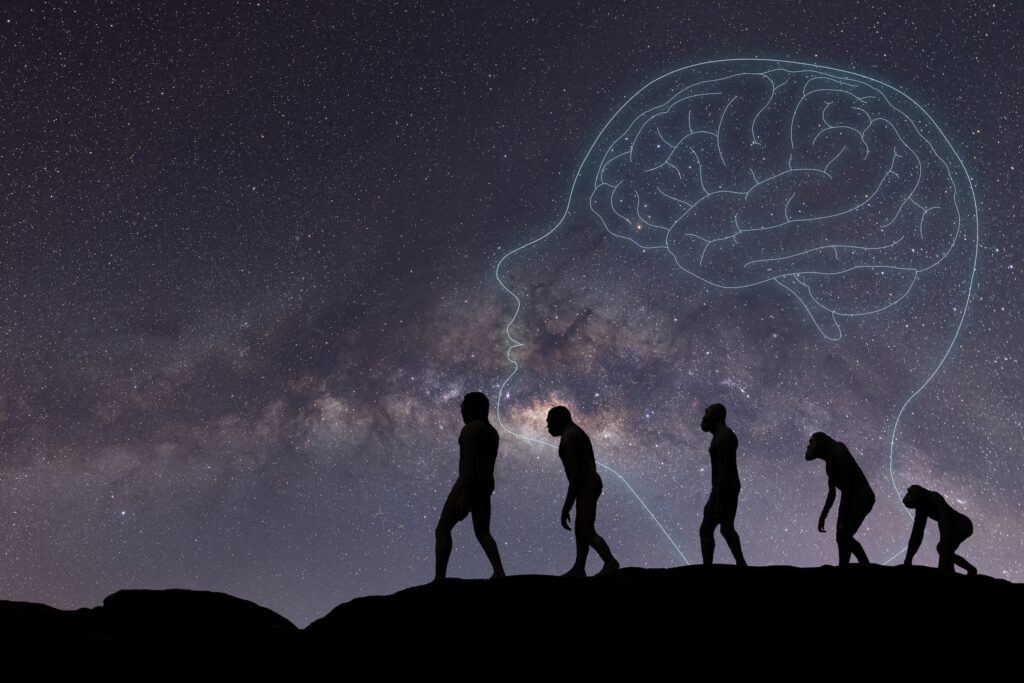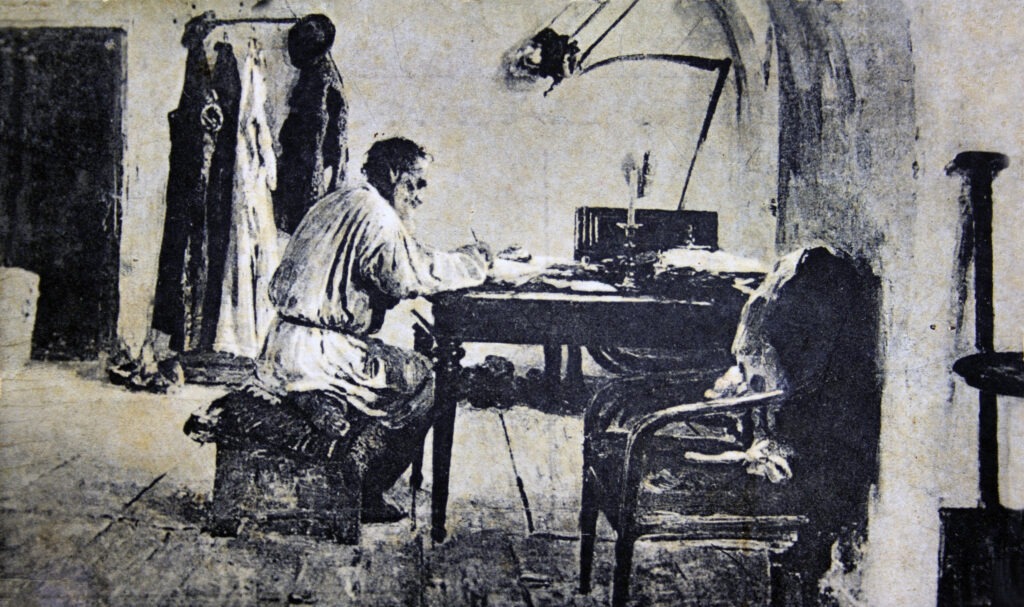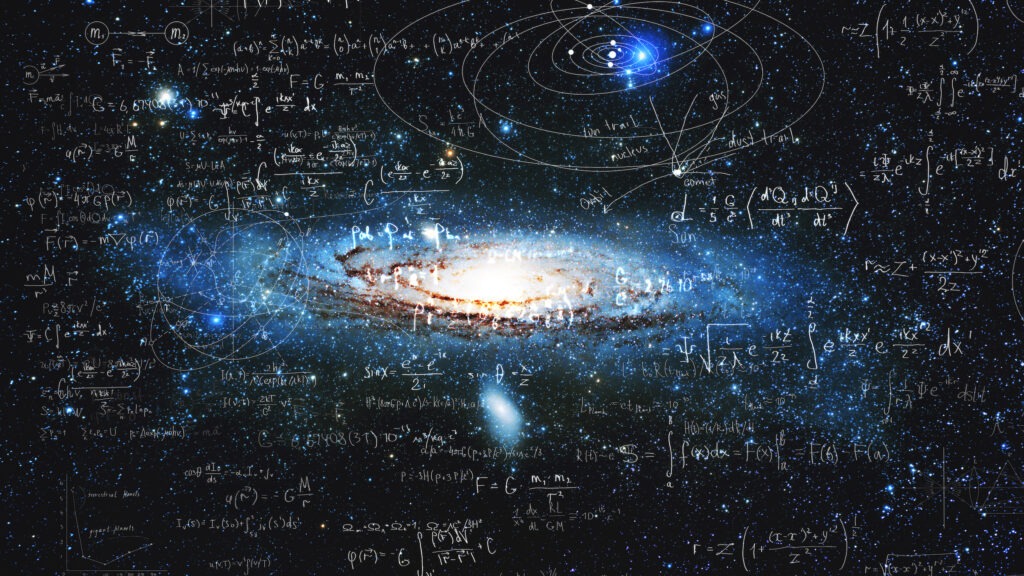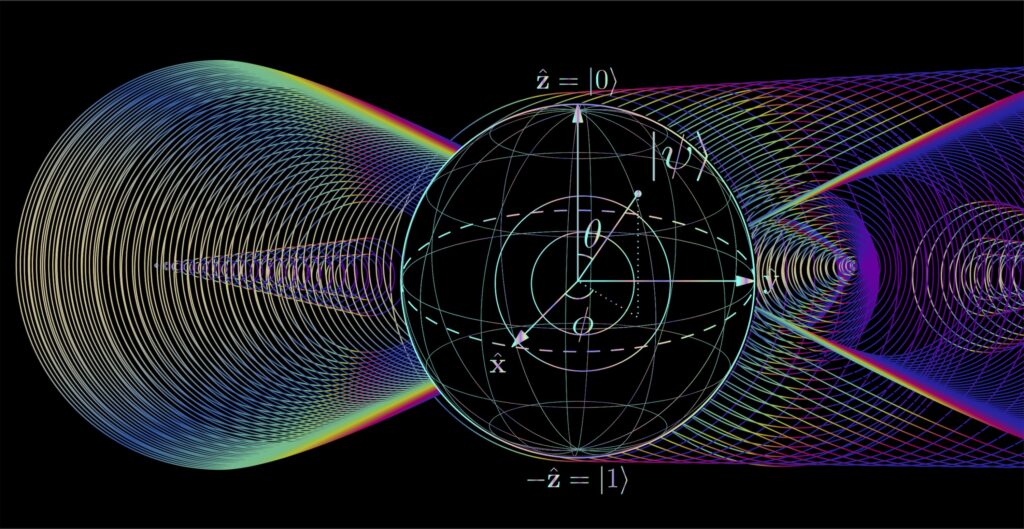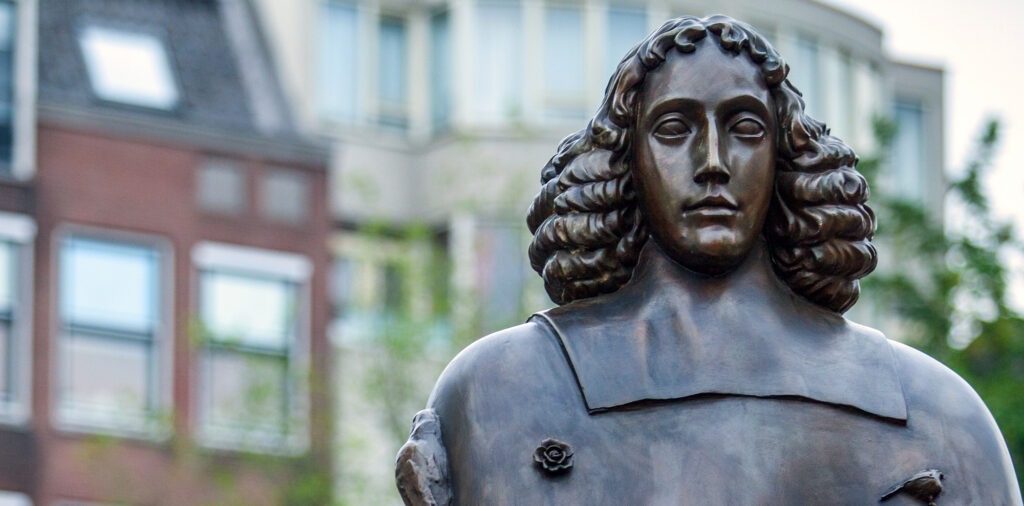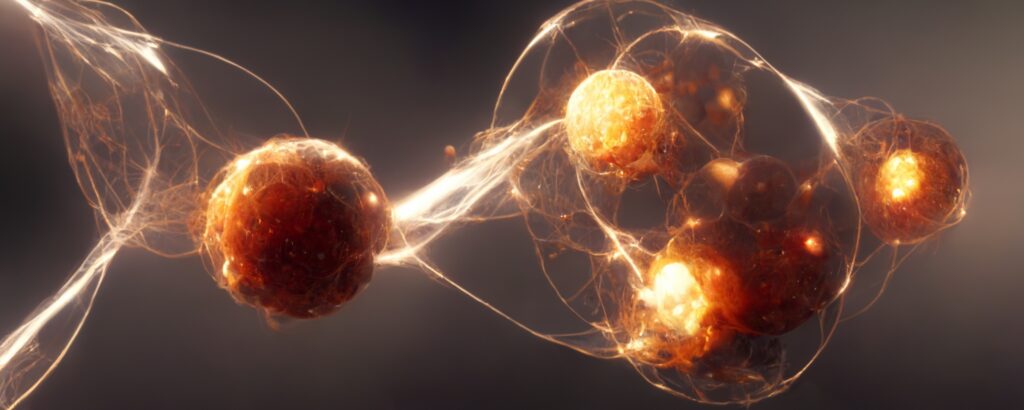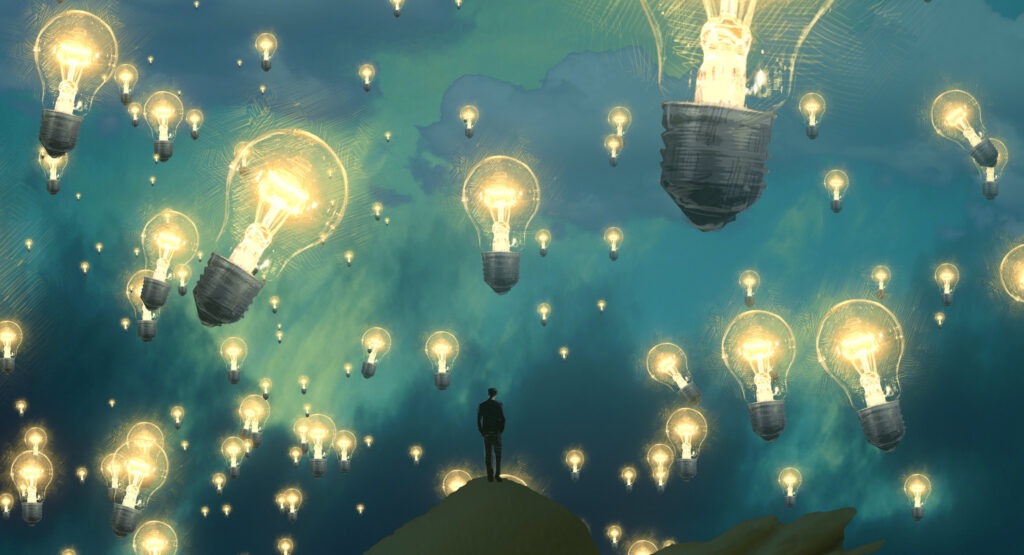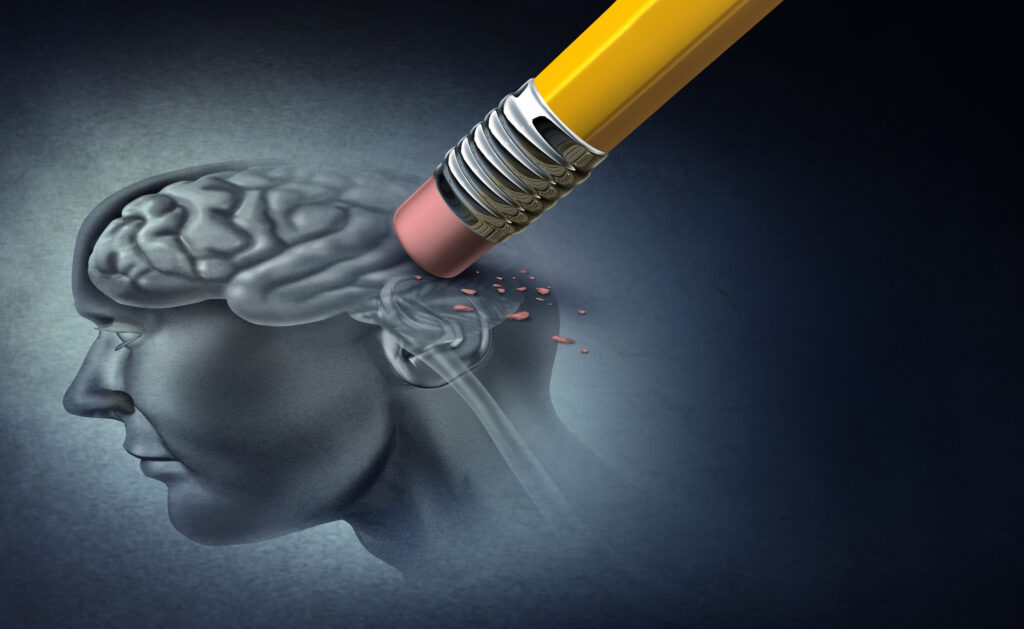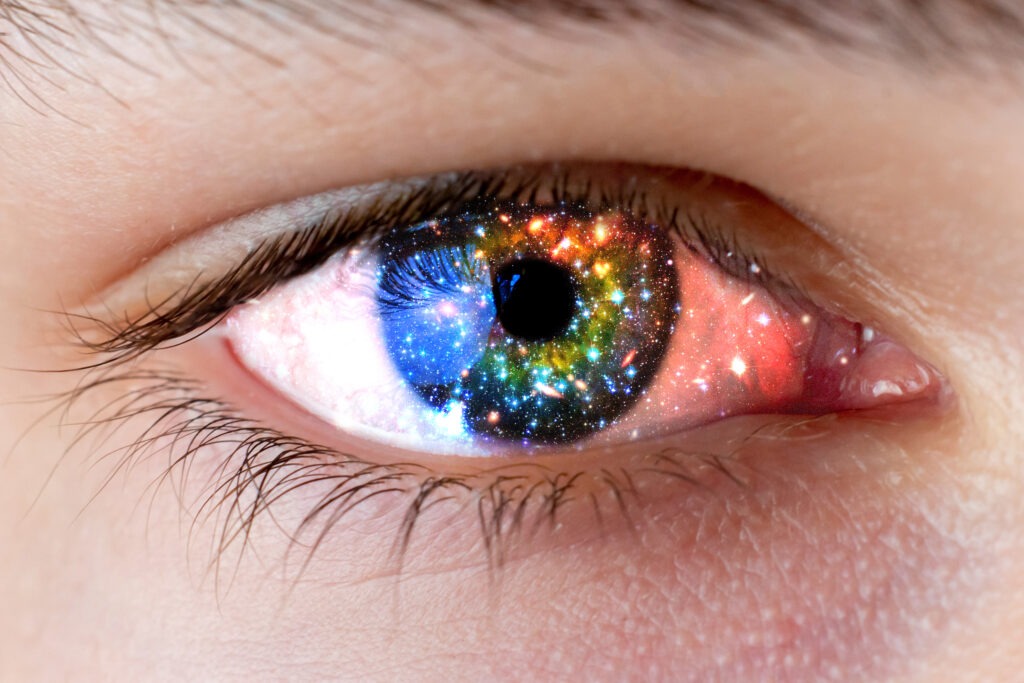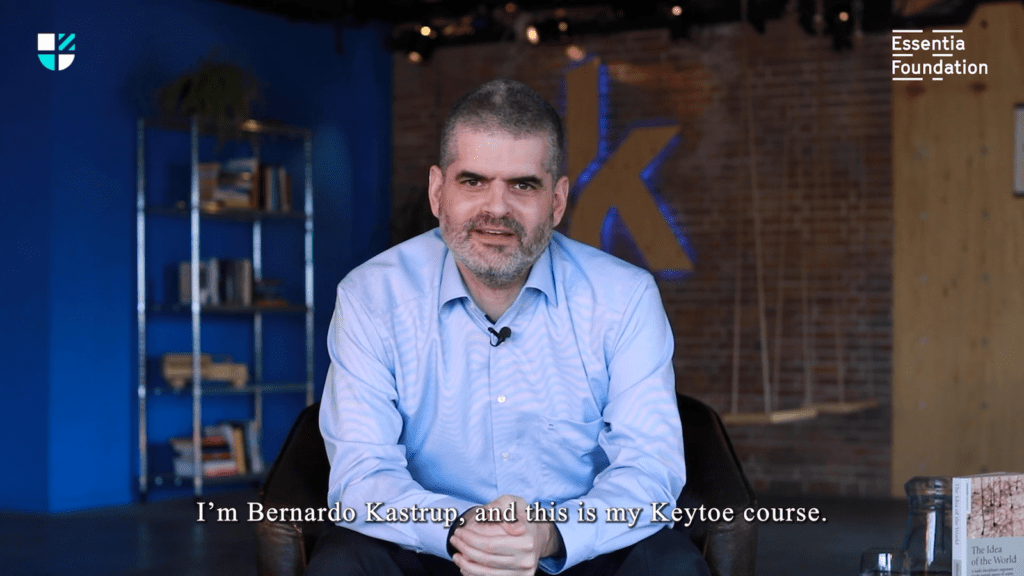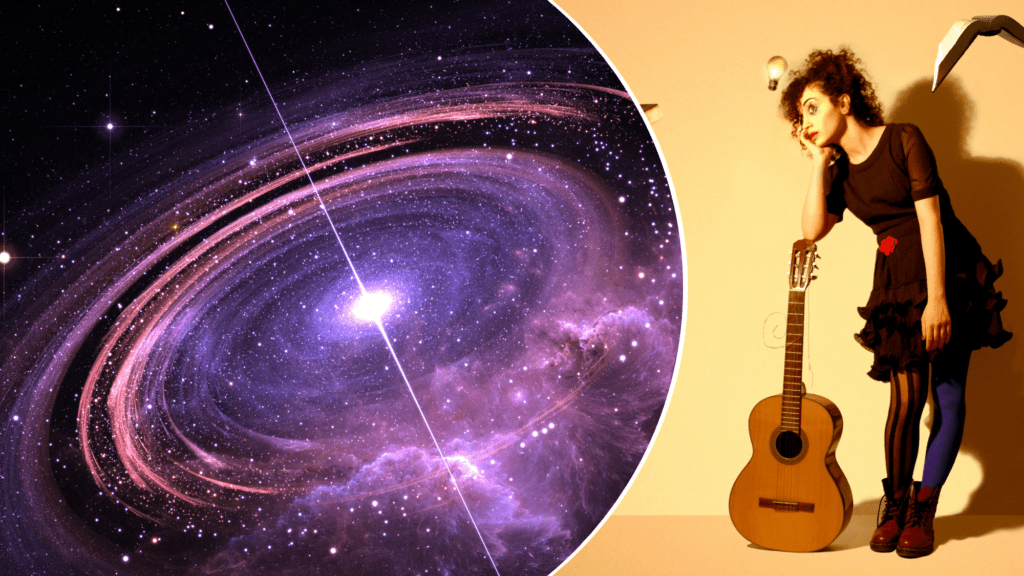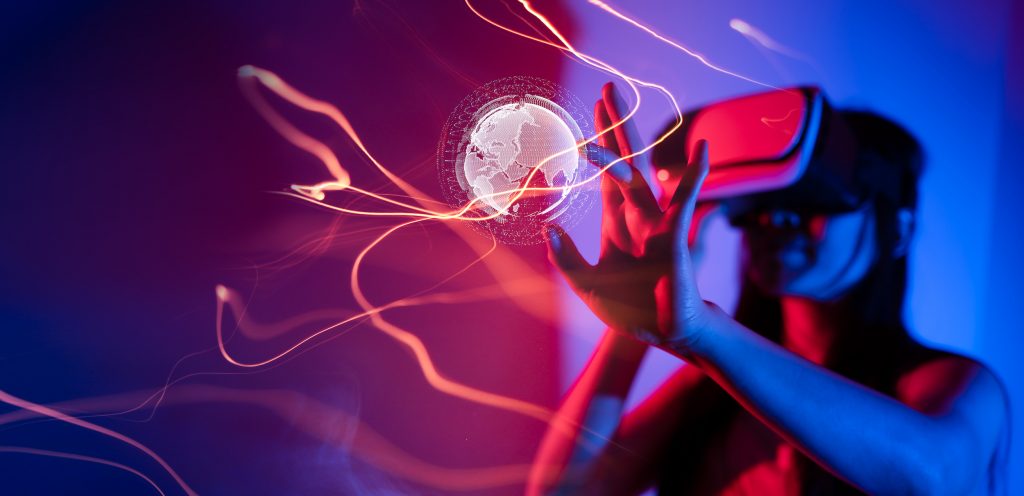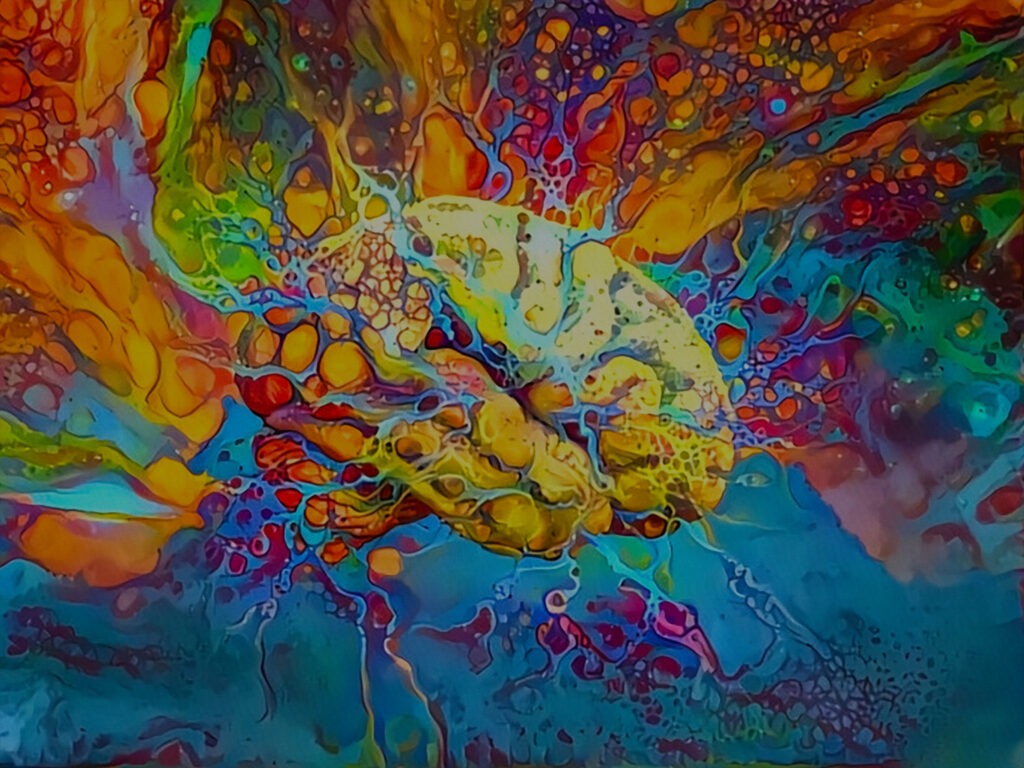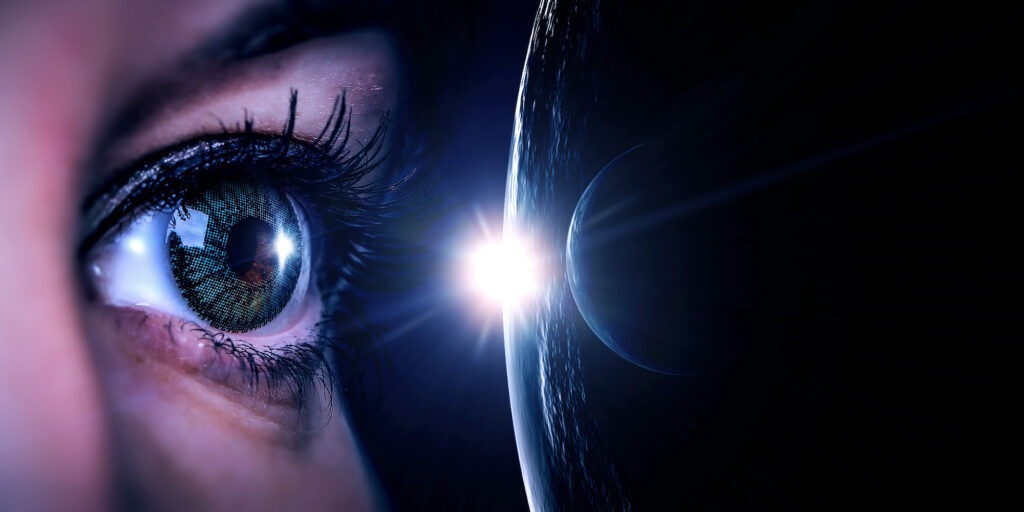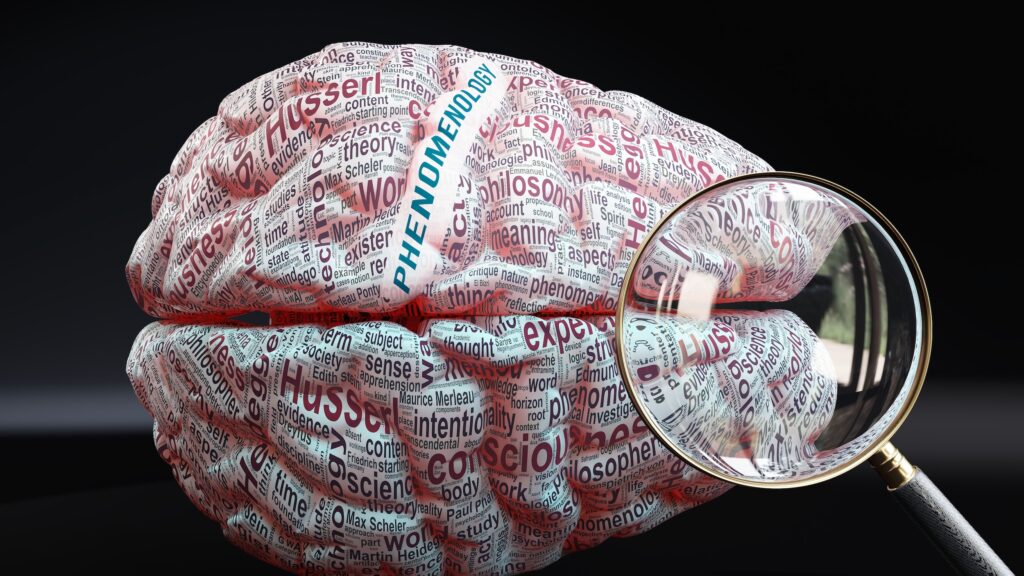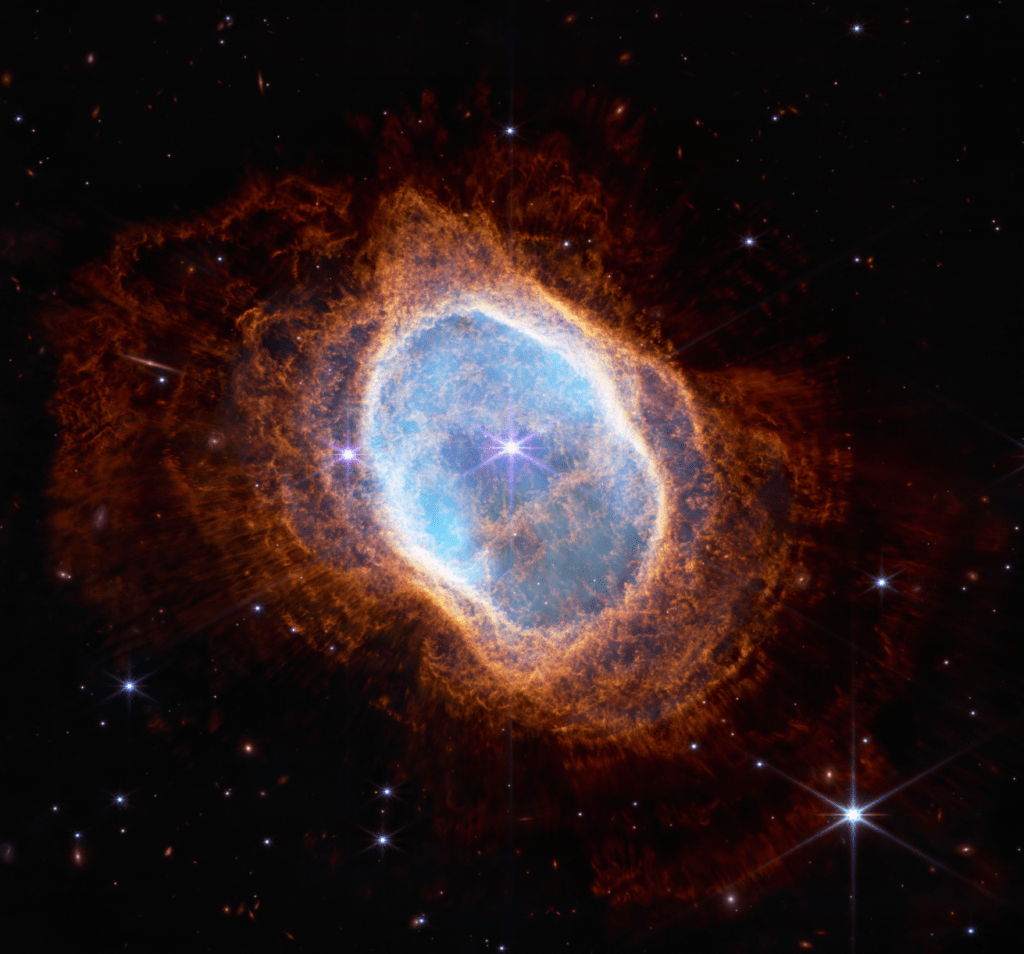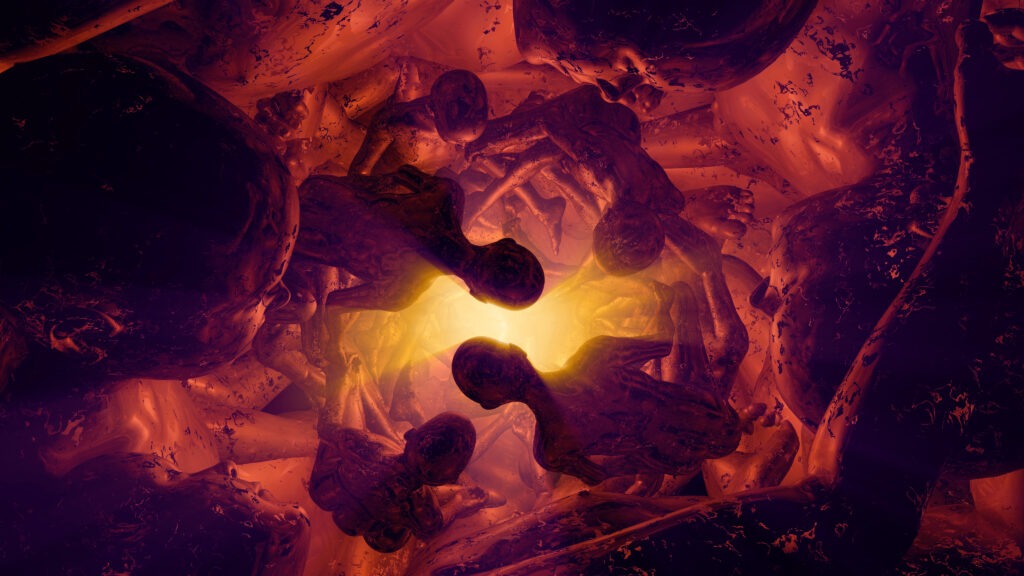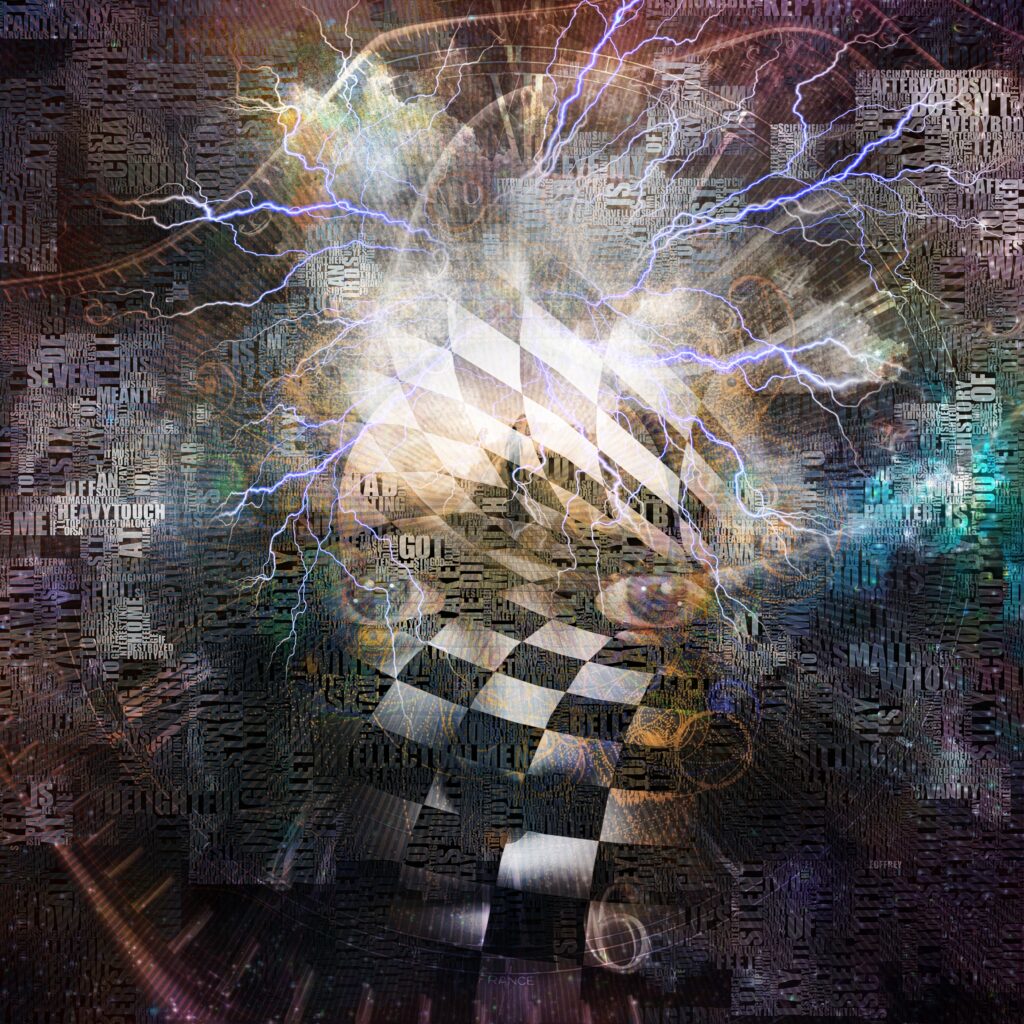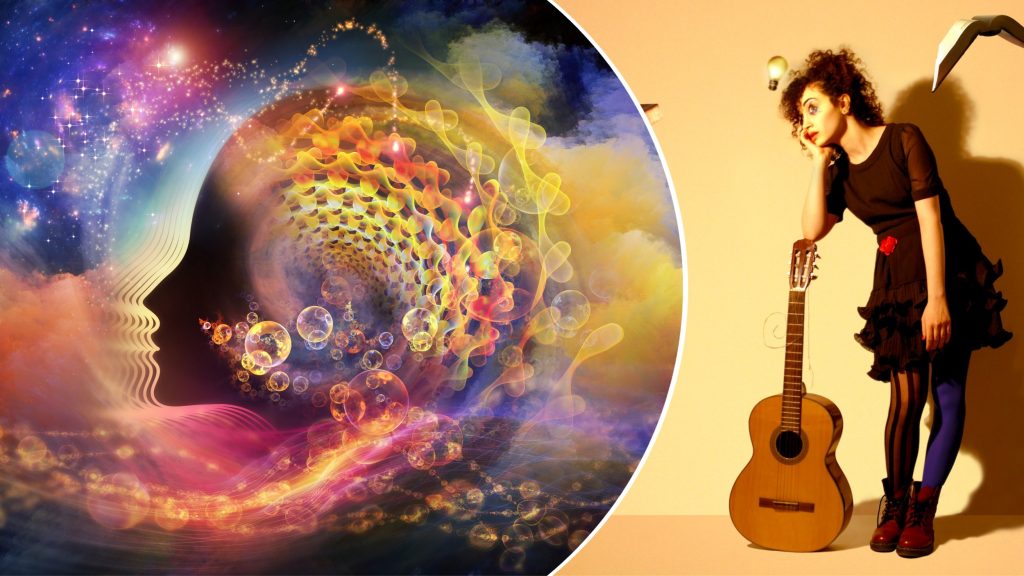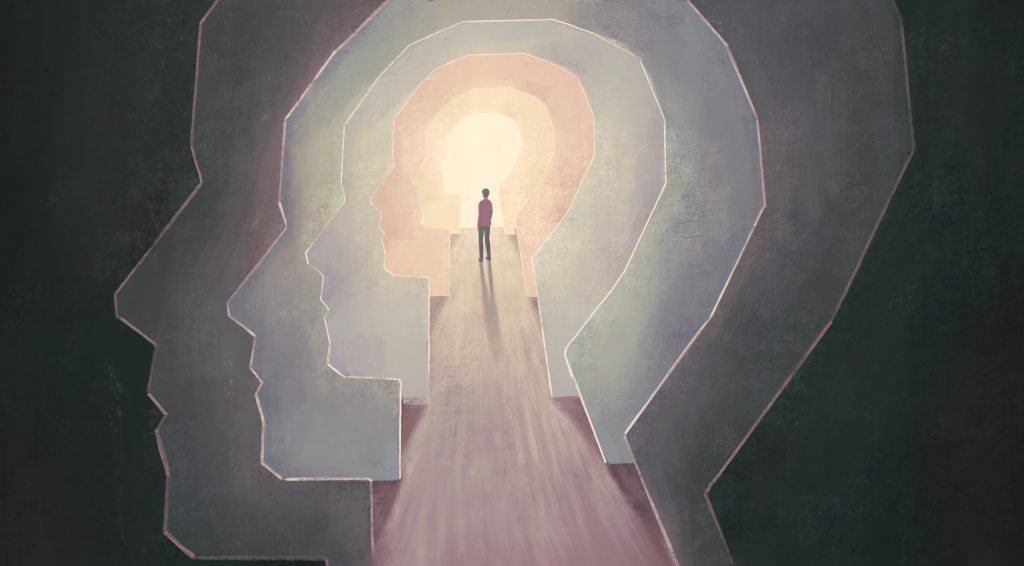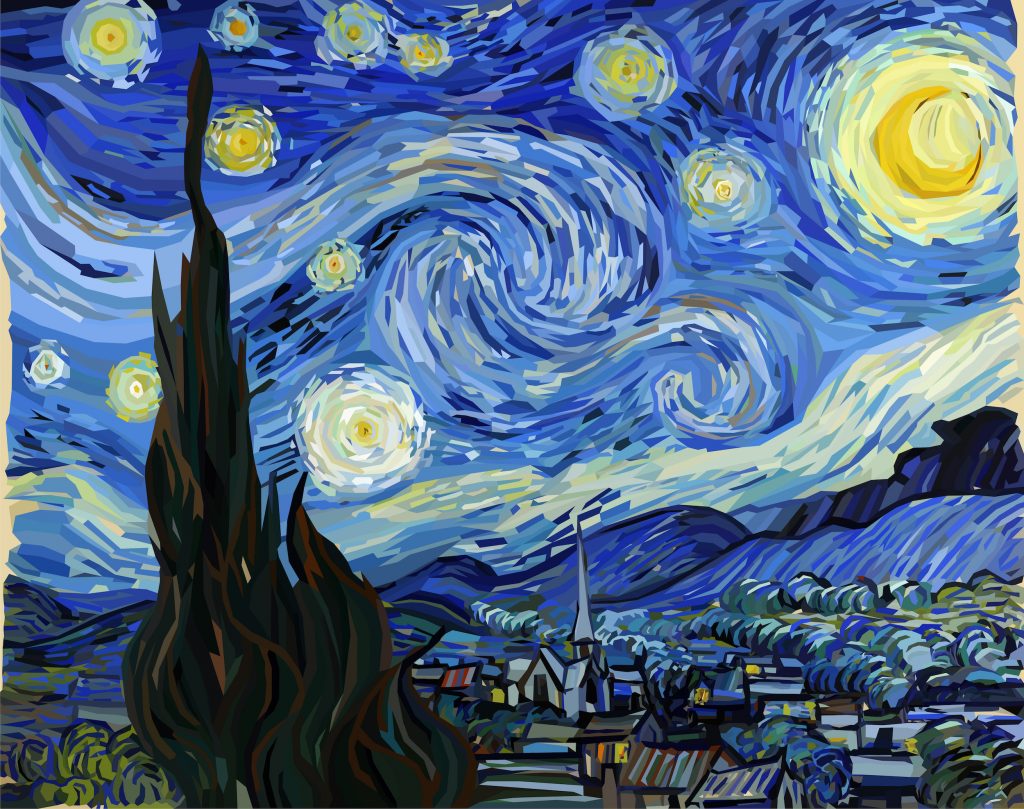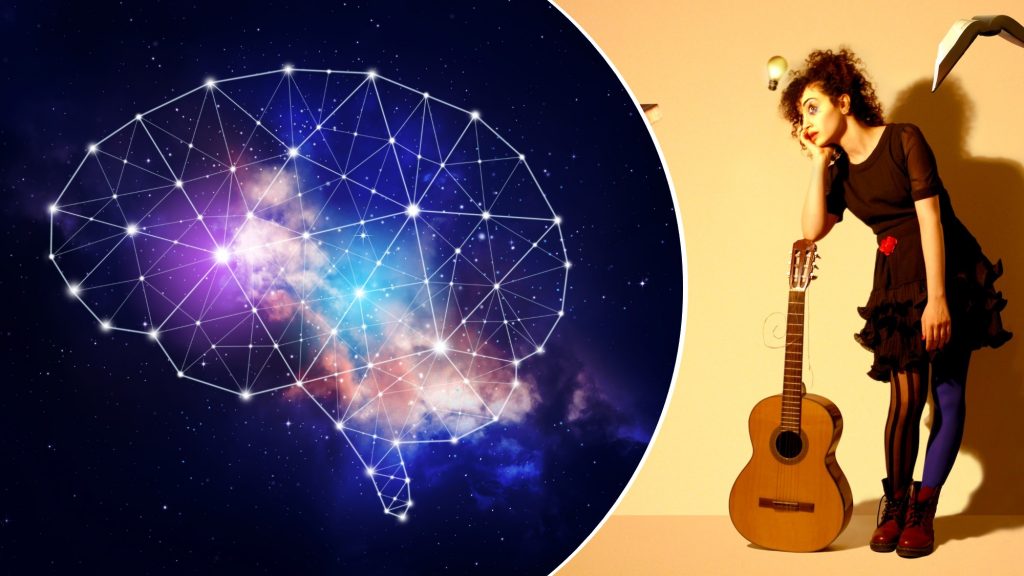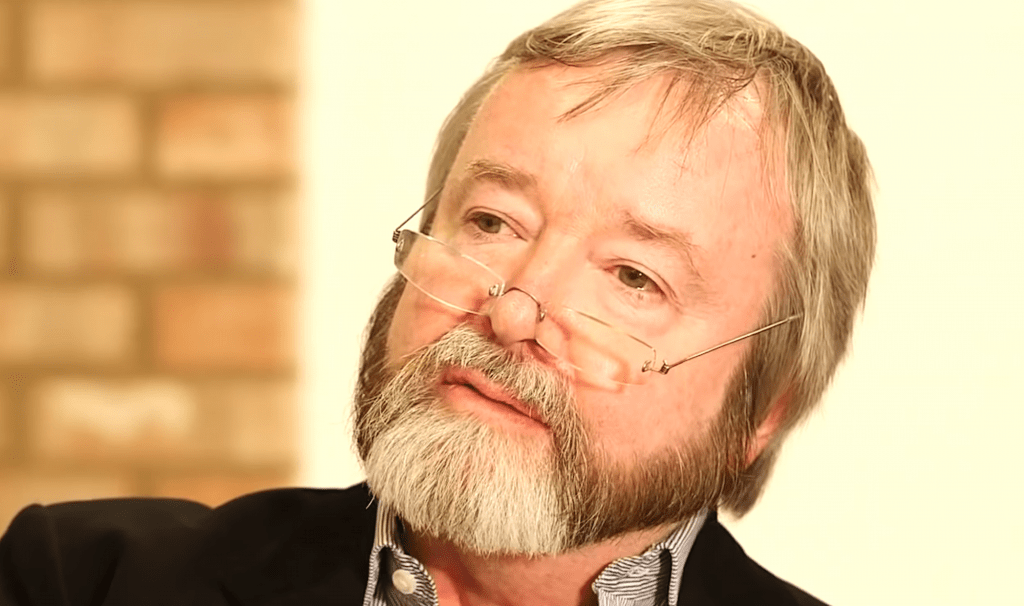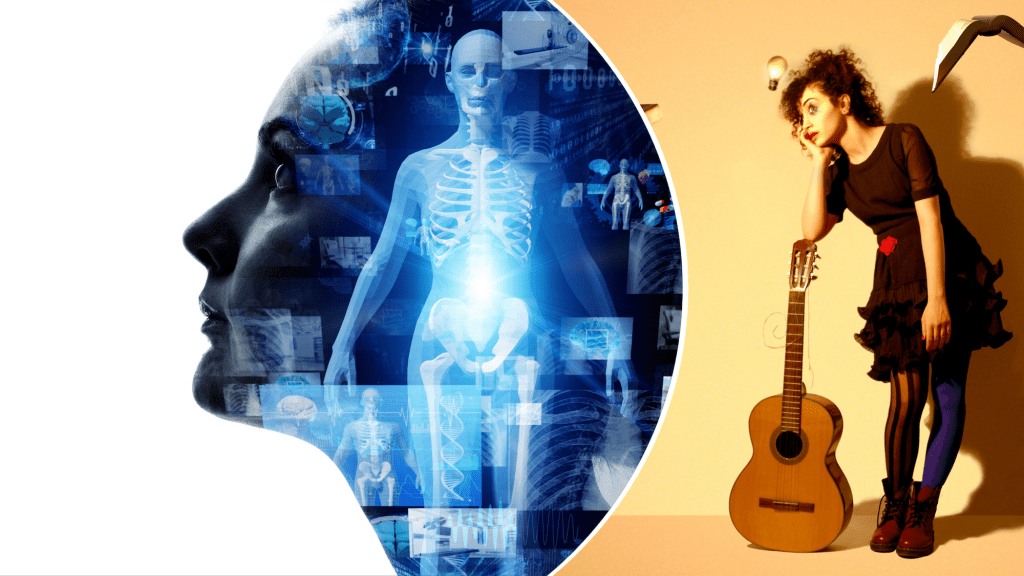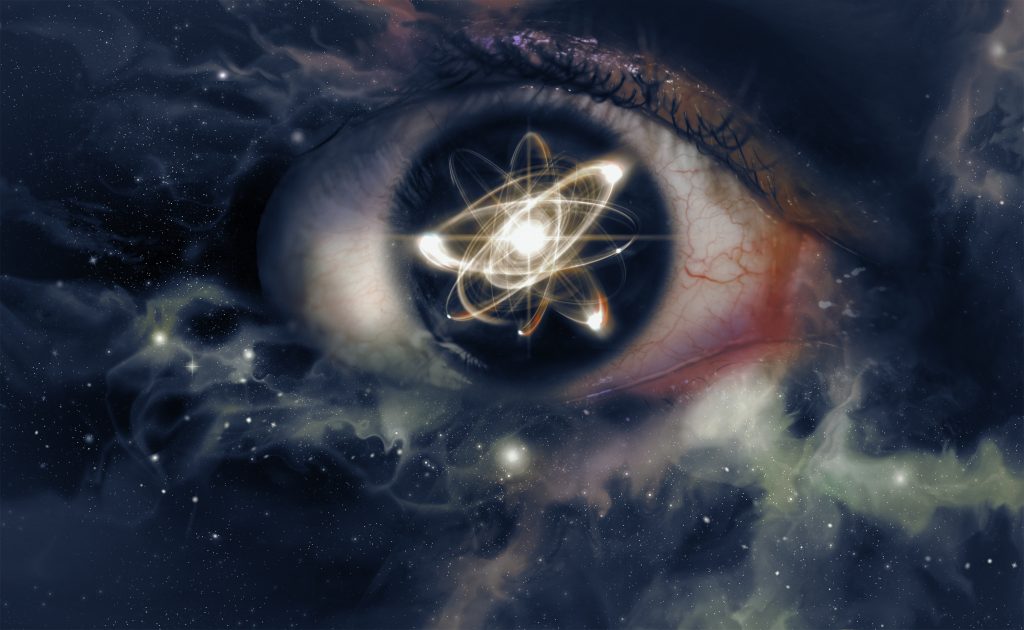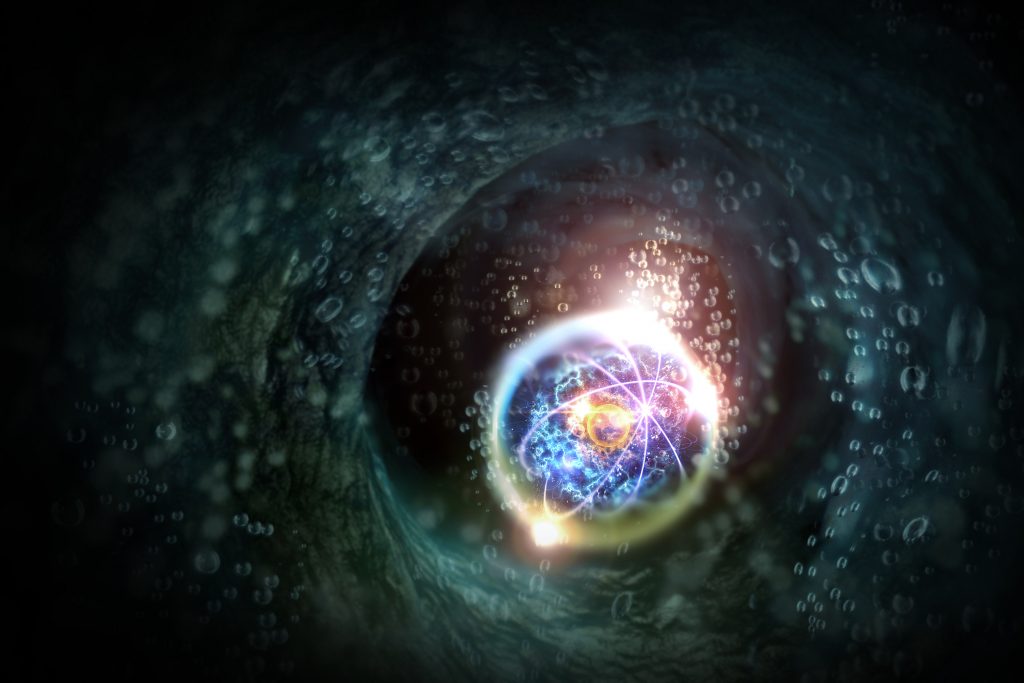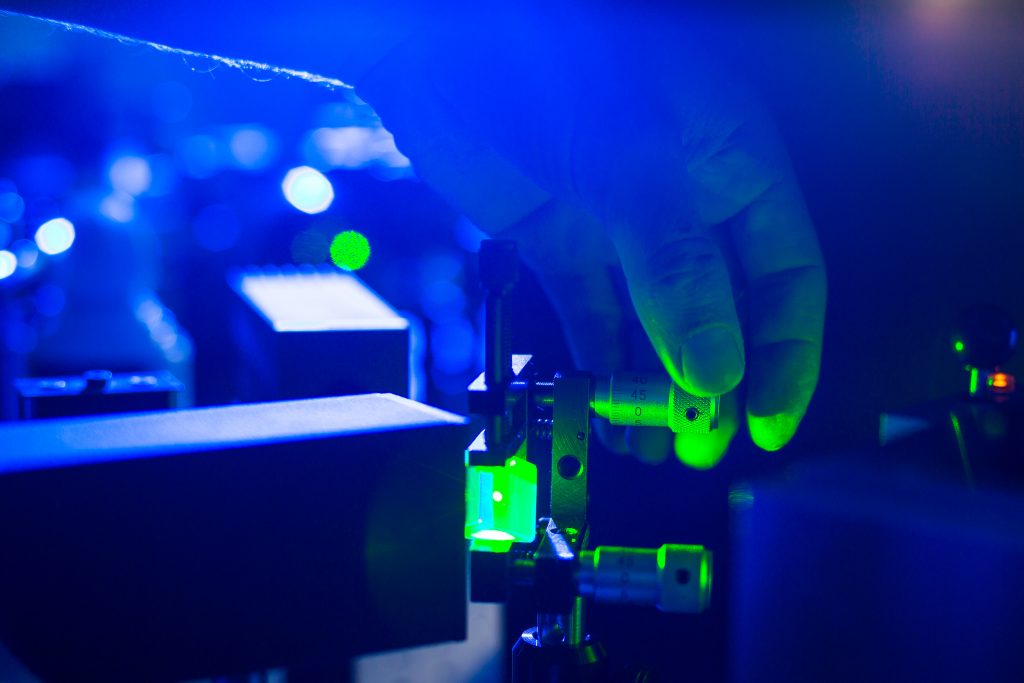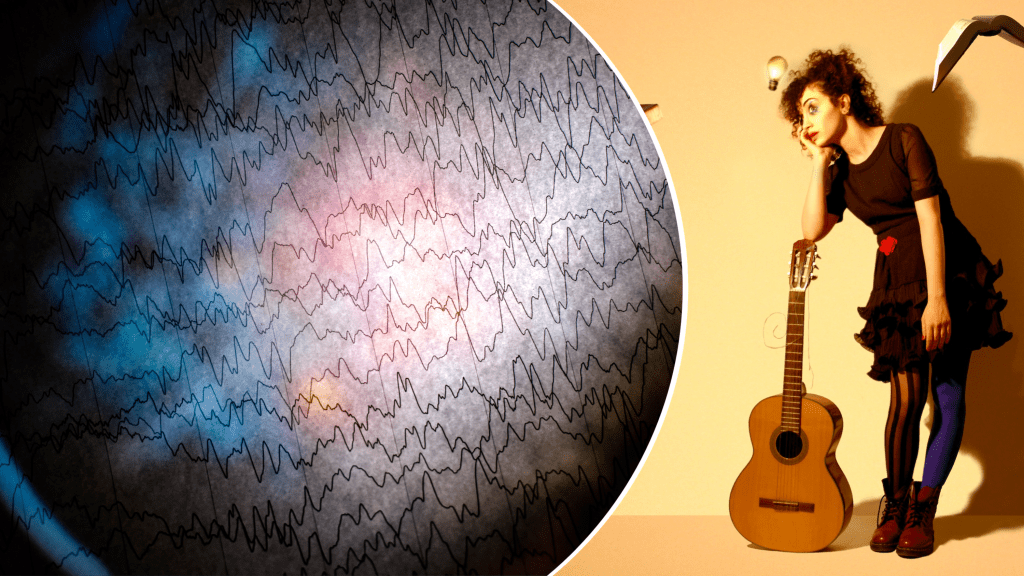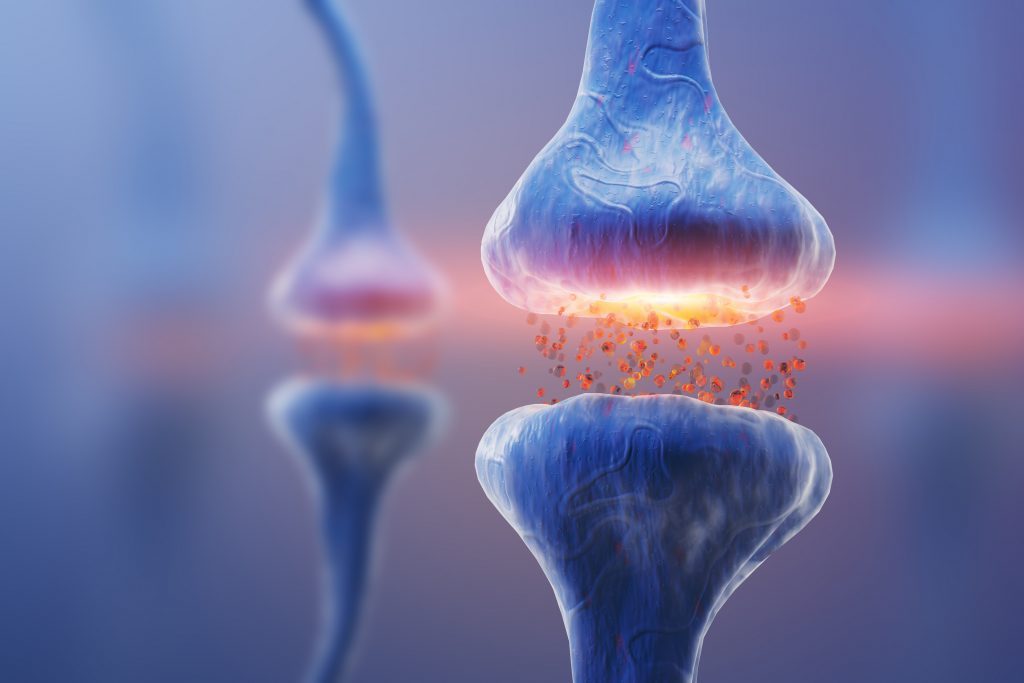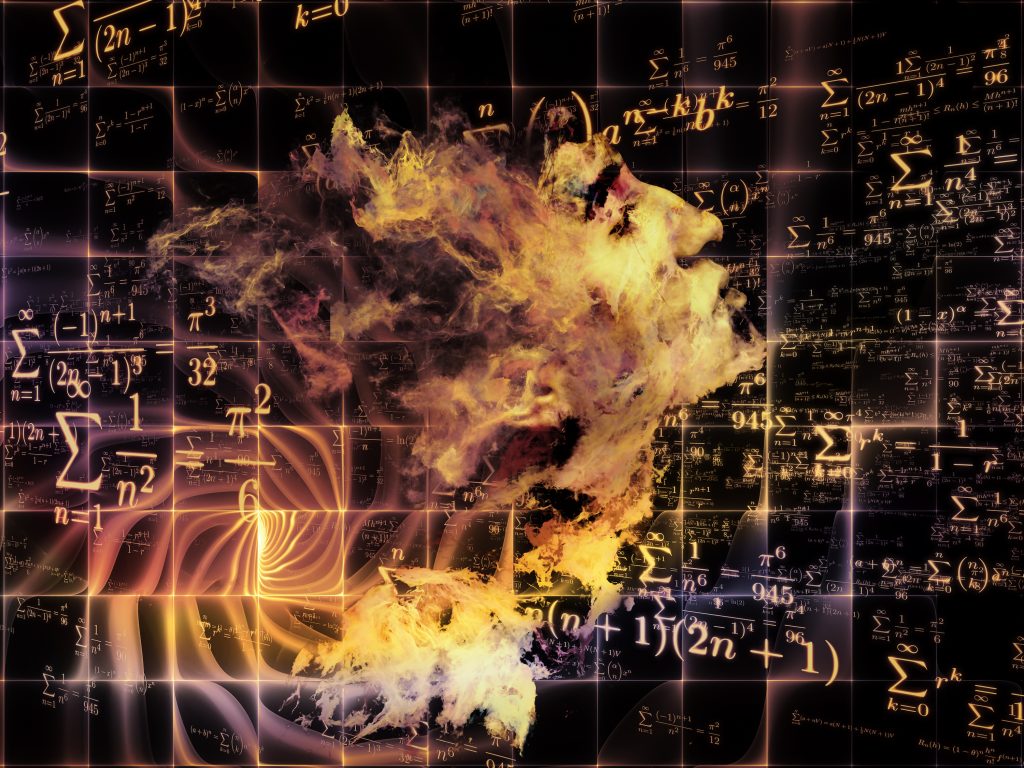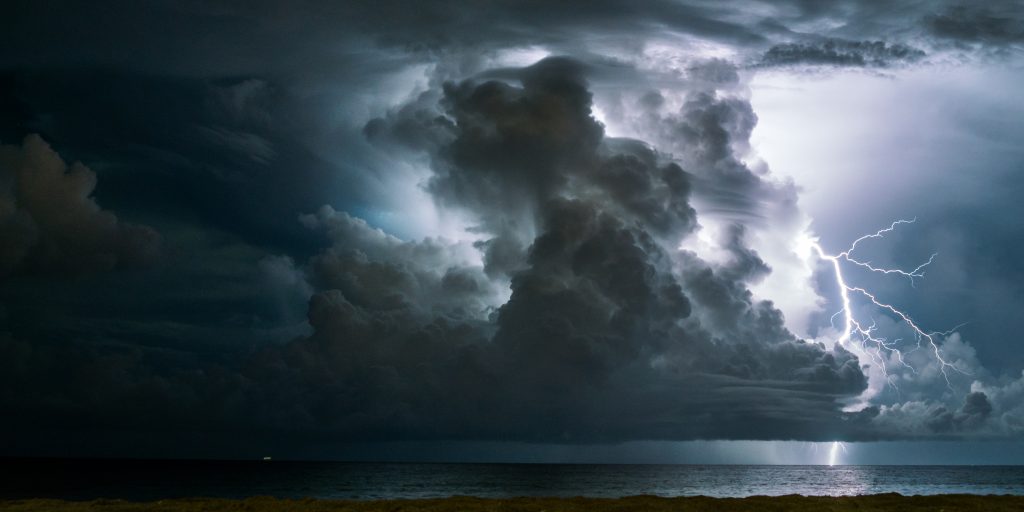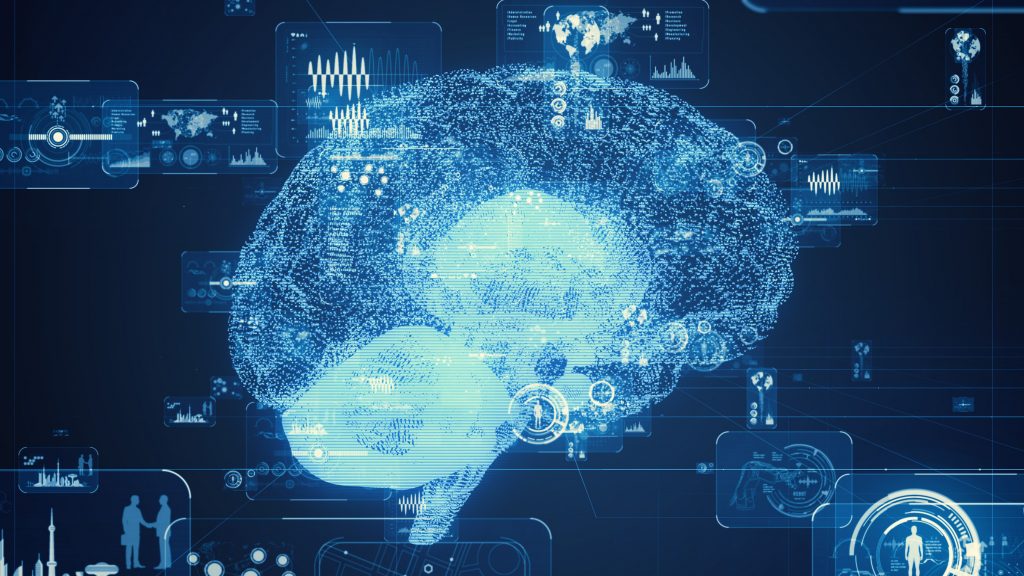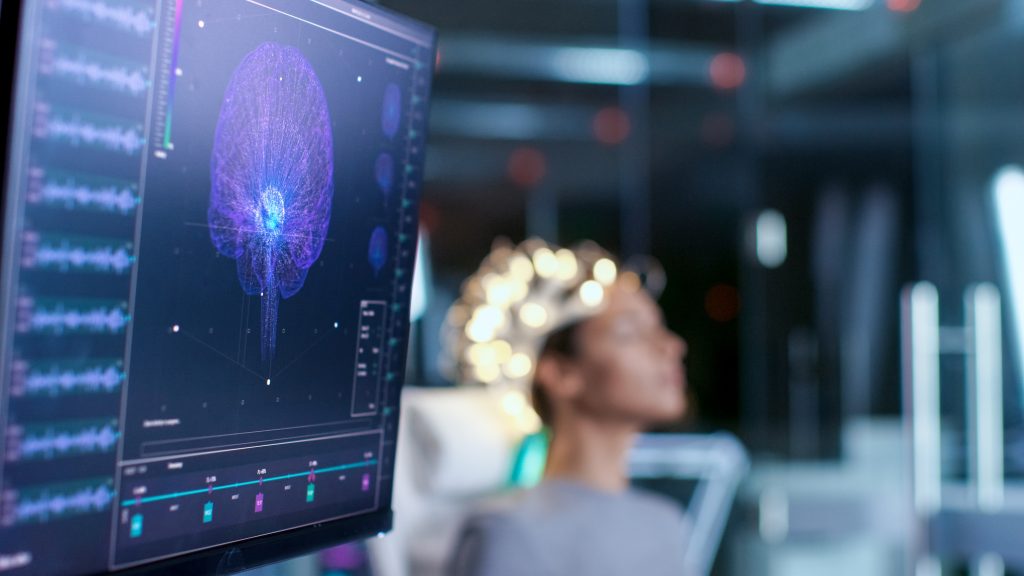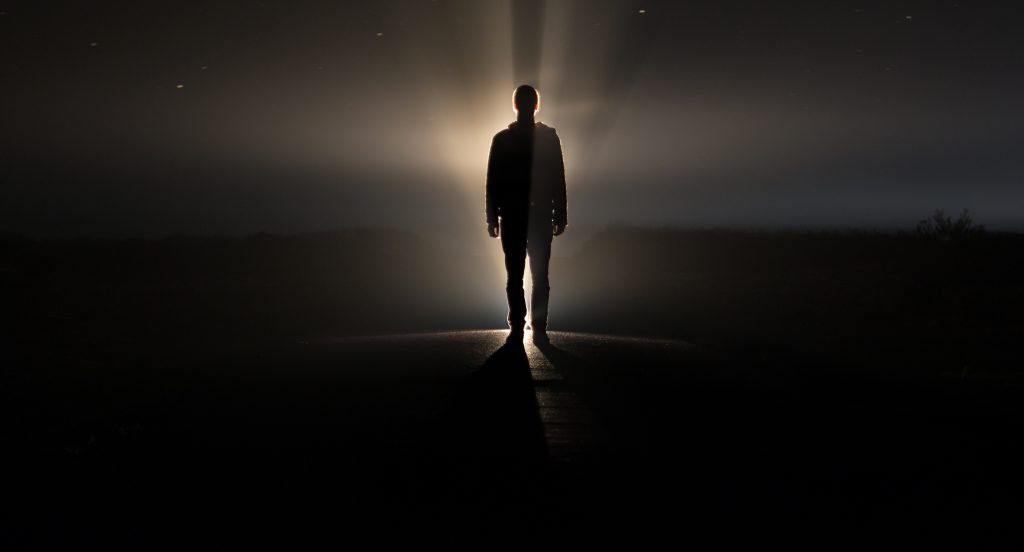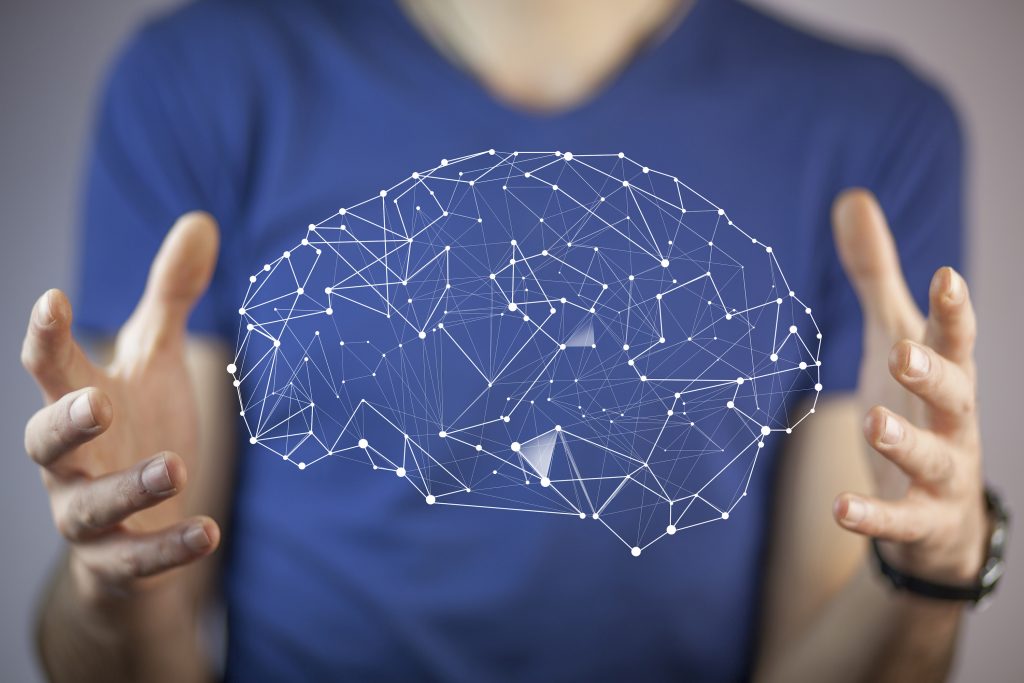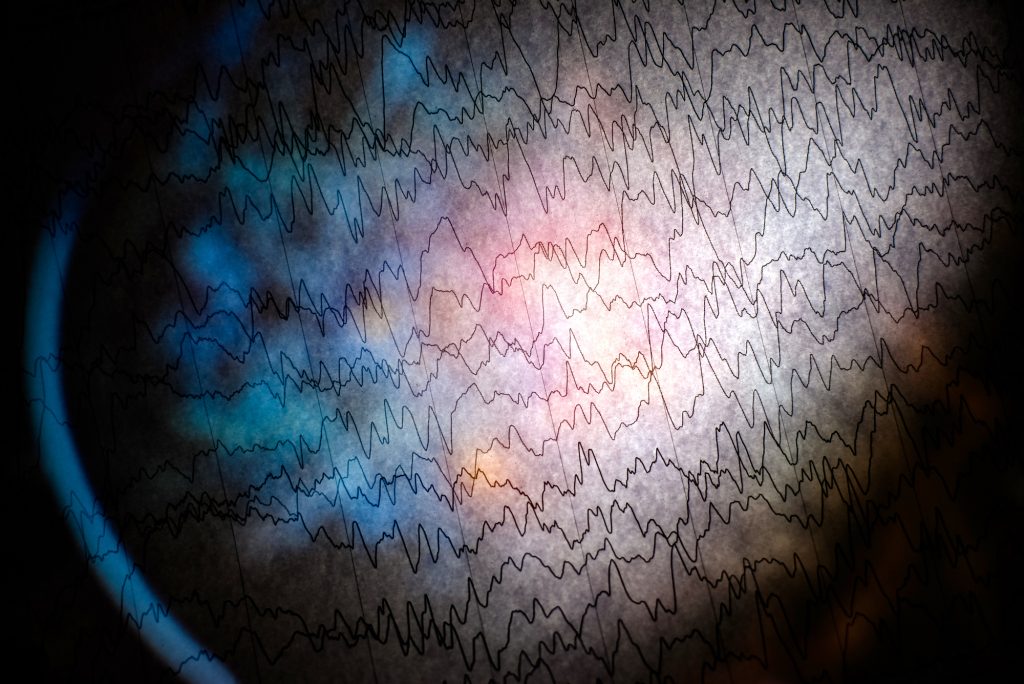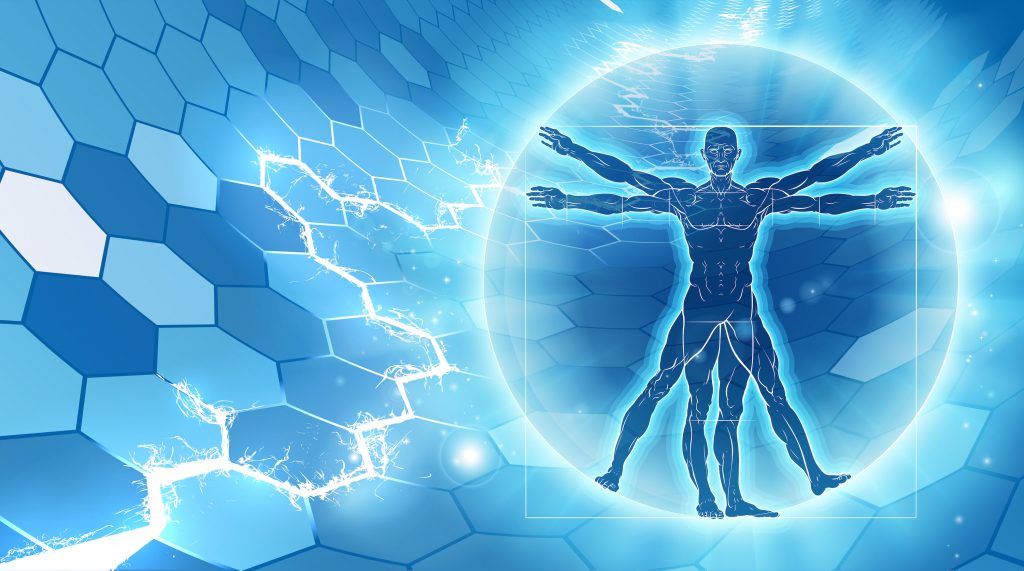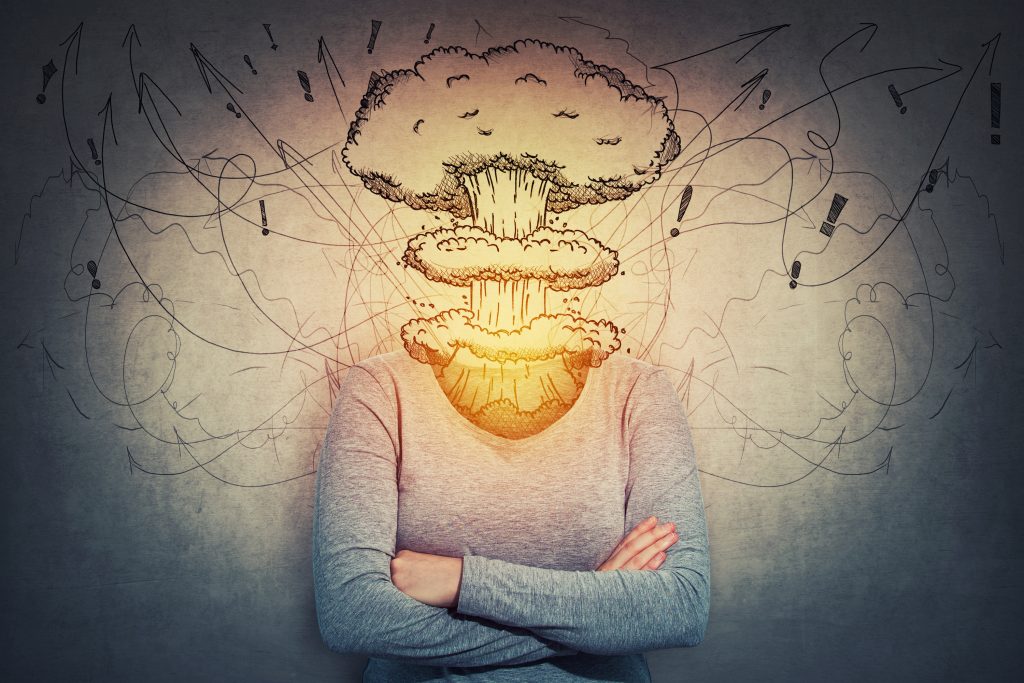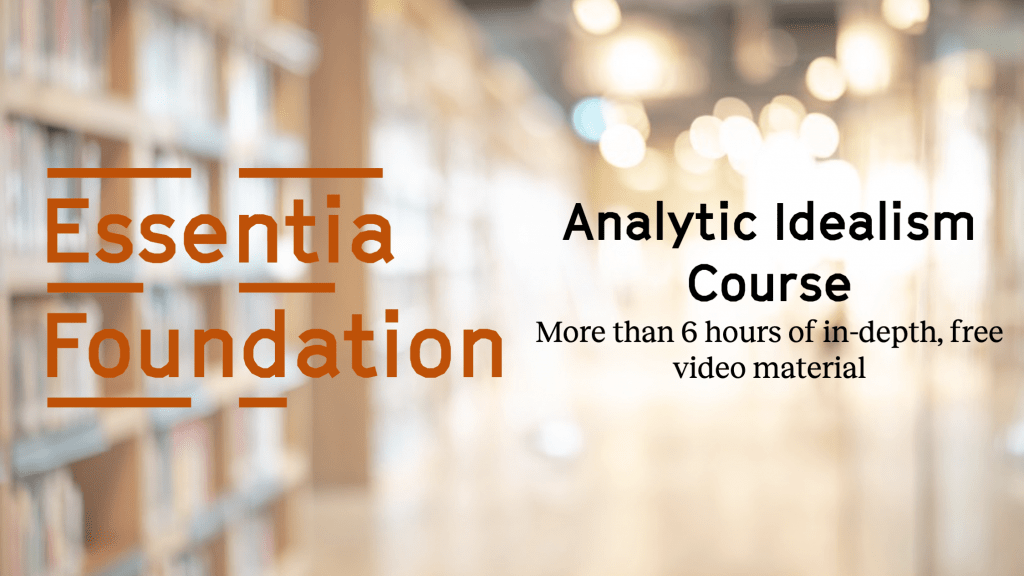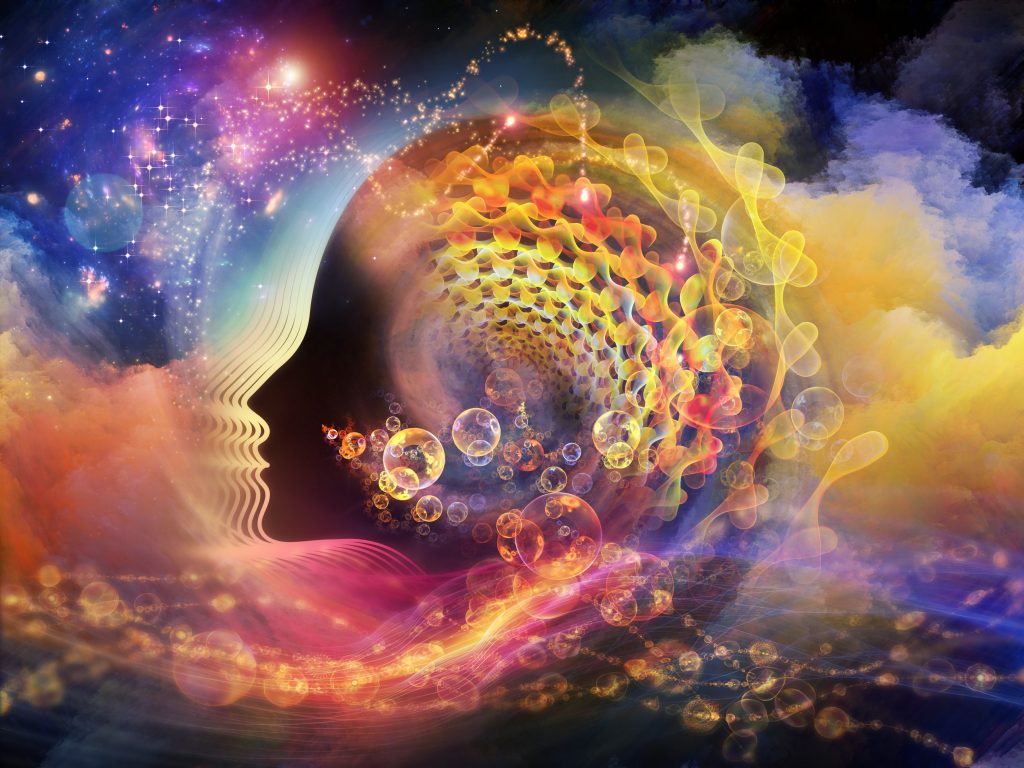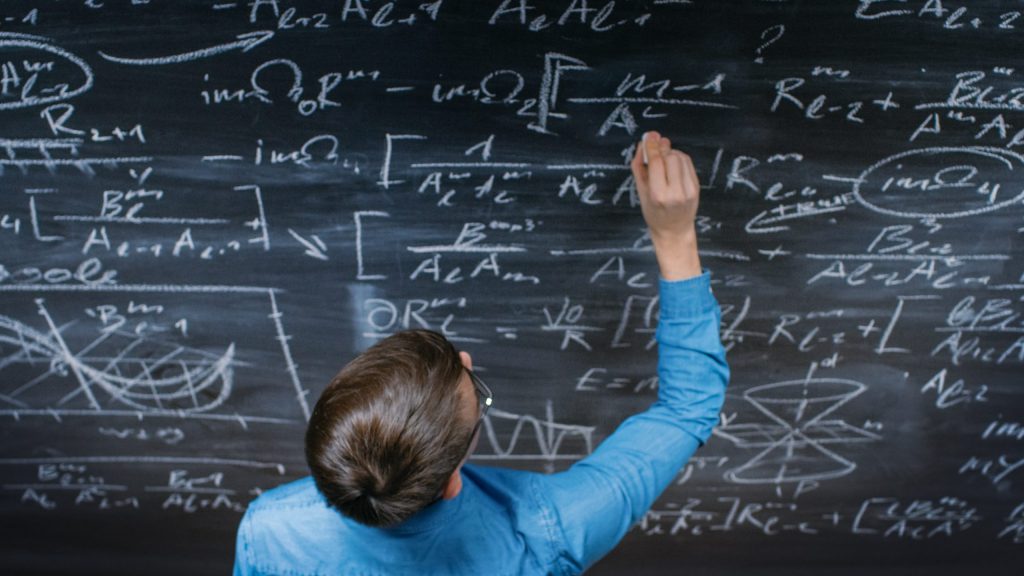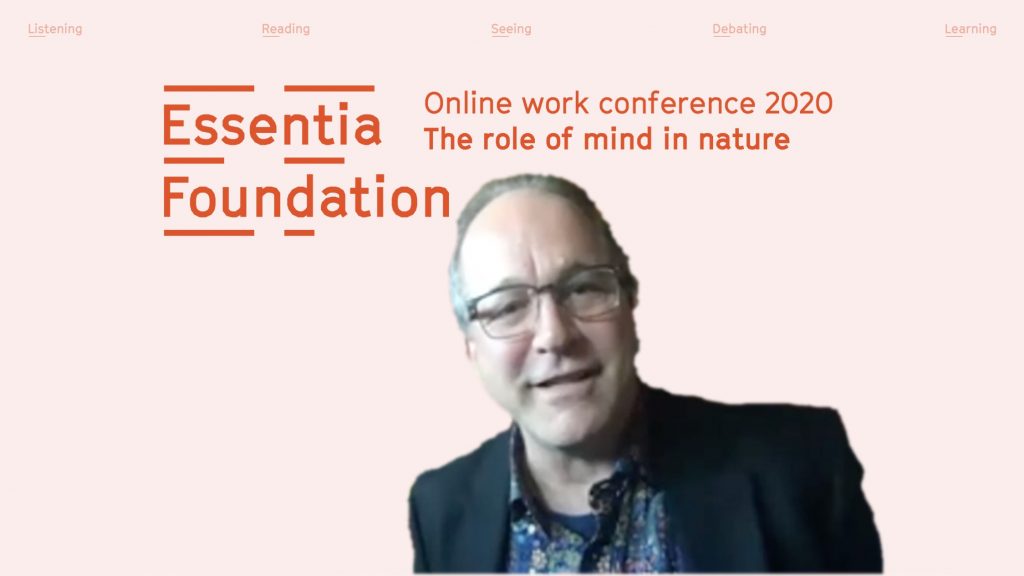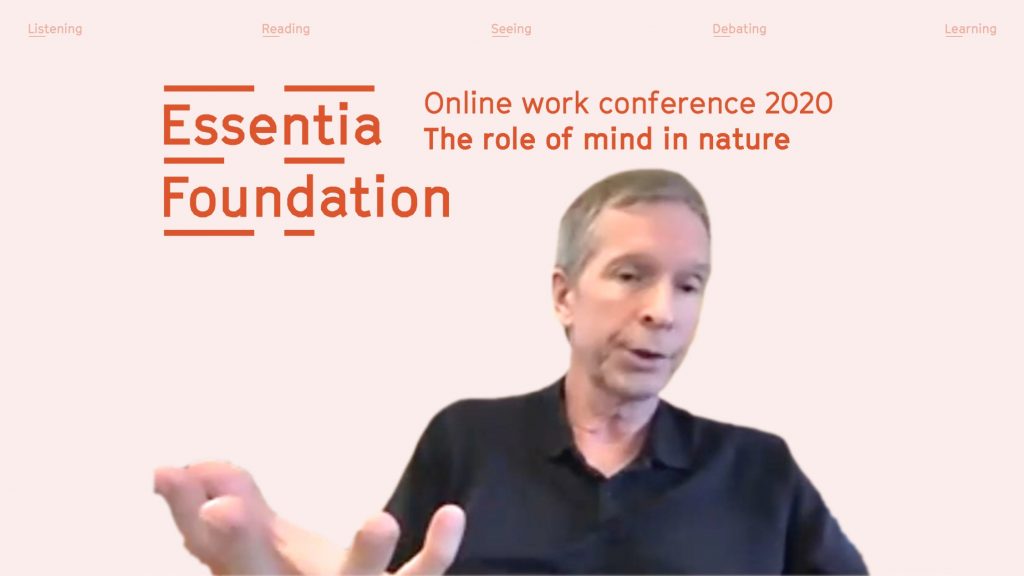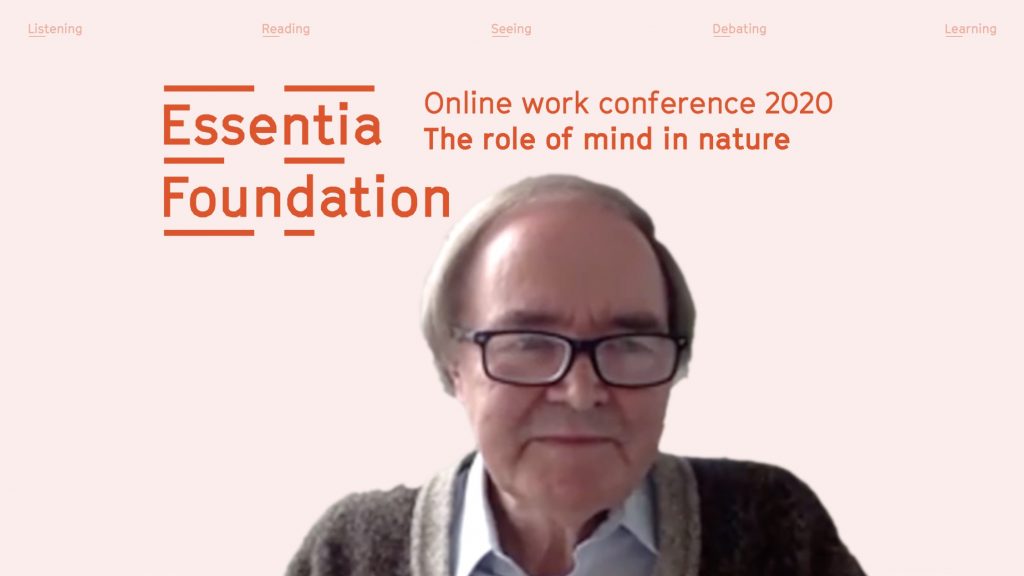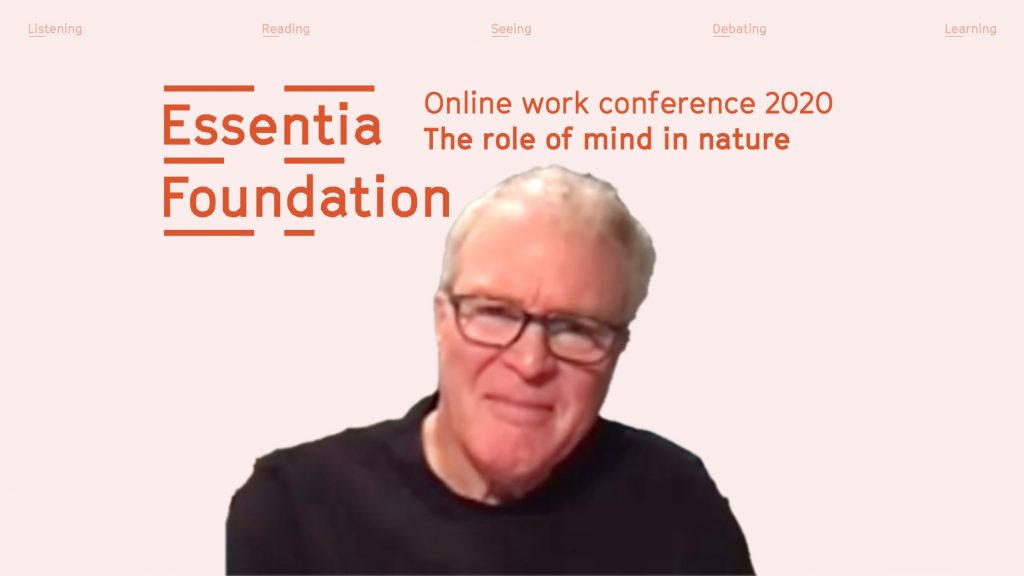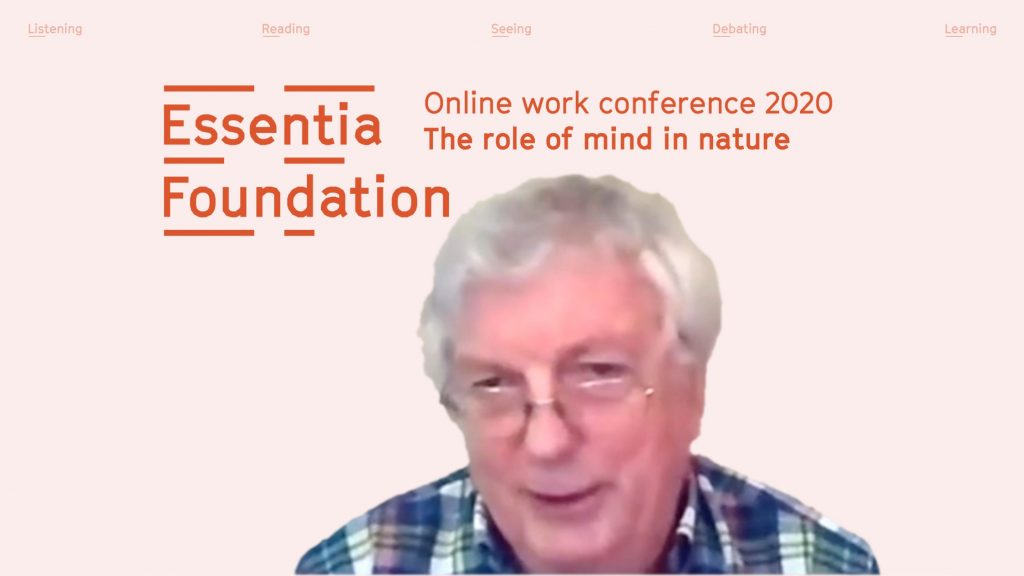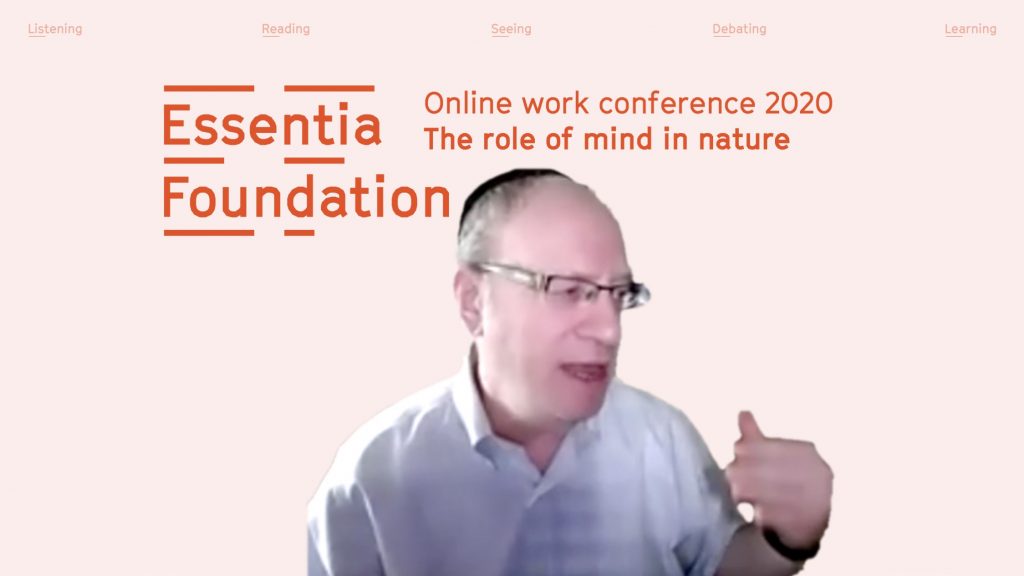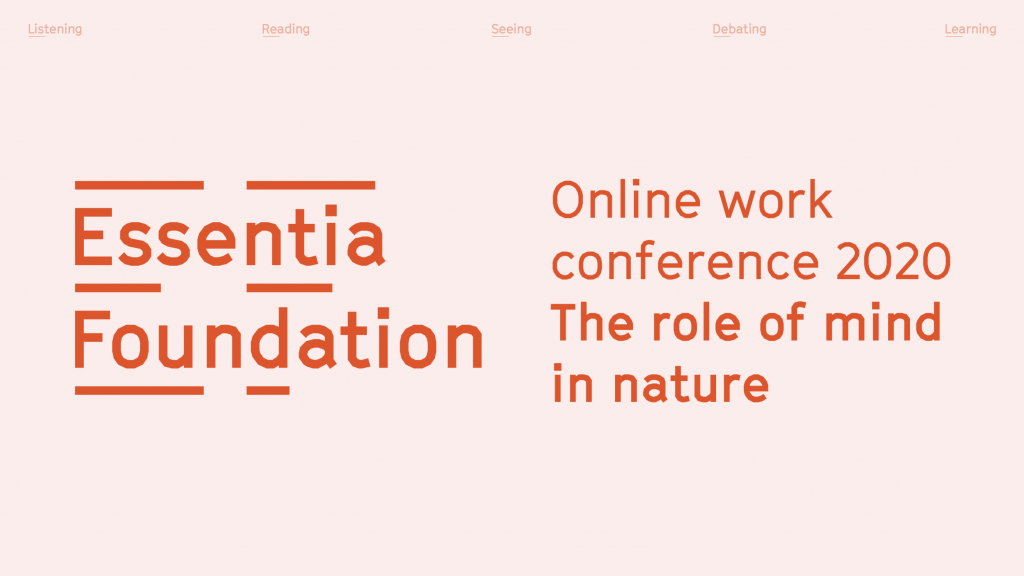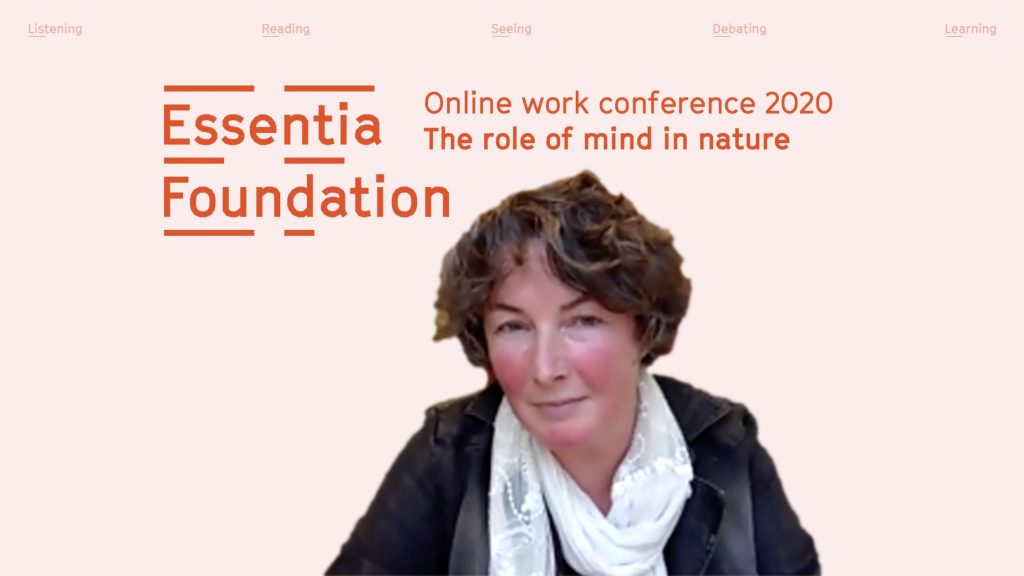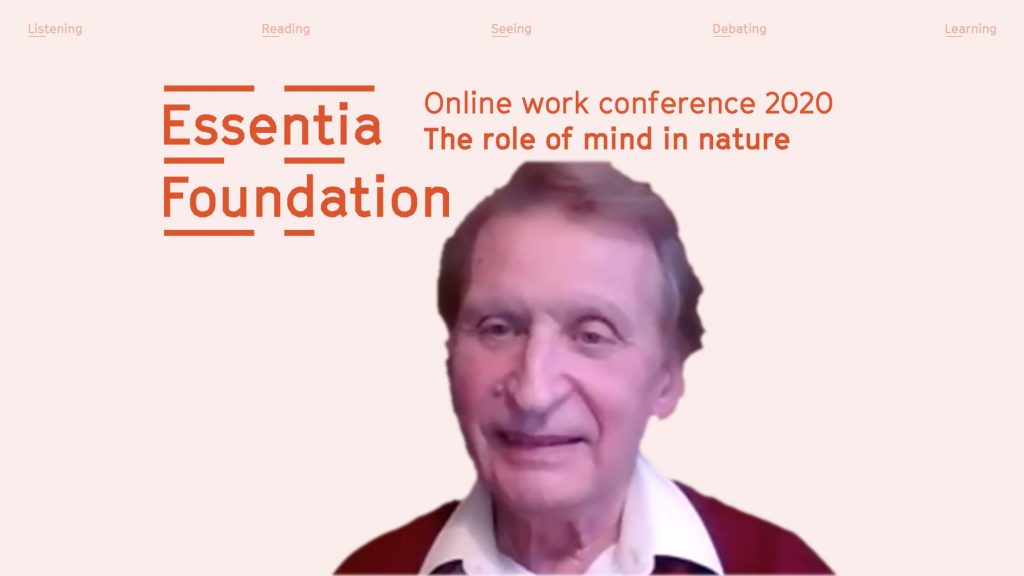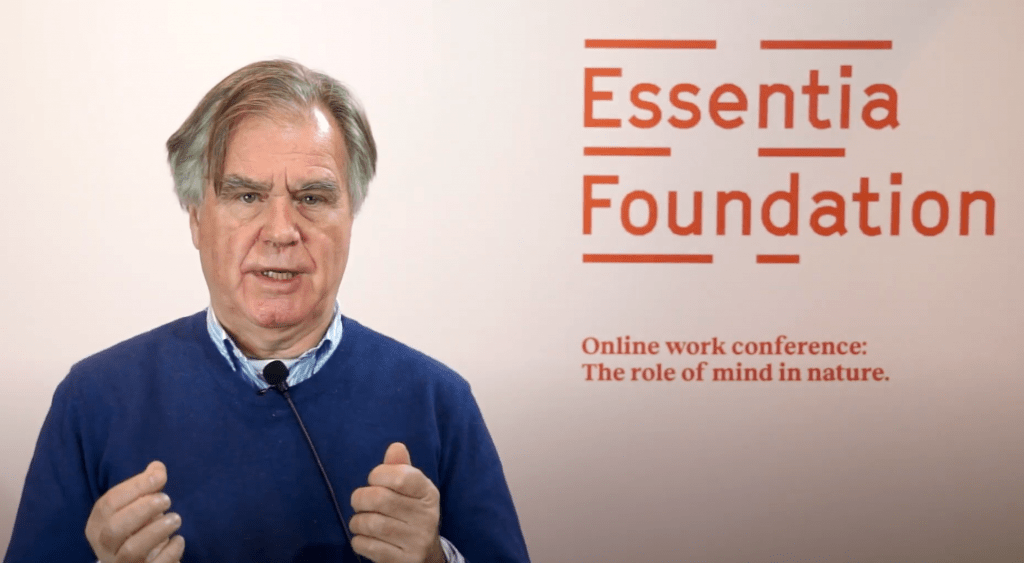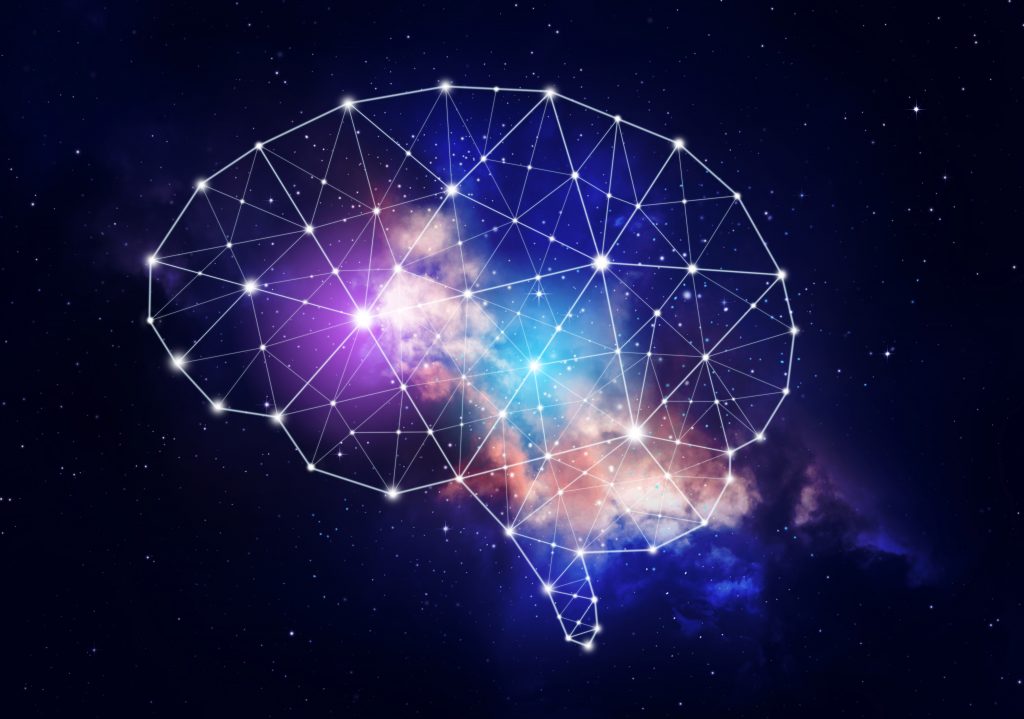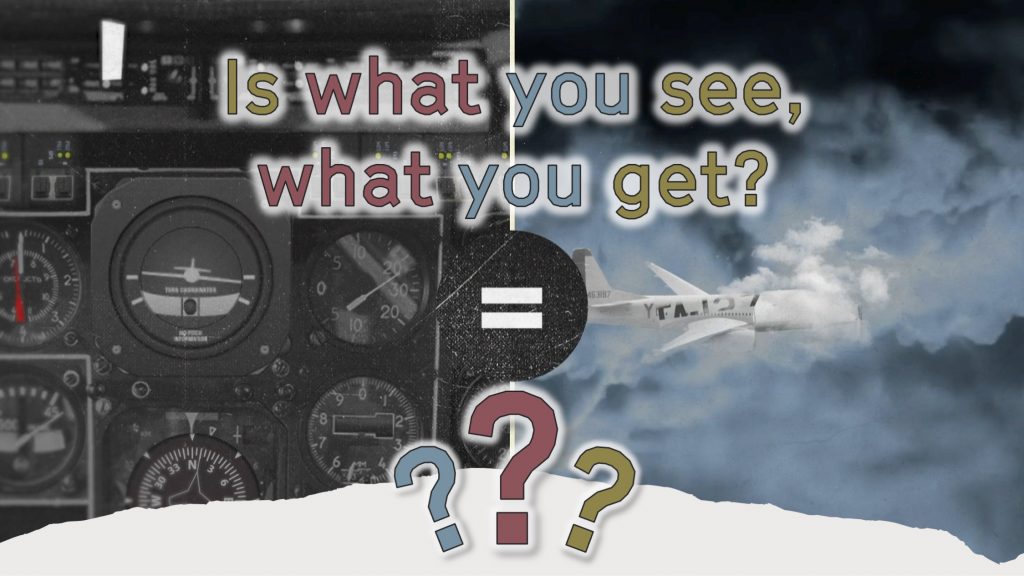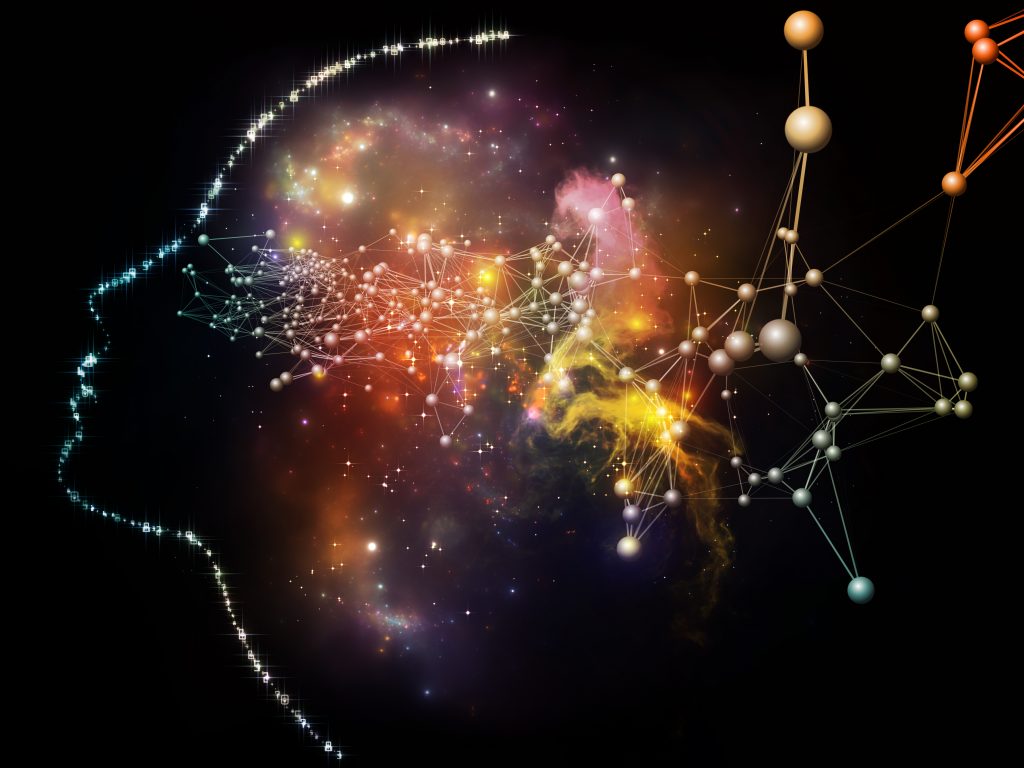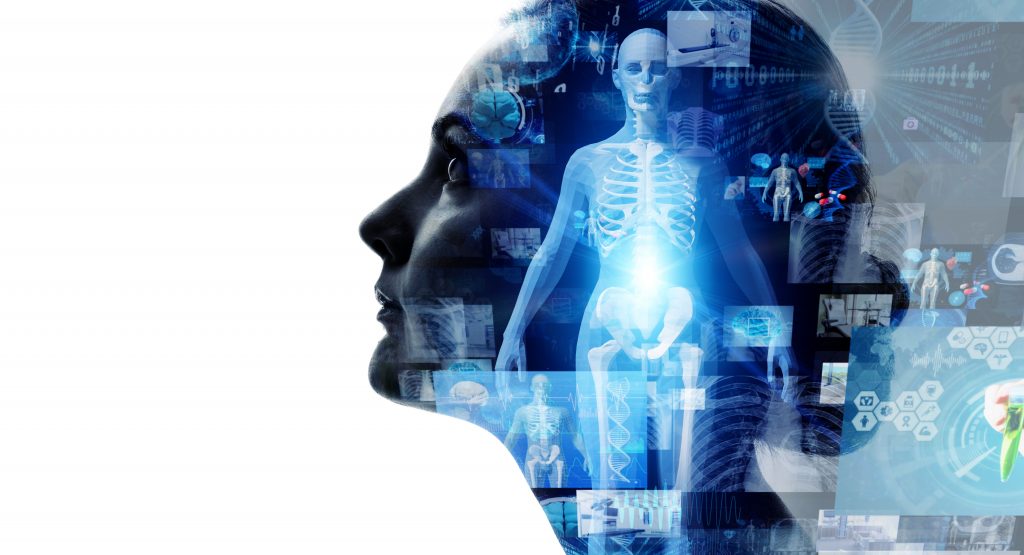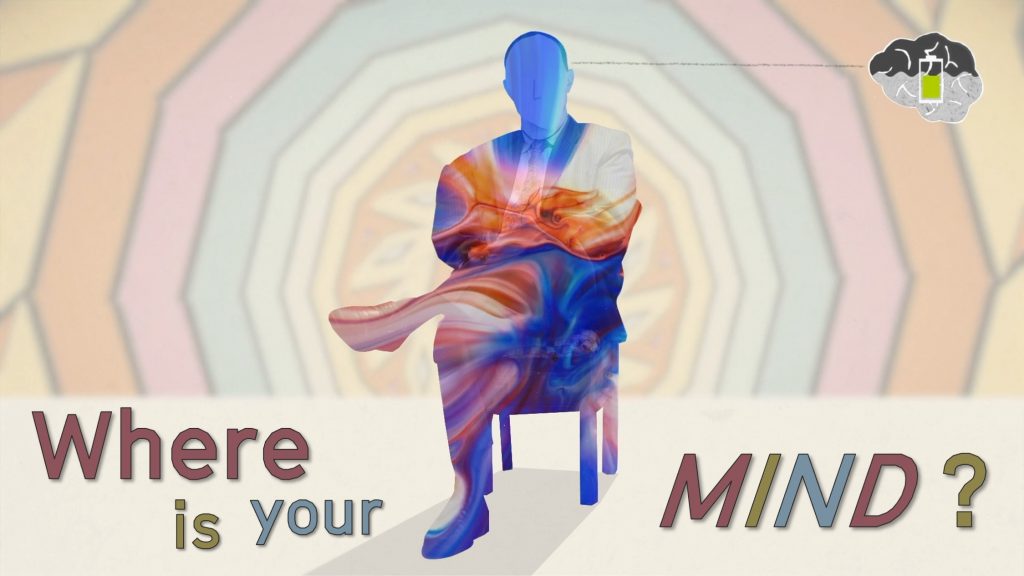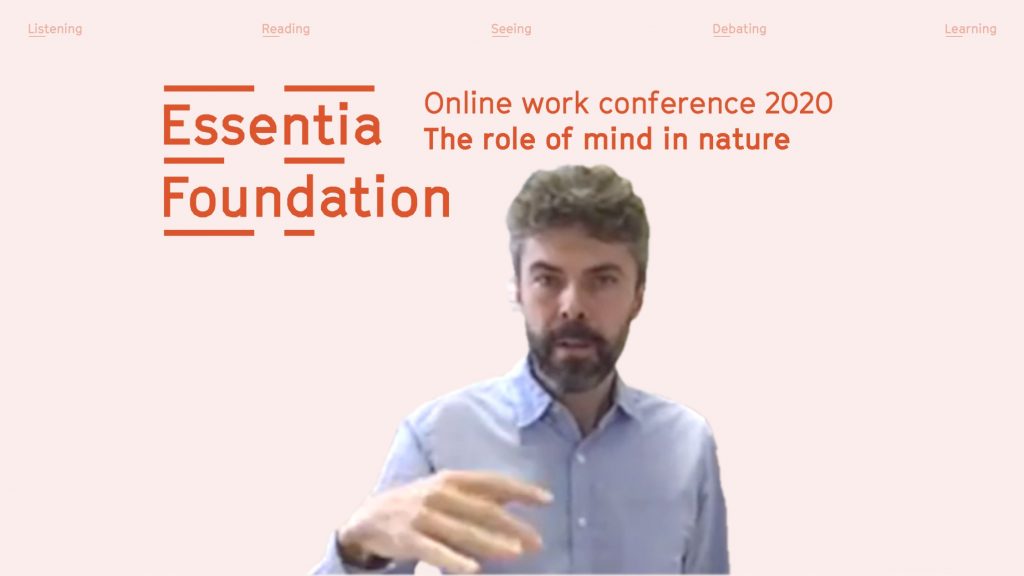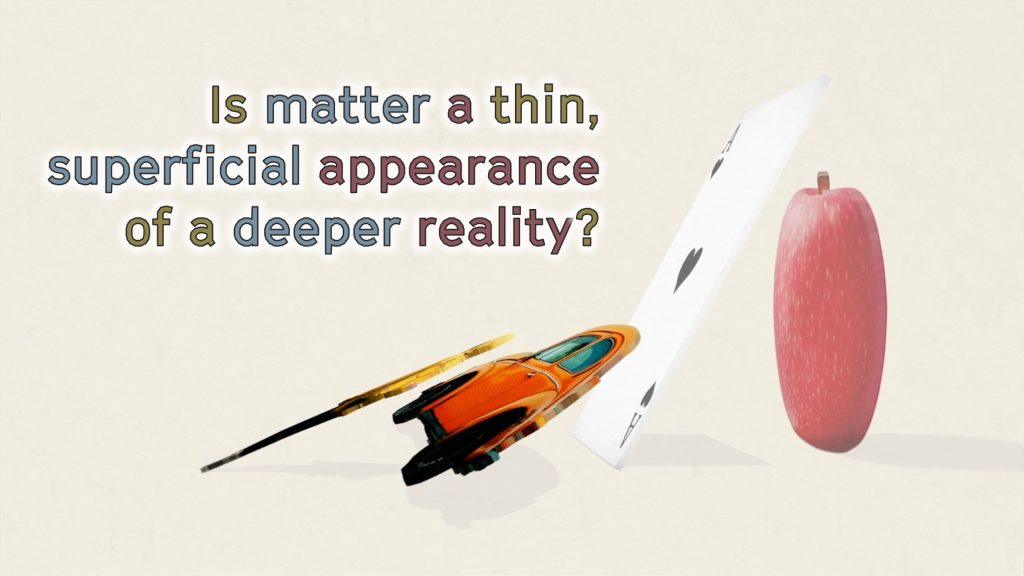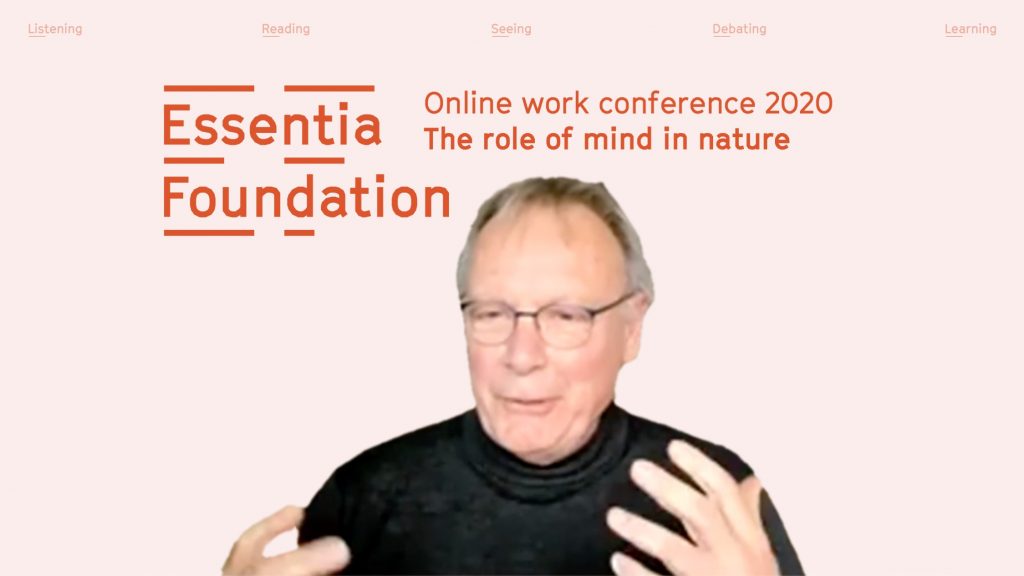Recently published
|
Hans Busstra and Dr. Lídia del Rio talk to Dr. Matthew Leifer, Assistant Professor of Physics at Chapman University, about the epistemic interpretation of quantum mechanics. Classically, when physicists call themselves ‘realists’ they mean that we should assume that a physical, observer-independent universe is fundamental. But if this counts as realism, anti-realism is perhaps the more respectable position. Leifer points, for instance, to ‘Bell-Wigner mashups’: thought-experiments that entangle different observers to arrive at disturbing consequences; for instance, that there is no ‘absoluteness of facts’ for all observers, in a classical sense.
|
Dr. Colborn argues that, perhaps surprisingly, the worldview of the technology elite is shifting from fundamentalist materialism to a form of apocalypticism that echoes fundamentalist Christianity. This shift in belief is, according to Colborn, not based on an honest search for truth, but instead an attempt to legitimize agendas of power and control. As such, it risks dehumanizing humanity. The analysis in this essay is particularly important in today’s world of emerging agentic AI, wherein—insofar as we believe that AI mechanisms are conscious—we may end up believing that conscious beings are mere mechanisms. Dr. Colborn has just published a book with our own imprint, Essentia Books: What Lies Beyond.
All published items
|
Hans Busstra and Dr. Lídia del Rio talk to Dr. Matthew Leifer, Assistant Professor of Physics at Chapman University, about the epistemic interpretation of quantum mechanics. Classically, when physicists call themselves ‘realists’ they mean that we should assume that a physical, observer-independent universe is fundamental. But if this counts as realism, anti-realism is perhaps the more respectable position. Leifer points, for instance, to ‘Bell-Wigner mashups’: thought-experiments that entangle different observers to arrive at disturbing consequences; for instance, that there is no ‘absoluteness of facts’ for all observers, in a classical sense.
|
Dr. Colborn argues that, perhaps surprisingly, the worldview of the technology elite is shifting from fundamentalist materialism to a form of apocalypticism that echoes fundamentalist Christianity. This shift in belief is, according to Colborn, not based on an honest search for truth, but instead an attempt to legitimize agendas of power and control. As such, it risks dehumanizing humanity. The analysis in this essay is particularly important in today’s world of emerging agentic AI, wherein—insofar as we believe that AI mechanisms are conscious—we may end up believing that conscious beings are mere mechanisms. Dr. Colborn has just published a book with our own imprint, Essentia Books: What Lies Beyond.
|
In this interview, Dr. Philip Cozzolino, an associate professor of psychiatry and neurobehavioral sciences at the University of Virginia, talks with Natalia Vorontsova about his research results and methods for dealing with the fear of death. He also delves into intriguing reincarnation-like cases and past-life memories in children, as well as the metaphysical implications of his research.
|
In this very personal, poignant essay, Moreira argues that our most primal fear isn’t death, but solitude. As he says, “A child does not cry because she understands mortality. She cries because no one comes.” Moreira is redefining Existentialism for the 21st century. He mines and distills the core questions of meaning in a world that is beginning to intuit the shallowness of its ways.
|
Dr. David Schmid, Dr. Lídia Del Rio and Hans Busstra explore a metaphysical shift that’s happening in the foundations of physics: the wave function is no longer regarded as something real, but just as a description of what we know about the world. In philosophical terms: the wave function is not ontic, but epistemic. And in more popular terms: the multiverse is science fiction, resting on a too-literal interpretation of a piece of mathematics called the Schrödinger equation.
|
The jealous and alienating gnostic Demiurge, a certain mode of attending to the world described by Heidegger, and Iain McGilchrist’s characterisation of the brain’s left-hemisphere, all share remarkable similarities, according to Arthur Haswell. He suggests thus that the Demiurge may be a symbol of something that lives in us, modulating how we relate to others and the world at large. As such, the holistic perspective of the right hemisphere may be a corrective that brings us closer to the transcendent and truly divine.
|
What if phenomenal consciousness, signs, communication, and interpretation are fundamental aspects of all living systems, whether or not we can detect brains? This is the departure point of biosemiotics, an interdisciplinary field that combines biology, semiotics (the study of signs and meaning), and philosophy. Environmental philosopher Dr. Yogi Hendlin is Editor-in-Chief of the Journal of Biosemiotics and, in this conversation, Hans Busstra talks to him about the widespread meaning-making in nature. All living beings, from bacteria to plants to mammals, have an ‘Umwelt,’ a dashboard representation of the world. In a sense, biosemiotics states that our mind is in the world: we are embodied beings, and with every inhalation 50.000 microbes enter our body, and they communicate to us by influencing our microbiome.
|
Professor Zaghi introduces Relational Quantum Dynamics (RQD), a further development of Carlo Rovelli’s Relational Quantum Mechanics (RQM) with a solid mathematical and metaphysical basis. RQD circumvents the infinite regress inherent to RQM (everything being constituted of relations between meta-relations, and these consisting of relations between meta-meta-relations, etc., ad infinitum) by proposing that, although all physical entities are indeed relational, the relations—and even spacetime itself—arise within an underlying field awareness.
|
Hans Busstra talks to Dr. Bernardo Kastrup about the groundbreaking work of Professor Michael Levin and Dr. Christof Koch. Levin’s research into bio-electric fields reveals that cellular networks use electrical signals not just for immediate physiological tasks, but to coordinate complex patterning and memory across tissues—suggesting a kind of distributed intelligence in living systems. Christof Koch, meanwhile, champions Integrated Information Theory (IIT), which proposes that consciousness is an intrinsic property of certain physical systems with high levels of causal interconnectivity. Both lines of inquiry challenge the traditional reductionist view that mind is merely an emergent byproduct of neural activity. Instead, they point to a more holistic, perhaps even fundamental, role for information and consciousness in nature. Though Levin and Koch make no explicit metaphysical claims in their work, their empirical findings and views are very much in line with analytic idealism.
|
“If experience is all I have, I may be alone—but the essential emotional necessity of the other demands that I live as if I am not,” argues Dr. Moreira in this heart-felt essay. He embodies a long-overdue reemergence of existentialist thought in the 21st century and, as an active and successful AI scientist, in 21st century terms. We think both the worlds of philosophy and popular culture will be hearing a lot more from Dr. Moreira in the coming years…
|
Dr. Edward Kelly, a professor of experimental psychology, talks about his many years of study of a variety of psi and anomalous phenomena. In this interview with Natalia Vorontsova, he candidly shares how phenomenological evidence has led him to re-examine his metaphysical views on the nature of reality. Are our minds confined to our brains? Do we survive our biological death? Is mind primary to matter? Why should we take anomalous phenomena seriously? These are some of the topics covered in this conversation.
|
Fredric Nord argues that knowing reality through language is fundamentally and inescapably a misunderstanding of reality. We misunderstand what language actually does and, thereby, misunderstand what life is. The key to understanding life is, he argues, a reframing of language and representation. This should end the paradigm of materialism and facilitate transcendence as a priori.
|
Physicist Dr. Lídia Del Rio, Essentia Foundation’s Research Fellow for Quantum Information Theory at the University of Zürich, explains to Hans Busstra one of the strangest quantum conundra confronting the foundations of physics: the Frauchiger-Renner (FR) thought experiment.
|
Dr. Dolezal invites us to consider the uncanny similarities between the ancient stories of creation, across many religious and philosophical traditions, and how the human imagination, when prompted or triggered by words, creates entire universes.
|
Hans Busstra interviews theoretical physicist and complexity scientist James Glattfelder on his new book: ‘The Sapient Cosmos: What a modern-day synthesis of science and philosophy teaches us about the emergence of information, consciousness, and meaning,’ published by Essentia Foundation. Glattfelder makes a plea for ‘syncretic idealism’: a worldview that synthesises ancient idealist texts and mystical experiences with physics, complexity science and analytic idealism.
|
With humanity at a crossroads, we are invited to ponder a novel vision of existence that inspires wonder and ethical accountability. A radical and groundbreaking perspective emerges, challenging conventional beliefs by placing consciousness at the foundation of reality. In this essay, Dr. Glattfelder delves into some ideas meticulously researched and carefully presented in his latest book, ‘The Sapient Cosmos: What a Modern-Day Synthesis of Science and Philosophy Teaches Us About the Emergence of Information, Consciousness, and Meaning,’ published by Essentia Books.
|
This interview explores the fundamental premises of Analytic Idealism. Dr. Bernardo Kastrup, known for developing this philosophical system, discusses the nature of consciousness, life, God, and AI with Natalia Vorontsova. All questions are based on input from our audience.
|
Much of the discord in today’s philosophical debate on the nature of mind and reality arises not from argument, but from a peculiar mindset that prevents some from explicitly cognizing their own consciousness, argues Arthur Haswell. This mindset relates to Cotard’s syndrome (the rare delusion of being already dead) and necrophilia (a love for all that is mechanical and inanimate, as opposed to alive and organic). Haswell suggests that it may be as futile to argue against this mindset as it is useless to explain color to someone born blind.
|
Hans Busstra, together with Essentia Foundation’s research fellow, physicist Lidia Del Rio, talks to Prof. Sandu Popescu about quantum non-locality. Popescu is Professor of Physics at the University of Bristol and a Fellow of the Royal Society. He did pioneering work in what became the field of quantum information and has won both the John Stuart Bell Prize and the Dirac Medal.
|
Neuroscientist Dr. Christof Koch’s latest book has a title quoting the second act of the famous opera, Tristan und Isolde: “Then I Am Myself The World.” In this book Koch describes how he, during a psychedelic experience on 5-MeO-DMT, felt that he was one with the universe, which echoes the epic tale by Wagner. Essentia Foundation’s Hans Busstra interviewed Koch on his book, his psychedelic trip and, of course, Integrated Information Theory (IIT), the scientific theory of consciousness Christof Koch and Gulio Tononi are famous for.
|
Philosopher Ola Nilsson is back with another one of his mind-boggling, and yet irresistibly compelling, thought experiments. This time he shows, with surprisingly few words, how one universal mind can appear to be many, such as you and I, simply because of time and will. Buckle up for this amazing ride!
|
Arthur Haswell offers a devastating and delightfully well-argued deconstruction of the absurdities inherent in physicalism and its sibling, illusionism.
|
CPU inventor and physicist Federico Faggin, together with Prof. Giacomo Mauro D’Ariano, proposes that consciousness is not an emergent property of the brain, but a fundamental aspect of reality itself: quantum fields are conscious and have free will. In this theory, our physical body is a quantum-classical ‘machine,’ operated by free will decisions of quantum fields. Faggin calls the theory ‘Quantum Information Panpsychism’ (QIP) and claims that it can give us testable predictions in the near future. If the theory is correct, it not only will be the most accurate theory of consciousness, it will also solve mysteries around the interpretation of quantum mechanics.
|
Not only does John von Neumann’s seminal work in the mathematical modelling of quantum mechanics imply the irreducible nature of mind, the resulting idealist understanding of nature could lead to profound, and positive, changes in how we relate to one another and the world at large in the context of our economic system, writes Dr. Cocks.
|
In this wide-ranging interview with Natalia Vorontsova, Professor Marjorie Woollacott draws remarkable parallels between 9th-10th century Kashmiri Shaivism and modern idealism, pointing to the fundamental and irreducible nature of consciousness. Moreover, her study of near-death experiences empirically supports this very hypothesis of the existence of a fundamental consciousness without neurons and beyond our five senses. This is an open conversation about life, death, and who we really are as ‘points of consciousness.’
|
This is an involved, fairly technical, but deeply rewarding and potentially groundbreaking essay. It posits that the geometry of real (i.e., noumenal) spacetime may be exactly what our mathematical models tell us it is: a complex projective space in which there is no separation between objects and subject. If so, then the implication is that the foundation of the universe is a form of universal consciousness, that the ordinary spacetime we experience is but a perspectival model, and that the very structure of the universe is defined by mental archetypes, or universal ‘ideas.’ Right or wrong, this is one of the most daring but also most explicit and well-articulated ideas underpinning idealism with physical theory, and it surely deserves multiple careful reads.
|
Can morphic resonance help explain the problem of missing heritability and why memories have not been found in the brain? And are ‘morphic fields’ the same thing as Michael Levin’s bioelectric ‘cognitive glue’? In this interview, Dr. Rupert Sheldrake discusses with Natalia Vorontsova his theory of morphic fields and its implications for our understanding of the mysteries of nature. Dr. Sheldrake is often called a most original thinker, perhaps because throughout his career he has managed to combine open-mindedness with critical scientific thinking.
|
‘Talking’ to cells without influencing genes or molecules: it can be done by influencing bioelectric fields. By manipulating the bioelectric fields in organisms like planaria and tadpoles, Prof. Michael Levin has shown how eyes and other organs can grow in unconventional locations, how planaria can be ‘told’ to grow two heads, and perhaps most importantly: how cancer cells can be ‘told’ to stop growing in frogs. These promising experiments might lead to groundbreaking new therapeutics. The importance of the pioneering empirical work of Prof. Michael Levin at Tufts University, on the intersection of bioelectricity, regeneration, and cognition, can hardly be overstated. Philosophically, his work has deep implications for how we think about evolution, cognition and consciousness.
|
Inside you there is a largely unexplored universe of 100 trillion bacteria. In this documentary, we embark on a journey into this microcosmos to discover the beauty and complexity of life’s origin on the nanoscale. In 2023 Essentia Foundation’s Hans Busstra created a documentary about bacteria that depicts our common ancestor in a never-before-seen manner. With the world’s leading artists in microscopy, like micro-photographer Wim van Egmond, SEM microscopist Jan Dijksterhuis, and a molecular cell biologist and his team at Digizyme Inc., he embarked on a unique mission: to capture the first moving images of a single bacterium at the molecular scale.
|
Documentary filmmaker Hans Busstra shares with us, with the aid of amazing and scientifically accurate animations of the molecular world, the background story of his journey from imaging the hardcore science of molecular biology to the fundamental insights of metaphysics.
|
Astronomer Harriet Witt argues that it is our scientifically outdated language that leads us into thinking of the sky as a remote reality ‘up there,’ instead of a felt experience ‘in here.’ She argues for an update to the words and concepts we use daily, so the holistic reality of our existence, and of our intimate relationship with all of nature, can again be felt.
|
In our quest for meaning and self-understanding, language remains a valuable tool, but we must recognize its limitations. By balancing our conceptual and perceptual selves, we can live more fully, appreciating life beyond the distortions of thoughts and words. In doing so, we reconnect with the dimension of existence we have long suspected: one that’s whole and prior to the concepts of time and location, argues Steven Pashko.
|
Arthur Haswell invites us to pay attention to and, once again, like our ancestors once did, hear the rhyme and rhythm with which the world worlds. Reality, he maintains, unfolds according to a form of music that, in ages past, humans were matter-of-factly sensitive to. Granted that, if we could sense it again, we could find the codas of the modern world to be excessively depressing, frightening, and bleak. For this reason, perhaps subconsciously, we may not wish to hear them. But, he suspects, we could also find in them much beauty and harmony that enrich our lives. This is a profoundly edifying essay.
|
Prof. Dr. Caslav Brukner, Prof. Dr. Renato Renner and Dr. Eric Cavalcanti just won the Paul Ehrenfest Best Paper Award for Quantum Foundations. Their different no-go theorems make us reconsider the fundamental nature of reality. Bell’s theorem in quantum mechanics already confronted us with the fact that locality and ‘physical realism,’ in the sense that particles have predetermined physical properties prior to measurement, cannot both be true. But in certain variations of the Wigner’s Friend thought experiment an additional metaphysical assumption is now also put in question: the absoluteness of facts. In different words: can we safely assume that a measurement outcome for one observer is a measurement for all observers?
|
The acquiescence of physicalism within the broader cultural milieu allows for the smuggling of assumptions into scientific inquiry, which are then, in a circular manner, considered to be validated by science itself. This disastrous interplay perpetuates a continued myopia in distinguishing between the ontological claims of physicalism and the assumptions of scientific inquiry, argues Adebambo Adedire.
|
Natalia Vorontsova explores the mystery of death and its relationship with non-ordinary states of consciousness, such as tukdam and NDEs, including those reported by young children.
|
Can we turn off our awareness (i.e., conscious metacognition) in meditation and then stay in that state for days without water, food, or going to the bathroom? A recent study by Dr. Ruben Laukkonen on the cessation of awareness in advanced meditation practitioners confirms this. In this interview, Natalia Vorontsova talks with Ruben about his research and its implications for our understanding of the nature of reality. This is a deep, yet light-hearted, conversation about mind, consciousness, time, AI, and the future of science, especially since Ruben is also an experienced meditation practitioner.
|
As any essay on free will, the present one is bound to be polemic. We believe the debate on free will is important and the present essay meaningfully contributes to it. Nonetheless, we feel bound to clarify our editorial position here: as a foundation dedicated to promoting objective formulations of metaphysical idealism, we endorse the existence of a reality beyond the seemingly personal self, which behaves in a predictable, lawful manner. An implication of this view is the impossibility of libertarian free will: we do make our own choices, but our choices are determined by that which we, and the universe around us, are. Yet we believe that there is a very important sense in which free will does exist: under idealism, the universe is constituted by the excitations of one, universal field of subjectivity. The impetus towards self-excitation that characterizes this field of subjectivity is free will, for it depends on nothing else. The entire dance of universal unfolding is a dance of universal free will. This is the sense in which, for example, Federico Faggin and our own Bernardo Kastrup defend the fundamental existence of free will in nature. This understanding of free will is entirely compatible with the understanding that our choices are determined but that which we truly are. Finally, objective formulations of metaphysical idealism deny, just as the author of the present essay does, the fundamental existence of a personal self. Instead, the latter is regarded as a transient, reducible configuration of the underlying field of subjectivity. As such, there cannot be such a thing as personal, egoic free will, for the personal self itself isn’t a fundamental construct.
|
Could it be a coincidence that two founding fathers of modern day computing, independently from each other, are both coming with theories of consciousness that are idealist in nature? Or does a deep understanding of what computation is—and what it is not—inevitably lead away from physicalist ideas on consciousness?
|
Essentia Foundation’s Hans Busstra visited Vienna to attend a conference on the foundations of quantum mechanics, and interview physicists on the metaphysical implications of quantum mechanics. In this essay, he argues that what is called ‘experimental metaphysics’ might be at the heart of future progress in physics, and that philosophy and physics are moving closer together.
|
Once an enthusiastic Idealist in the tradition of Arthur Schopenhauer, the later Friedrich Nietzsche broke from Schopenhauer’s philosophy with a vengeance. Adebambo Adedire argues that this shift had more to do with Nietzsche’s later rejection of the metaphysical project itself, than with the particulars of Schopenhauer’s Idealism. For Nietzsche was to eventually consider the goal of understanding the nature of reality both impossible and inherently demeaning to the human condition. Yet, we ask, can a thinking human being ever stop wondering about what reality, and the self within it, ultimately are? Even if we, as primates, cannot arrive at the ultimate metaphysical answers, aren’t we correct in aspiring to overcome our own metaphysical mistakes and delusions?
|
Mainstream science still tends to dismiss extrasensory phenomena (ESP). However, these so-called ‘anomalous phenomena’ are key to understanding the nature of reality, claims Dr. Julia Mossbridge: “We are beginning to change the way we think as science enters the ‘maybe we got it all wrong’ phase.” In this interview, Natalia Vorontsova talks to Julia about her research in fields ranging from neuroscience and psychology to physiology and physics, tackling questions of free will, the nature of time, the mind-body problem, and key metaphysical implications.
|
Jonathan Dinsmore proposes applying the same cautious inferential reasoning used in the scientific method to developing metaphysical beliefs based on first-person experience. This may open the door to a form of spirituality that, although still grounded in personal insight and, therefore, not objective in a strict scientific sense, is nonetheless based on the form of disciplined thinking that has made science so successful.
|
Hans Busstra sat down with John Vervaeke to discuss the meaning crisis, the Zombie myth we’re in, and how it all relates to what Vervaeke calls “rabbit hole metaphysics”: the conspiratorial, outlandish and often absurd ideas people start believing in, in search of meaning. A characteristic of rabbit hole types of metaphysics is that they have a ‘thick’ description of reality: a constellation of ungrounded assumptions build up to a ‘once you get this, there’s no way back’ narrative, which repeats itself in online echo-chambers.
|
The structures of our language, which function as directly accessible carriers of meaning, reveal remarkable parallels to physical systems—particularly quantum systems—which can therefore be regarded as carriers of meaning as well. This profound interconnectedness of language, thought and reality challenge our conventional understanding of what is going on, argues Dr. Sachs. His insightful observations reveal surprising ways to make sense of the paradoxes of quantum mechanics along linguistic—and therefore thought-like—lines. Though involved, we highly recommend that you give this essay a careful read, as it is surely worth the effort.
|
Two giants of science and technology—Nobel Laureate in physics, Sir Roger Penrose, and inventor of the microprocessor, Federico Faggin—meet to discuss their ideas on the relationship between Quantum Physics and consciousness, with the special participation of our own Bernardo Kastrup. While always respectful and congenial, the participants don’t shy away from disagreements. Their starting difference regards Quantum Theory itself: while Federico Faggin and Bernardo Kastrup allow its implications to inform their views, Sir Roger Penrose believes the theory itself to be at least incomplete and require further development. The discussion helps pin down and make explicit the fine points of the three gentlemen’s respective ideas regarding consciousness.
|
If all of our scientific theories are but convenient fictions—in the sense that nature behaves as if these fictions were true—but say nothing about the actual structure of reality, are we free to decide which way to think about this structure suits us best? Rob Hamilton addresses this and related questions in this short essay.
|
What if your child could feel their friend’s headache in their own head? Would you be able to explain where the boundaries of self begin and end? Or how would you react if your child experienced ‘loving darkness’ during an NDE? Natalia Vorontsova explored these and other fundamental questions about the nature of reality, consciousness, and science with a researcher of children’s transpersonal and extrasensory experiences, Dr. Donna Thomas.
|
Dr. Walden introduces Ecstatic Naturalism, a metaphysics similar to Idealism but less committed to mind as we know it. While proposing that the archetypes—an eminently mental concept—serve as conduits to a fundamental layer of reality that is both transcendent and immanent in the so-called physical world and the human mind, it remains open to the possibility that such a layer may transcend our very understanding of what mind is.
|
Does research on extra-ocular vision bring us closer to answering the question: is our consciousness produced by our brain? Natalia Vorontsova discusses the mind-brain relationship, the nature of reality, and the future of science with neuroscientist, physicist, and near-death experiencer Dr. Alex Gomez Marin.
|
Could the mythological figure of Dionysus, in ancient Greece, represent the non-dual ground of reality, instead of the god of chaos portraid by Nietzsche? Michael Asher argues that Dionysus represents eternal, infinite conscious life as the reality that underlies all nature, in which case the inception of non-dual idealism in the West arches back to the very origins of Western civilization.
|
Bernardo Kastrup argues why the idea of conscious AI, though we cannot refute it categorically, is silly. This has a lot to do with the fact that most computer scientists are power users of computers but they’ve never built a computer themselves. If they had, they would be familiar with the nuts and bolts, and they would understand that the idea of microscopic transistors becoming conscious is not that different than proposing that a sufficiently complex sewage system—consisting of water pipes and valves—would become conscious.
|
When we dream of a triangle, we experience a geometric shape with the measurable characteristics—angles and lengths—of a triangle. But the neural correlates of this dream in the physical brain are not triangular. So if all that exists is physicality, where in the physical world is the dream triangle? In this essay, Arthur Haswell not only elaborates rigorously on this thought experiment, but also anticipates and addresses various possible objections. The conclusion, he claims, is that the experiment demonstrates that there is more to reality than what we colloquially call ‘the physical.’
|
Natalia Vorontsova talks to Dr Tom Cheetham about active imagination, consciousness and life-changing experiences in the context of the philosophy and theology of Henry Corbin, Ibn Arabi and Surhawardi. Tom offers a unique perspective on post-materialist science, having come full circle from scientific materialism through Jungian psychology and Sufi mysticism to the realization that science is not an obstacle to accessing the transcendent. It’s a thought-provoking conversation about the nature of reality and what it means to be human.
|
Neuroscience has conceded that the same cognitive structures that generate dreams also generate our experience of waking reality. It’s just that, unlike in the former case, in the latter the ‘hallucination’ is modulated by external factors. Be that as it may, the implication is still that all we colloquially refer to as ‘matter’ is a cognitive construct of our minds. However, as Aditya Prasad highlights, despite such acknowledgment most neuroscientists still surreptitiously seem to assume that the chunk of matter we call a ‘brain’ is special: unlike all other matter, which is ‘hallucinated,’ the brain is the thing that generates the hallucinations. But for the account to remain consistent, we must understand that the brain, too, as a material object, is part of the hallucination. The implications of this consistency, Mr. Prasad argues, are ineffable.
|
A new groundbreaking theory on consciousness proposes that qualia — for instance, the scent of a rose — reside in quantum fields. Federico Faggin is one of the greatest luminaries of high technology alive today. A physicist by education, he is the inventor of the microprocessor and the MOS silicon gate technology, both of which underlie the modern world’s entire information technology. With the knowledge and experience of a lifetime in cutting-edge fields, Federico now turns his attention to consciousness and the nature of reality, sharing with us his profound insights on the classical and quantum worlds, artificial intelligence, life and the human mind. In this discussion, he elaborates on an idealist model of reality, produced after years of careful thought and direct experience, according to which nature’s most fundamental level is that of consciousness as a quantum phenomenon, while the classical physical world consists merely of evocative symbols of a deeper reality.
|
The biblical story of the Fall of Man is a symbolic representation of our universal experience of primordial loss, the Freudian pure lack, or “das Ding,” argues Dr. Sachs. The fall into the phenomenal world of perceptual experience appears from this psychoanalytical perspective as the “I” development of the human being. The subsequent expulsion from paradise and the loss of the immediate presence of God are the trauma of this fundamental loss.
|
Prof. James Tartaglia advocates for a revival of metaphysical idealism, arguing that it is misunderstood and often unfairly dismissed by the scientific establishment. By clarifying common misconceptions, Tartaglia reveals how idealism could offer significant social benefits, encouraging a more philosophical society focused on the primacy of experience.
|
The materialist worldview robs reality of its colour, temperature, smell, leaving us with a picture that is radically at odds with our common sense understanding of the world. Helen Yetter-Chappell proposes an alternative: reality is made of experiences, woven together into an experiential tapestry that persists even when we aren’t looking.
|
Hans Busstra sat down with Bernard Carr and Bernardo Kastrup to discuss all presentations given at our ‘Time and Mind’ conference and elaborate further on their own ideas. For instance, both Carr and Kastrup agree that, if you take an idealist perspective, you need multiple time dimensions to account for the decomposition problem: the mechanism by which consciousness with a big ‘C’ resolves itself into consciousness with a small ‘c’.
|
While history suggests that the founder of analytical philosophy, Bertrand Russell, won the fight against the idealists led by F.H. Bradley, Yale philosopher Prof. Michael Della Rocca argues that Russell failed to even address Bradley’s central argument. Ignoring Bradley’s timeless message puts in serious jeopardy not only our basic understanding of ethics, but also the ultimate nature of reality itself.
|
To complement the well-known Hard Problem of consciousness, Dr. Kumar introduces the Recognition Problem: one implicitly recognizes and defines consciousness only as completely as one is meta-cognitively aware of it. This is critical in the field of consciousness studies, for that which one is trying to account for—namely, consciousness—is implicitly defined by the limits of one’s introspective self-awareness. Claims of success in reductively accounting for consciousness are thus entirely pre-conditioned on one’s introspective apprehension of the challenge at hand. This may explain why, to some, there isn’t even a Hard Problem at all: they are simply incapable of introspectively recognizing that which the Hard Problem refers to.
|
What if the humanities would open their horizon to more metaphysical possibilities? Prof. Kripal has written a book about a future in which the humanities study the full human. In these superhumanities, the weird, the psi—in short, the impossible—is taken seriously metaphysically: anomalous phenomena are not only regarded as subjective truths, but also as objective claims about reality.
|
Idealism is often regarded as a philosophy entailing that the world exists just in our heads, which is obviously false. Rising philosophical star Dr. Jeremy Dunham argues that this view of idealism is a misconception. Idealism is a much more realist worldview than we think, and more realist than its alternatives, as it does not deny the existence of the most real things there are: thoughts.
|
In this short and direct essay, A. A. Adedire argues a key philosophical point: those who object to idealism based on the assumption that the order and regularity of nature is incompatible with mind are mistaking mind for the personal self. The latter, he points out, is merely a narrative created by mind, which mind then wrongly identifies itself with. What truly defines mind—the only constant behind all experience—is the very awareness of experience. The constancy of this awareness, Adedire argues, is entirely consistent with the orderly nature of the world, as well as its continuity, and can therefore constitute the very foundation of the world.
|
In this interview, Natalia Vorontsova discusses consciousness and science from the perspective of Kabbalistic Panpsychism with Prof. Dr. Hyman Schipper. The parallels between quantum physics and the ancient Kabbalah are astonishing. Having studied the Kabbalah for many years, Dr Schipper also explains how this knowledge is applicable to many areas of thought and how it has impacted his life. It’s a frank and heart-warming conversation.
|
Philosophers since Descartes have questioned whether our experience reflects a reality outside of our minds. In this essay, Prof. Franks argues that the basic insight of Kant’s approach—perspectivism—harmonizes better with our ordinary experience of the world, and with Einstein’s relativistic physics, than Berkeley’s immaterialist view.
|
Here is day 2 of Essentia’s Time and Mind conference, our scientific discussion of the profound mystery of the passage of time and how it relates to consciousness. Many physicists maintain that the passage of time is purely a feature of mind, beyond physics itself, while others argue that it points to some new physical paradigm, perhaps associated with the marriage of relativity theory and quantum theory. Certainly, the status of time in any final theory of physics remains unclear. What is clear, however, is that a theory that encompasses time and mind will have to go beyond Einstein’s Block Universe.
|
Through a careful series of thought-experiments, and starting from mainstream assumptions regarding the relationship between mind and brain, Ola Nilsson shows that the notion of multiple, individual, local subjects of experience is incoherent. Consciousness, therefore, cannot fundamentally be a localized, countable process.
|
Naturalism, the idea that there are no gods, is the leading theory of our time. However, in this instalment of our The Return of Idealism series, in partnership with the Institute of Art and Ideas (IAI), Bruce Gordon argues that quantum mechanics not only beckons the end of naturalism, but also points towards the existence of a transcendent mind. Essentia Foundation’s position is, nonetheless, that idealism is entirely compatible with naturalism.
|
Physical realists and idealists argue about whether physical objects exist, whether they have standalone reality, or are just part of a world of ideas. But can they, at root, help us solve some other important philosophical questions? In this instalment of our ‘The Return of Idealism’ series, in partnership with the Institute of Art and Ideas (IAI), Prof. David R. Cerbone argues that Wittgenstein can help us return to more practical questions. Wittgenstein’s position is, indeed, that the metaphysical debate between physical realists and idealists is of little practical significance. We at Essentia Foundation strongly disagree with this: we believe that different metaphysical views have profound significance for how we experience the meaning of life, our relationship with the world, expectations about death, and have direct bearing on even very practical considerations such as how to further develop medicine and exploit phenomena such as neuroplasticity and the placebo effect. Nonetheless, we believe Wittgentein’s thoughts are worth considering, if only to make clear the degree to which they miss the point. This essay was first published by the IAI on 29 February 2024.
|
Non-reductionism, the idea that mental states are not reducible to physical states, is the new orthodoxy in analytic philosophy of mind. However, in this instalment of our idealism series, in partnership with the Institute of Art and Ideas, Dr. Giuseppina D’Oro argues that analytic philosophy’s conception of psychology as a natural science is beholden to the dubious ideology of scientism, therefore not acknowledging the autonomy of the mental.
|
Taking a clue from Christian theologian and philosopher Origen of Alexandria, Androu Arsanious argues that the biblical Fall is the story of humanity’s mistaking of the Kantian phenomena (the world as represented in perception) for the Kantian noumena (the world as it is in itself); that is, the story of our mistaking appearances for reality. Understanding this allows us to complete the Augustinian project of reconciling the stories of religion, which describe what is beyond the world in terms of the world, with the stories of science, which describe the world in terms of what is beyond the world, such as mathematical abstractions. This is a fascinating essay.
|
This video contains all the presentations and debates originally broadcast live during Essentia Foundation’s 2023 work conference, on the topic of time and mind. Speakers include Prof. Bernard Carr, Prof. Lee Smolin, Prof. George Ellis, and Prof. Jonathan Schooler.
|
Dr. Sachs discusses the dynamics of our deepest, seemingly ‘unconscious’ mental processes, and shows remarkable correspondences between them and metabolic processes such as protein synthesis and folding. He suggests, along firm idealist lines, that our body’s metabolism is simply a metaphor, the extrinsic appearance of our inner, ‘unconscious’ mental processes. In other words, metabolism may be what the deepest layers of our own mind look like, when displayed on the screen of perception. This is an involved essay and not the easiest of reads, but it is well worth the effort.
|
Hegel is usually thought of as defending an obscure metaphysics that claims reality is the manifestation of a collective mind, or Geist. But, as Prof. Terry Pinkard argues, Hegel has a lot in common with the more ‘down-to-earth’ movement of pragmatism.
|
When the results of observations and experiments designed to investigate the possible continuance of consciousness after bodily death are interpreted according to standard scientific criteria, they strongly indicate the reality of the hypothesis. We fail to acknowledge it because of metaphysical biases ingrained in our culture and, in particular, academia, argues Dr. Quinn.
|
We begin our coverage of Essentia Foundation’s 2023 work conference with host, Prof. Bernard Carr’s introduction to the conference. He highlights how fundamental mind is to physics, and then elaborates on the intimate relationship between mind and time, suggesting that only a better understanding of time will allow us to make sense of individual minds.
|
Parmenides’s cryptic claim that thought and being are the same has echoed throughout Western philosophy. Prof. Tom Rockmore argues that in making this claim, Parmenides set the foundations for the struggle between idealism and realism, and suggests that unlike many interpretations, Parmenidean idealism ultimately supports the view that we cannot know a mind-independent reality.
|
Our brains do not produce consciousness, they ‘filter’ it and consciousness is related to the higher dimensions in string theory. In this thought-provoking conversation, distinguished Professor of mathematics and astronomy Bernard Carr explains his theory of consciousness and psi-phenomena.
|
Humans relate to nature through the intermediation of abstract linguistic concepts that aren’t themselves part of nature. Animals, on the other hand, relate to nature through actions—gestures, secretions, sounds, etc.—that evoke meaning in a manner directly grounded in the elements of nature. The potential power of this more direct approach has been illustrated by Kurt Gödel, who used elements of mathematics—natural numbers and arithmetic operations—to model mathematics itself and investigate its nature, thereby unlocking great insight. This is analogous to how animals relate to their world. Could Gödel’s insight help us transcend the artificial boundaries created by our abstract concepts and, thereby, better understand reality?
|
In an essay meant to give us food for meditation during the holiday period, as we take account of the year now behind us and the—tragic and otherwise—events that marked the year, our Founder and Chairman speaks to the importance of maintaining, in a mature fashion, the dynamic balance between the often extreme polarities that characterize human society.
|
Only a form of objective idealism can account for UAPs, NDEs, and the latest discoveries in foundations of physics and the neuroscience of consciousness, while remaining consistent with the whole of science and rational inquiry. Learn more in this discussion between Hans Busstra and Bernardo Kastrup.
|
If the fundamental layer of reality is understood to dissolve the seeming metaphysical differences between mind and matter, psyche and soul, then bodily practice becomes a direct means for psychological and spiritual development. Such development, in turn, conveys the direct experience of the unity between mind and matter, psyche and body, self and world. This is the central point of this short essay by anthropologist, Jungian analyst, and martial artist Mark Rossbach.
|
Is the conflict between good and evil—light and darkness—ultimately a false dichotomy? Could nature be best described as a hierarchy of illumination instead? This brief essay is an introduction to the illuminationist thought of Persian philosopher and theologian Suhrawardī. It will hopefully make you curious about the work of this great thinker, and motivate you to study his legacy further.
|
Natalia Vorontsova interviews Prof. Peter Adamson about the importance of Islamic philosophy for Western thought. Although little known in the West, philosophers such as Ibn Sīnā (Avicenna) and Ibn Rushd (Averroes) played an absolutely crucial role in preserving, building on, and transmitting to the West the wisdom of Aristotle, Plato, and the Neoplatonists during the Middle Ages. Similarly, Suhrawardī’s Philosophy of Illumination and Ibn Arabī’s doctrine of the Unity of Being continue to influence Western thought to this day. If we want to understand the history of European philosophy, we cannot ignore these influential scholars and sages.
|
Reserve the dates on your calendars, for on November 30th and December 1st, 2023, Essentia Foundation’s ‘Time and Mind’ online conference will take place, live and free to watch for all. It will be hosted by Prof. Bernard Carr and feature luminaries such as Lee Smolin, Paul Davies, George Ellis, and many others. No registration is required!
|
Two philosophers, separated by time and geography, arrive at surprisingly similar conclusions regarding the nature of self and reality: universal consciousness driven by will and imagination. Dr. Pfändtner takes us on a delightful and edifying journey of comparative philosophy.
|
As part of our book club on YouTube, Hans Busstra has made a book review of ‘Answer to Job’ by Carl Gustav Jung. Regarded by Jung as his most important work, Answer to Job is a tour de force in which classical Christian doctrine is turned upside down: Jung argued that the incarnation of Christ was not to redeem humanity for its sins against God, but to redeem God for his sin against Job.
|
Our founder and chairman invites us to look at the world from new perspectives, under new angles, so to see through the artificial constraints imposed by culture and habit, and devise functional paths forward. This essay is part of the book Beyond Us.
|
Bringing together Spinoza’s multi-modal monism and Hegel’s idealist ‘Absolute,’ and then folding them into a post-modern amalgamation, Prof. Moiseev discusses ‘trans-idealism’ and its relation to ‘trans-science.’
|
The Essentia Foundation’s origin story is the story of Dutch entrepreneur and humanitarian Fred Matser meeting philosopher Bernardo Kastrup. In this video, Hans Busstra narrates how the meeting of these two men stands for the connection between heart and mind, a connection that forms the basis of Essentia Foundation’s work.
|
In this video, Bernardo shares with Hans his view that the free will vs determinism debate misses the point, because fundamentally there is no distinction between nature’s will and what nature is necessitated to do. If you can accept that, on a personal level, you don’t have free will, you realize that you are being ‘played’ by a universe that—due to computational irreducibility—cannot ‘see’ where it’s going before it goes. Instead of suffering as an effect of ‘bad’ free will decisions by human agents, suffering becomes part of the inevitable evolution of the universe.
|
In what may come as a surprise to many, our Executive Director highlights the careful, scientifically laudable metaphysical agnosticism of IIT—the leading neuroscientific theory of the structure of consciousness—as well as its superiority to alternative theories and synergy with Analytic Idealism.
|
Entropy is linked to the computational bounds of conscious experience, rather than being a property of objective systems, argues Dr. Proulx in this intriguing essay. Increasing entropy is but an artifact of an observer’s inability to keep track of information, resulting from a serial downsampling of an infinitely complex reality. This essay synthesizes seemingly disparate ideas to offer a coherent and promising perspective on one of the greatest mysteries of science—the second law of thermodynamics—linking it to fundamental consciousness.
|
Hans and Bernardo discuss the 10 books that make it very hard to still believe in a fundamentally physical universe!
|
The metaphysics of materialism is a belief system held in large swathes of academia in the same manner, and often for the same reasons, that religious beliefs are held in fundamentalist organizations, argues Dr. Quinn, with 30 years of academic experience to substantiate her views.
|
A conversation ranging from the consciousness of bacteria, to our minds being ‘time traveling machines,’ to Hans asking Bernardo if Eve performed the first quantum measurement when she ate the apple. Also: why is meditation, literally speaking, an egoistic thing to do? Did Job suffer more than Jesus? And, this one is personal for Bernardo: what is the real danger of idealism if life hits you really hard?
|
In this long-form book review, Prof. Edward Kelly argues that dual-aspect monism represents an unnecessary side path in the search for a successor to physicalism, and that idealism is a better option.
|
Quantum physics forces us to recognize that consciousness is inherent to a unitary, semantic order at the foundational level of reality, which presents itself to us as matter, argues Grace Endries. Her approach brings together neuroscience (namely, Integrated Information Theory) and quantum mechanics (namely, David Bohm’s Implicate Order) and proposes a causal relationship between consciousness and wave function collapse.
|
This essay interrogates the relations between mind and matter through the lens of children’s unexplained experiences and medical conditions. Conditions that can affect regions of the body through inflammation, such as epilepsy, PANS/PANDAS and narcolepsy, are examined against reports of increased extra sensory experiencing in children. Epigenetics is used as an example to show how ancestors, in the form of great grandparents, may be the true progenitors of children’s psychic contents, fused within a participation mystique (Jung).
|
At the level of universal subjectivity, the question of free will is a meaningless red herring, argues our executive director. The meaning of life has nothing to do with making free choices, but bearing witness and paying attention to the dance of existence. Only when one truly grasps this, can one be free in the only true way: the freedom to allow oneself to be what one cannot help but be, and to choose to do what nature demands.
|
Psychedelic experiences collapse our model of reality and thereby contradict materialism, argue Hans Busstra and Jussi Jylkkä, PhD, in this fascinating video essay.
|
In his ground-breaking prospective study on Near Death Experiences (NDEs), cardiologist Dr. van Lommel concluded that merely physiological explanations are inadequate. In this in-depth interview, Essentia Foundation’s Natalia Vorontsova discusses the philosophical implications on these findings with Dr. van Lommel.
|
Today we are proud to announce the launch of Essentia Books, a new imprint. Through it, we will be publishing scholarly works relevant to metaphysical idealism, the notion that nature is essentially experiential. Among many other leading authors, we will publish the latest book by Federico Faggin, inventor of the microprocessor and MOS silicon gate technology, recipient of the National Medal of Technology and Innovation from U.S. President Barack Obama, and probably the most well-rounded idealist alive.
|
The world we think we live in is but a projected tiling of our own concepts onto the scaffolding of external reality, and our personal selves mere illusions, argues Felix Haas. But does this essay go far enough in addressing the very doubts it raises? Does it consistently and consequently pursue its own premises and conclusions to their ultimate implications?
|
In this courageous and very personal essay, UC San Diego neuroscientist Dr. Laleh Quinn shares with us her journey from materialism to opening up to the possibility of acausal, transpersonal, mind-like organizing principles in nature. The events that led to this opening-up will amaze you. We salute Dr. Quinn for her sincerity, integrity, and commitment to truth.
|
In conversation with Prof. Christopher A. Fuchs, Essentia Foundation’s Hans Busstra explores QBism: an interpretation of quantum mechanics that puts the agent right at the centre. It suggests that pure experience is fundamental in nature.
|
Once we accept that experiential qualities are irreducible to physicality, we become logically committed to subjectivity itself as the fundamental substance at the foundation of reality, distinct from physicality.
|
To advance, theoretical physics must stop thinking in terms of points and, instead, think in terms of the configurations and fluctuations of strands constituting the underlying fabric of reality, argues Dr. Schiller. We believe his argument represents a step forward towards a holistic understanding of nature as the behavior of an extended substrate, as opposed to the dynamics of discrete, point-like things.
|
Insofar as the activity of the mind of nature can be modeled as computation, the complexity of our physical universe is an inevitable, emergent outcome of the basic, simple ‘thoughts’ of ‘God,’ argues River Kanies by leveraging Stephen Wolfram’s notion of ‘ruliad.’
|
A careful investigation of our phenomenal inner life reveals a self indistinguishable from the world and others, and yet impossibly beyond both, argues Dr. Sachs. This realization constitutes a challenge to our need to self-actualize as individuals, with significant psychological (and perhaps even metaphysical) implications.
|
The participants of Essentia Foundation’s 2022 work conference, on the physics of first-person perspective, discuss whether there are objective physical laws out there in nature, whether the double-slit and similar experiments capture the essence of quantum mechanics, whether the scientific method demands inter-subjective confirmation, and what constitutes an observing agent under Quantum Bayesianism. This video completes our coverage of the 2022 conference. Stay tuned for news about the upcoming 2023 conference, which promises to be even more exciting!
|
Now that metaphysics has been rehabilitated, Spinoza’s thought can help us overcome our last idol of delusion: humanism, the notion that humans are in some innate sense special and separate from the rest of nature.
|
Dr. Lorenzo Catani argues that interference phenomena, such as observed in the famous double-slit experiment, in fact do not capture the essence of quantum theory.
|
Evolutionary theory not only fails to account for the putative emergence of consciousness from matter, but it also outright contradicts materialism by implying that subjective states have causal powers in and of themselves, argues Dr. Oxenberg. His argument is explicit, conceptually clear, original, compelling, and we could not find a way to refute it. It is an argument not against evolutionary theory, but precisely based on it. Dr. Oxenberg then goes on to conclude that “the truth of evolutionary theory is consistent with a fully informed and rational spiritual faith.”
|
Today’s article sheds light on the personal journey of one of the world’s most renowned authors, and the impact of idealism on his development and growth. It shows us what joins humanity together in its suffering, but also what joins it in the potential for collective healing. The power is within all of us, quietly showing us the way.
|
Physicist Dr. Daniele Oriti, from the Ludwig-Maximilians-Universität München, defends the view that physical laws are epistemic in nature, having no independent ontological status.
|
In this fascinating presentation about the philosophical implications of quantum mechanics, Dr. Emily Adlam discusses the problem of confirmation in orthodox interpretations.
|
In this wide-ranging interview, one of our favorite scholars, Patrick Harpur, discusses the fundamental role of the imagination in human history, the human mind, and reality at large. He also discusses the daimons, those elusive, contradictory figures who inhabit minds and the world, but who appear only to those with the eyes to see. Harpur’s extensive, extraordinary, life-transforming body of work is one of the most criminally underrated in modern scholarship.
|
Today’s episode of the Essentia Readings podcast dives into the Western world’s history with consciousness and its still evolving relationship with this subject. It goes on to chart a seeming progression within this region towards Eastern idealist thought, while drawing what the author sees as key similarities and differences in these far-flung disciplines.
|
Dr. Jacques Pienaar discusses the notion of an embodied agent in the context of Quantum Bayesianism (‘QBism,’ for short). QBism is an interpretation of quantum mechanics according to which the wave function represents simply what we know about reality—a kind of betting strategy about what we will see next—as opposed to reality itself.
|
The ‘hard problem of consciousness’ demands an expansion of the naturalist understanding of reality that may allow for some form of reconciliation between science and theology, argues Rev. Dr. Joshua Farris.
|
A panel discussion with Markus Müller, Caslav Brukner, Nuryia Nurgalieva and Eric Cavalcanti, closing the first day of ‘The Physics of First-Person Perspective’ conference.
|
What defined much of 20th-century philosophy was an attempt to overcome metaphysics and replace it with science. But those attempts failed. From the Logical Positivists and Wittgenstein to Derrida and Heidegger, metaphysics found its way back into the very theories that were trying to get rid of it. But even if metaphysics is inescapable, we cannot simply return to speculative theorizing about the ultimate nature of reality. Instead, we need to recognize that all theories have limits and are merely attempts to find better ways to navigate our way in the world, not to discover ‘the mind of God,’ argues Hilary Lawson.
|
In this presentation on Quantum Information Theory, ETH-Zürich’s Nuriya Nurgalieva discusses the ontological implications of thought experiments on a quantum computer.
|
Spinoza is wrongly considered a Pantheist for whom God is simply the physical world. Instead, a careful read of the Ethics reveals Spinoza to be an Idealist, argues Michael Asher.
|
In his fascinating presentation during Essentia Foundation’s 2022 work conference, Prof. Caslav Brukner, PhD, discusses what it may be like to be Wigner’s friend, the famous character of an important thought experiment in foundations of quantum entanglement.
|
Dr. Eric Cavalcanti, from Griffith University Center for Quantum Dynamics, discusses ways to inform metaphysics by leveraging laboratory experiments with quantum systems in a superposition.
|
An introduction to the ‘physics of first-person perspective’ conference, highlighting the relevance of the topics addressed to our understanding of the nature of reality.
|
In this episode of Essentia Readings, actress Nadia Hassan reads an article by Bernardo Kastrup, wherein he argues that time is what creates the illusion of personal identity in the framework of one universal mind.
|
The repeated emergence of metaphysical idealism—the notion that reality is experiential in essence—across cultures, geographies and history should be explained not in terms of its cultural motivations, but its plausibility as a correct account of nature, argues Prof. Tartaglia in this scholarly but very accessible essay.
|
On this Christmas day, when many of us think of departed loved ones, we have a holiday special for you: A frank conversation with neurosurgeon and near-death experiencer Dr. Eben Alexander, on the survival of consciousness beyond brain function. Buckle up, for this is an amazing journey (quite literally) where scientific reasoning and direct experience must somehow hold hands, despite seeming contradictions.
|
The mental health professions may often play the role of enforcing social norms and conventions, as opposed—or in addition—to being methods for understanding and improving our mental lives, argue the authors. Essentia Foundation believes strongly in the scientific and clinical validity, as well as the critical importance, of psychology and psychiatry in reducing suffering in our society. As such, we may hold a different view than that of the authors. Nonetheless, we find this essay well argued and well documented, and believe it does offer thoughtful, valid points even to those who, like us, defend the validity and importance of the mental health professions.
|
An informal chat between Dr. Markus Müller (IQOIQ-Vienna, Austrian Academy of Sciences), Dr. Bernardo Kastrup and Hans Busstra (Essentia Foundation), recorded just after the online conference “The physics of first-person perspective.” The conversation provides a tantalizing preview of the themes discussed in the conference, as well as their relevance to how we view the nature of reality.
|
In the mental health fields, there are two views towards psychiatric diagnostic categories: the realist and constructionist, which correspond somewhat to materialism and idealism. Arguing that the psychiatric diagnoses we create do not literally exist as discernible brain states, but are instead just helpful constructs, is critically aligned with idealism and offers a very different perspective to patients and their self-image.
|
We’re releasing a new Analytic Idealism course, produced in a collaboration between Essentia Foundation and Keytoe Academy. Unlike our previous course, which was based on slides and more formal in nature, the present one is more informal and conversational. Our executive director, Bernardo Kastrup, simply talks to his audience without the use of formal visual aids. As such, the course is now easy to follow while you exercise, walk, or even lie in the bath!
|
Welcome to the Essentia Foundation/Keytoe Academy course on Analytic Idealism The course below has been produced in a collaboration between Essentia Foundation and Keytoe Academy. Unlike our previous course, which was based on slides and more formal in nature, the present one is more informal and conversational. Our executive director, Bernardo Kastrup, simply talks to [...]
|
Failure to acknowledge the role that presuppositions play in the pursuit of scientific knowledge grants natural science the privileged status of the science of pure being once enjoyed by rationalist metaphysics; it does not get rid of dogmatism, but merely replaces one kind of uncritical dogmatic realism with another, argues Dr. D’Oro
|
Today’s Essentia Readings podcast episode unpacks what makes a good metaphor, why metaphors are so valuable to our pursuit of Truth, and invites us to appreciate the simple elegance and explanatory power of one metaphor in particular, favored both in Eastern and Western thought.
|
Prof. Donald Hoffman talks to Essentia Foundation’s Hans Busstra about his theory of conscious agents, according to which space and time are cognitive constructs in consciousness, not an objective scaffolding of the world outside. The interview also touches on Prof. Hoffman’s personal history and life, bringing the warmth of his humanity to the academic rigor of his theories.
|
Professor Tallis—a philosopher, poet, novelist, cultural critic, retired medical physician and clinical neuroscientist—discusses the relationship between mind and brain, as well as the big questions about the nature of reality.
|
The Nobel Prize in physics this year (2022) went the scientists who showed that the physical world is a product of observation and relative to the observer. And so Essentia Foundation’s conference this year is organized in collaboration with the Institute for Quantum Optics and Quantum Information, Vienna (IQOQI-Vienna), home to Prof. Anton Zeilinger, one of this year’s Nobel Laureates in physics. The conference will be hosted by IQOQI-Vienna’s Dr. Markus Müller and feature seven other speakers.
|
We tend to think that experiences are given to our personal subjectivity. Dr. Stew shows here, using easy-to-follow Western reasoning, that no such personal self needs to exist for experience itself to exist.
|
The West has attempted to develop its own methodology for the objective study of our conscious inner states: phenomenology. A work in progress as it still may be, it provides an antidote to naive positivistic attitudes that have dominated science until very recently. Dr. Stew reviews the historical timeline of this methodology and relates it to materialism and idealism. In so doing, he provides a systematic framework for understanding much of what Essentia Foundation publishes and promotes. This is the first part of a two-part series that will be continued next week, so stay tuned for the follow-up.
|
Today’s Essentia Readings episode calls for a revolution. And like a number of revolutions in history, it is an attempt to dethrone a controversial king; one the author thinks has long outstayed his welcome, and led us all rather astray. He presents the way to our freedom, and the promise of truths therein.
|
In this in-depth interview, Prof. dr. Sarah Durston discusses the limitations of trying to account for psychiatric conditions based solely on measurable brain anatomy and function. Her candid answers may surprise those who think that brain-reductionism rests on solid ground for at least the most common psychiatric conditions.
|
To criticize metaphysics is itself inevitably to rely on certain metaphysical claims, thereby making metaphysics impervious. Metaphysical ideas underpin all our thinking, argues Prof. Robert Stern.
|
This special video production explores a child’s pre-intellectual, felt sense of self and other, which reflect age-old intuitions rooted in nature. The video is an invitation to revisit rooms in the palace of our minds that we’ve left behind many, many years ago; rooms that contain forgotten treasures whose unspoiled authenticity is an antidote to many of modern life’s ills.
|
The many seemingly autonomous entities encountered in the psychedelic realm suggest that human consciousness is the result of psychic symbiosis, entailing both personal and transpersonal formative principles, argues Dr. Walden in this fascinating essay.
|
Today’s Essentia Readings episode challenges our currently held notion of self and how we typically define experience, as well as consciousness itself. It argues that the concept of an isolated self is an illusion, and drawing from the Buddhist teachings, illustrates what constitutes consciousness, and how we actually experience—and relate to—ourselves, the world, and others.
|
In distancing himself from the Big Questions, such as the nature of reality and the meaning of life, Ludwig Wittgenstein ends up applying a generally-defined form of metaphysics as an antidote to unclear thinking.
|
Modern analytic idealism may offer a path to resolving the historical tension between realism (the notion that we can know something about the world out there, as it is in itself) and a Nietzschean relativism that confines all knowledge to merely personal subjectivity, writes Prof. Grego.
|
Through their play and the extraordinary inner experiences they report, children reveal a broader, non-local, decentered and shared self. Because children are less conditioned than adults, this may be a clue to the true nature and scope of self and reality, as well as the role of consciousness within it, argues Dr. Donna Thomas.
|
Mind cannot be reduced to matter. Therefore, instead of looking for the origin of mind, we must understand reality in semiotic terms: as a universal set of signifiers and meanings. This is the argument put forward by Massimilano Sorrentino and Daniela Panighetti in this essay.
|
Today’s article is a master class on dissociation, from the field of psychiatry. It breaks down the complexity of this phenomenon, and shows us that it is a much more common process in life than is generally thought. Furthermore, when observed in the realm of mind and then extrapolated beyond to consciousness as a whole, it allows for a better understanding of the fundamental premise at the heart of analytic idealism.
|
The unmediated experience of where the question “what am I?” arises in our mind is already its answer, writes Johannes Jörg; an answer that cannot be produced by thought alone. To understand our own minds, we must go beyond conceptual reasoning and explore our older, more primary mental faculties. By merely being aware of our often-ignored inner states, we can restore balance to our lives. This is because living systems are self-organizing: when dysregulation comes into awareness, it is already being regulated.
|
In the grip of the nihilistic ethos of late 19th-century materialism and Darwinism, Leo Tolstoy contemplated suicide. He would be saved only by finding confirmation, in Schopenhauer’s idealist philosophy, of his own earlier idealist intuitions. Idealism would go on to deeply transform Tolstoy’s life and work, reconnecting him to the simple but profound intuitions of meaning that pervade the lives of peasants. This easy-to-read essay recounts the existential difficulties of a world-famous individual who presaged both our cultural ethos today, and the transformative opportunities offered by modern idealism.
|
It is second nature for human beings to look for ultimate truths and ground our lives on that search. But should we give up on ultimates altogether and, instead, live pragmatically on the basis of the best ‘literary story’ we can come up with? Dr. Danielsen Huckerby describes how philosopher Richard Rorty argued for just that.
|
Physicist Federico Faggin is the inventor of both the microprocessor and silicon gate technology, and probably the world’s most well rounded idealist alive. This interview is an open, free-ranging but very accessible conversation with Mr. Faggin.
|
Today’s article examines our decidedly limited mental representation of the world, and how it is fundamentally linked to the systems of meaning available to us, to our perceptual constructs. It lays out incredible data to show just how much and in how many ways our perception can be manipulated, and the role we often take in our own delusion.
|
Although the philosophies of Kant and Husserl are not logically inconsistent with a hypothetical world outside mind, both deny that there is any meaning or significance to such a theoretical abstraction. Therefore, both Kant and Husserl were true idealists, argues dr. van Mazijk.
|
How can one natural consciousness appear to be many? Prof. Bernard Carr proposes that multiple dimensions of time, which can also be associated with the notion of a ‘specious present,’ can resolve the problem both rigorously and in an intuitively satisfying manner.
|
Closing the second day of the 2021 ‘The Science of Consciousness’ conference, dr. Jacob Jolij, dr. Esmee Gerken and Dr. Iain McGilchrist take questions and debate consciousness, spacetime and the intelligence of nature.
|
A new, creative and compelling argument—even a new type of argument—for idealism is elaborated upon in this long-form essay, which is fluid and easy to read.
|
The story of our falling for naive physical realism—the notion that we can become directly acquainted with non-mental entities, which are supposed to have standalone existence—in the early 20th century, and how modern thought is now bringing us back to more mature Idealism.
|
The article Nadia Hassan reads today presents documented similarities between the human brain and the cosmos, and poses the question: can either be modeled after the other? This very exciting possibility might allow as of yet undiscovered truths about both realms, and bring us closer to the Holy Grail of modern physics, the Theory of Everything.
|
Prof. Grego argues that, if we extrapolate the evolutionary trajectory of Western scientific and philosophical thought since the European Enlightenment, it becomes possible to discern that it is progressing towards a consciousness-only ontology convergent with Eastern thought.
|
That you believe you were your five-year-old self is grounds to believe that you can be another person, right now, while still being you, argues our executive director in this stimulating theoretical essay.
|
Here is the second and final part of our interview with Dr. Iain McGilchrist, on the nature of reality. Unmissable!
|
Essentia Foundation’s Natalia Vorontsova interviews psychiatrist and author Dr. Iain McGilchrist about his new work, “The Matter with Things,” and the role of consciousness in nature. Unmissable!
|
The article Nadia Hassan reads today shines an important light on the field of medicine, allopathic medicine in particular, and questions the largely biomedical approach underpinning mainstream practice. It argues for a more connected and balanced view, one in which the role of mind is paramount in understanding illness, and the process of healing.
|
Jacques Derrida argued that finding some ‘uncontaminated’ presence of reality is impossible, for our experiences are determined by our mental contexts. Yet, perhaps far from refuting metaphysics, Derrida may actually make a case for the recognition that our reality isn’t just contaminated by the mental, but is mental.
|
In this much anticipated presentation of the ‘Science of Consciousness’ conference 2021, dr. Jacob Jolij brings advanced physics and philosophy of mind together, to discuss higher dimensions of consciousness.
|
We may have reasons to believe that life is an intentional work of art; and not a very original one, for it may be based on a form of planetary imitation!
|
Hans Busstra and his guest, Dr. Markus Müller, make Quantum Mechanics intuitively understandable, while remaining true to it. They argue that we must start from a first-person perspective and predict what we will see next, as opposed to the metaphysical presupposition of an external, objective physical universe with standalone existence. If truly understood, as this episode attempts to help you do, his views are as compelling as its implications are world-changing.
|
Prof. Paul Redding highlights the recently rediscovered importance of German Idealism, particularly Hegel’s idealism, in articulating solutions to present-day problems.
|
In this fascinating presentation, filled with surprising images, Dr. Esmee Geerken looks deeper into the symbiosis between animal and mineral, aiming to form new materials through biomineralization mechanisms.
|
Faced with a growing mountain of refutations in the form of empirical evidence and clear reasoning, materialism tries to survive through a bizarre display of absurd imaginary entities, hypotheses and hollow rhetoric, writes our executive director in this week’s mid-week nugget.
|
Has human consciousness evolved enough to understand what it is and isn’t? Dr. Hogan warns against a rush to judgment when it comes to answering the big questions of life, self, and reality at large.
|
Prof. dr. Erik Verlinde, well-known for his ground-breaking theory of entropic gravity, talks about emergence in mind and nature, as well as the Platonic realm physicists tap into to describe the world.
|
Our Executive Director critiques physicist Sabine Hossenfelder’s proposed ‘superdeterminism,’ which aims to account for the theoretical difficulties of quantum measurement without departing from physicalist metaphysical assumptions.
|
Physical realism is a leap of faith compelled by fear induced by a failure of the imagination, argues Dino Alfier. He provides a comprehensive take-down of Samuel Johnson’s attempt to refute Bishop Berkeley’s idealism by famously kicking a stone and proclaiming, in a peculiar display of circular and illogical reasoning, “I refute it thus.”
|
Today’s article is a fascinating deep dive into the subject of morality and the neurological mechanics of our joint human condition. It is an eye-opening presentation of how we actually relate to each other, and what this could mean for the future of our collective consciousness.
|
Closing the first day of the 2021 ‘The Science of Consciousness’ conference, dr. Bernardo Kastrup, Prof. dr. Heleen Slagter, Dr. Steve Taylor and Prof. dr. Henk Barendregt take questions and debate.
|
University of Chicago’s Prof. Robert Pippin returns to Kant and Hegel to ask the question: is intelligibility a precondition for existence? Are our thought processes and their inherent capabilities and limitations fundamentally linked to what can or cannot exist in nature? He reviews German Idealism to ponder what it could mean for us today.
|
A form of consciousness that pervades all nature impels physical structures to become more complex and, eventually, canalizes itself into our individual being. This is what Dr. Steve Taylor, from Leeds Beckett University, argues in his presentation during our 2021 ‘The Science of Consciousness’ work conference.
|
The cosmic riddle of structure without extension—of how complexity can exist outside space and time—is tackled by our Executive Director in this first edition of our ‘mid-week nugget.’
|
Dr. Nagaraj reminds us of the extraordinarily rich and long history of metaphysical Idealism in Indian philosophy, and of the power of metaphors to illustrate, to the common person, the simultaneously profound and simple truths of Idealism.
|
In the second presentation of the ‘Science of Consciousness’ conference 2021, Prof. dr. Henk Barendregt brings the rigor of mathematical logic to our understanding of consciousness and its various states and manifestations. For good measure, he also discusses Vipassana meditation within this formal context.
|
This surprisingly coherent and empirically well-grounded essay argues that, although governed by blind, purposeless laws of nature, the Earth’s atmosphere—just like biological brains—may be associated with a subjective first-person perspective, and may have therefore purposely created life on Earth. The essay coherently brings together a compatibilist approach to free will, an idealist metaphysics and speculations about abiogenesis.
|
In a fascinating exploration of some of our minds’ most amazing abilities, Prof. dr. Heleen Slagter, Principal Investigator of the Cognition & Plasticity Laboratory of the Vrije Universiteit Amsterdam, talks about the predictive mind: the ability of our cognitive systems to not only perceive the world, but also infer what the world should be like, given our previous experiences.
|
In the best episode of ‘Essentia Readings’ yet, Nadia Hassan introduces us to her young niece, a child who is aware, during sleep, of the fact that she is asleep. This suggests that our original, natural sense of self and consciousness, before culture tells us how to think about both, is much different than our adult understanding.
|
In his opening presentation of the ‘Science of Consciousness’ conference 2021, Essentia Foundation’s executive director Bernardo Kastrup reviews the neuroscientific evidence and discusses what it actually tells about consciousness. He also discusses, in explicit and specific detail, what he perceives as widespread physicalist confirmation bias in both academia and mainstream media.
|
The gap between panpsychism and idealism is bridged if one infers that fundamental consciousness, instead of being a property of elementary material particles, pervades the fabric of space itself, from where it is then canalized into living beings.
|
Renowned psychiatrist Dr. Iain McGilchrist laid out his idealist metaphysical views unambiguously in the closing presentation of the ‘Science of Consciousness’ conference, 2021. His clarity, lucidity and almost hypnotically compelling style provided a spellbinding end to the conference. Video and transcript follow.
|
It increasingly strikes us that the reason why many scientists and scholars reject idealism—the notion that reality is essentially mental—is based on simple misunderstandings of what idealism states or implies. In this brief editorial, we would like to discuss and correct some of these misunderstandings.
|
In the fourth episode of the Essentia Readings podcast (available for free on all major platforms), Nadia Hassan reads Dr. Pim van Lommel’s ‘Near-Death Experiences during cardiac arrest,’ a half-hour of fascinating material.
|
Conceptual reasoning might seem as central to our understanding of self and world today as the Earth once seemed central in the pre-Copernican cosmos. But just as the Copernican Revolution repositioned the Earth in the orbit of a much larger system, an on-going revolution in our understanding of ourselves will dramatically expand the boundaries of our inner cosmos.
|
We’re launching the Reality Reminded podcast, with acclaimed Dutch documentary filmmaker Hans Busstra. Could it be that we have ‘un’minded reality and now need to ‘re’mind it? This is a show like no other, in that each episode covers a specific theme, as opposed to a specific interviewee; the listening experience has an almost visual feel to it; and the content covered is more akin to an ongoing television documentary than a podcast. And best of all, it’s all FREE.
|
In the third episode of the Essentia Readings podcast (available for free on all major directories), Nadia Hassan reads Dr. Gerald Woerlee’s What is consciousness? A half-hour of fascinating material that may surprise you.
|
When a special kind of ‘beingness’ organizes itself by taking on form, it presents itself to itself, from within, against its own background, thereby igniting consciousness into existence.
|
Every year Essentia Foundation organizes an online conference featuring some of the world’s leading scholars, scientists and academics, on a topic relevant to ontological idealism. This year, we are delighted to focus on The Science of Consciousness, in a very special edition of the conference organized by Prof. dr. Sarah Durston. We’re even more delighted to count as our partners, this time, the Sentience and Science Foundation and the Institute for Advanced Study of the University of Amsterdam.
|
In an age when abstraction and conceptual games have come to dominate our philosophy, we must wonder whether we’ve lost something important, even crucial, in our way to relate to the world, one another and even ourselves.
|
Research suggests that there is a neurological foundation to the experience of social connectivity, and that it is the same as the foundation of consciousness itself: synchronistic alignment appears not only within an individual brain in correlation with experience, but also between people taking part in joint tasks. This can form the basis for an objective ethics, argues Dr. Walden.
|
In this fascinating second episode of the Essentia Readings podcast, Nadia reads Prof. Victor Petrenko’s work. Nadia’s commentary towards the end is particularly spellbinding! This podcast is available through all major platforms.
|
Spanish science journalist and doctor Antonio Rial delights us with the perspectives acquired after decades studying and communicating science. He regards reality as the image of a hierarchical structure of mental processes, an evolving ecosystem of minds.
|
Can people—even those ostensibly not hypnotizable—be coaxed into creating entire virtual realities that they then take for facts? Can the same techniques be used to alter our memories of the past? If so, is this significant for our understanding of what reality—the real reality—actually is? Psychologists Prof. Petrenko and Dr. Kucherenko share astonishing results produced by Russian clinical and experimental psychology, which answer these questions in the affirmative.
|
While physicalism is impossible to confirm even in principle, idealism suffers from no such limitation. This intrinsic verifiability makes it a more fruitful avenue of investigation.
|
We are delighted to launch today the Essentia Readings podcast. In it, British-Lebanese artist Nadia Hassan reads a selection of the material published by Essentia Foundation, adding her own commentary and impressions. With this initiative, we hope to reach you with quality, enriching content not only during your reading time, but in other moments of your life as well.
|
Metaphysical beliefs modulate our experience of all aspects of life. As such, explicitly assessing the metaphysics we internalize can be the difference between depression and contentment, anxiety and vibrant aliveness. In this brief editorial, we highlight the crucial importance of metaphysics to every facet of our lives.
|
In seeking to ameliorate social injustices by debunking the egoic self as measure of all things, the social sciences risk inadvertently abolishing the very notion of a subject of experience, argues Dr. Donna Thomas. The way forward, according to her, is to embrace metaphysics and understand the self not as a separate social agent, but as the ontic ground of all reality, common to all of us.
|
Theologian Dr. Asher Walden argues that the self can be accounted for purely as a momentary aggregate of mental factors. Although we normally think of experience as some kind of relation between a subject and an object, in truth there is just experience.
|
Journalist Hans Busstra interviews physicist Dr. Markus Müller on his so-called ‘zero-worlds’ theory, which was not meant as a proof of idealism, but does ‘give you idealism for free.’
|
Prof. Vladimir Serkin discusses a theory of consciousness whereby the latter is not regarded as merely a product of physiological function. His isn’t an idealist approach and, therefore, we at Essentia Foundation reserve judgment about it. However, the theory is undoubtedly scholarly and reveals the remarkably interesting directions in which Russian academia is pursuing an explanation for mind. They aren’t as held back by physicalist prejudices as similar efforts in the West, and thus deserve our careful attention.
|
The claim that individual human consciousness is a segment of a universal mind, separated from it via dissociation, is supported by the neurobiology of Dissociative Identity Disorder (DID), according to psychiatrist Dr. Yulia Perch. In this essay, complexity science and Dr. Perch’s own clinical experience are used to demonstrate that dissociative processes in a living psyche are not specific to DID, but widespread and inevitable.
|
If the reality we think we inhabit is but a story confabulated by the brain’s ‘default mode network,’ what is the world ‘out there,’ and the self ‘in here,’ when the inner storytelling is subdued through meditation?
|
Prof. Petrenko shows that we may be regularly, though implicitly, using the so-called “collective unconscious”—a transpersonal field of subjectivity we all share, but which we can’t explicitly access through introspection—to tap into each other’s minds, minds in the animal kingdom as a whole, and perhaps even beyond.
|
Today we’re releasing a complete, carefully produced but free online course on Analytic Idealism, perhaps the most modern and intellectually compelling formulation of Idealism currently available. The course is based on a series of seven videos, totaling over 6 hours of content. It is conducted by Essentia Foundation’s executive director, Bernardo Kastrup.
|
Analytic Idealism Course This is a carefully produced but free, online, video-based course on Analytic Idealism, with over 6 hours of content, conducted by Essentia Foundation's executive director, Bernardo Kastrup. Whereas the course has been designed to be accessible to a non-specialist audience, it makes very few concessions in terms of the substance and thoroughness [...]
|
Consciousness is the inner reality of the world, governed by the laws of coherent quantum systems, while matter is but an expression of the meaning inherent in this inner reality. The classical world of matter conforms to the statistical properties of a primordial quantum ‘language’ spontaneously used by the inner quantum reality to express itself. These are the insights of physicist—and inventor of the microprocessor—Federico Faggin in this captivating essay.
|
Journalist and documentary filmmaker Hans Busstra interviews Prof. Jeffrey J. Kripal on ‘the flip’: the sudden change of worldview away from the materialist paradigm that is increasingly experienced by scientists, scholars and academics the world over.
|
One of the most respected psychologists in the Slavic world—where materialist prejudices are less pronounced—Prof. Victor Petrenko, a member of the Russian Academy of Sciences, discusses his views on the nature of mind and reality. He shows, through remarkable experiments, that our very perception is conditioned upon our ability to tell ourselves, conceptually, what we are perceiving. It is possible that we simply do not perceive what we have no conceptual categories to make sense of. This way, we may be immersed in effectively alien aspects of reality that we cannot cognize. This captivating essay introduces to a Western audience the high-quality—and arguably less metaphysically biased—scholarship of the Slavic world in an area of knowledge whose relevance to our lives cannot be overestimated.
|
In this short and powerful essay, cardiologist Dr. Pim van Lommel summarizes and discusses four rigorous studies of Near-Death Experiences (NDEs) carried out in clinical settings. He concludes that, on a scientific basis, the materialist notion that brain activity somehow is or generates consciousness is not adequate to accommodate and make sense of the empirical evidence available.
|
Science fiction and certain voices in academia have manufactured cultural plausibility for the notion that we should, one day, be able to build a conscious computer. But is this idea even coherent to begin with? Who best to ask but the creator of the microprocessor and artificial intelligence pioneer, Federico Faggin.
|
Is science in general, and physics in particular, compatible with a consciousness-only worldview in which matter is merely an appearance of extended mental processes underlying all nature? Physicist Dr. Claus Metzner doesn’t see why they shouldn’t.
|
Dr. Thomas argues that children, before a conceptual, culture-bound notion of self is inculcated in them, have a more spontaneous, broader sense of identity that defies our current worldview. She argues that their more natural, fluid self is more conducive to overcoming the despair characteristic of our present situation, and that it has much to teach us about reality itself.
|
Consciousness is more fundamental than, and precedes, higher-level mental activity such as thoughts and emotions. Therefore, it is possible that consciousness—as a kind of primary ‘operating system’—is present even in the complete absence of recognizable mental activity, argues dr. Woerlee with the authority of an anesthesiologist. We may thus be conscious even during states of seeming unconsciousness, which is relevant for metaphysics—such as idealism—that consider consciousness fundamental.
|
After Dr. Müller’s extraordinary presentation during Essentia Foundation’s 2020 online work conference, we, the editors, felt the need to interview him and explore his ideas further. If you haven’t watched his presentation already, we recommend you do so before reading on. The video is linked.
|
In this inaugural editorial, we introduce ourselves to you by discussing our perspective on an urgent challenge facing our society, our vision for how to address this challenge, and how we hope to contribute to the solution.
|
There are extraordinary experiences that, although commonplace, contradict the current materialist metaphysics. This is what Prof. Jeffrey J. Kripal argues in his presentation during Essentia Foundation’s 2020 online work conference.
|
Is matter merely a ‘graphical user interface’ to a deeper, conscious reality? In his presentation during Essentia Foundation’s 2020 online work conference, neuroscientist Prof. Donald Hoffman argues compellingly that this is indeed the case.
|
A new understanding of space and time is a prerequisite for making sense of the mind-body problem, argues Prof. Bernard Carr in his presentation during Essentia Foundation’s 2020 online work conference.
|
If the mind-body problem is at all solvable, should it ever be solved? In his presentation during Essentia Foundation’s 2020 online work conference, renowned author and science journalist John Horgan maintains that, for moral reasons, it shouldn’t.
|
Has rigorous empirical research ever contradicted materialism? In his presentation during Essentia Foundation’s 2020 online work conference, Prof. Edward F. Kelly discusses decades of solid scientific work that does precisely that.
|
There are uncanny correspondences between Jewish mysticism and cutting-edge theories of reality such as idealist cosmopsychism, as discussed by neurologist Prof. Hyman M. Schipper in his presentation during Essentia Foundation’s 2020 online work conference.
|
Essentia Foundation's 2020 online work conference In late 2020, Essentia Foundation has brought together an elite group of scientists and scholars to discuss, over two different days, the role of mind in nature. Is mind merely epiphenomenal? Or is it the very ground of reality? The discussions unfolded along a broad variety of disciplines, from hardcore [...]
|
After failing to find anatomical or functional correlates of a variety of psychiatric conditions, Prof. dr. Sarah Durston has moved away from metaphysical materialism. This is what she discusses in her presentation during Essentia Foundation’s 2020 online work conference.
|
Prof. Mikhail Ilyin, member of the Russian Academy of Sciences, discusses foundational issues around the mind-body problem, as historically explored in Western philosophy and beyond. Watch his presentation during Essentia Foundation’s 2020 online work conference.
|
Fred Matser, Essentia Foundation’s Founder and Chairman, explains his motivations for taking this initiative.
|
Fred Matser, Essentia Foundation’s Founder and Chairman, invites us to contemplate the limits of mere words and concepts in our interactions with one another and nature at large. Are we missing out on important things because we assume that what cannot be said also cannot exist?
|
In this eye-popping essay, physicist and mathematician Melvin Felton explores the uncanny and unexpected similarities between the structure of the human brain and the universe at large, at both unfathomably small and unfathomably vast scales. Nothing in today’s science explains these bewildering similarities.
|
Is what we see, what we get? Are the seemingly material objects around us what the world actually is? Or are our perceptions merely providing us with a coded representation of a deeper, mysterious reality?
|
So what comes first, matter or mind? Prof. Kak’s answer is nuanced and deserves a thoughtful read.
|
In this cogent essay, emergency physician Dr. Anoop Kumar elaborates on his view of the fundamental role mind plays in healthcare, as well as his three-minds model.
|
Does the brain produce the mind? Or is the relationship between the two something altogether different? We explore the latest science in this short film.
|
In this powerful essay, Prof. Schipper unveils the uncanny similarities and correspondences between the ancient Kabbalah and cutting-edge theories of reality such as idealist cosmopsychism.
|
Are popular myths and tales merely an expression of naive superstition, or do they reflect—metaphorically or symbolically, as the case may be—something real about the underlying nature of reality? Author Patrick Harpur’s answer is as thoughtful as it is nuanced.
|
Our first-person perspective is primary, the external world emergent, argues physicist and member of the Austrian Academy of Sciences, Dr. Markus Müller, in his presentation during Essentia Foundation’s 2020 online work conference. A follow-up interview with Dr. Müller, expanding on the topics of his presentation, is also available.
|
Does the matter that surrounds us have a standalone reality, irrespective of observation? Or is matter merely the thin, superficial appearance of a deeper, mysterious reality?
|
Prof. dr. Jan van der Greef discusses his intellectual journey from childhood polio to life sciences, entrepreneurship, art, and finally to a non-dual relationship with nature at large. Watch his presentation during Essentia Foundation’s 2020 online work conference.
Would you like to submit an essay?
Let us build the future of our culture together
Essentia Foundation is a registered non-profit committed to making its content as accessible as possible. Therefore, we depend on contributions from people like you to continue to do our work. There are many ways to contribute.

























